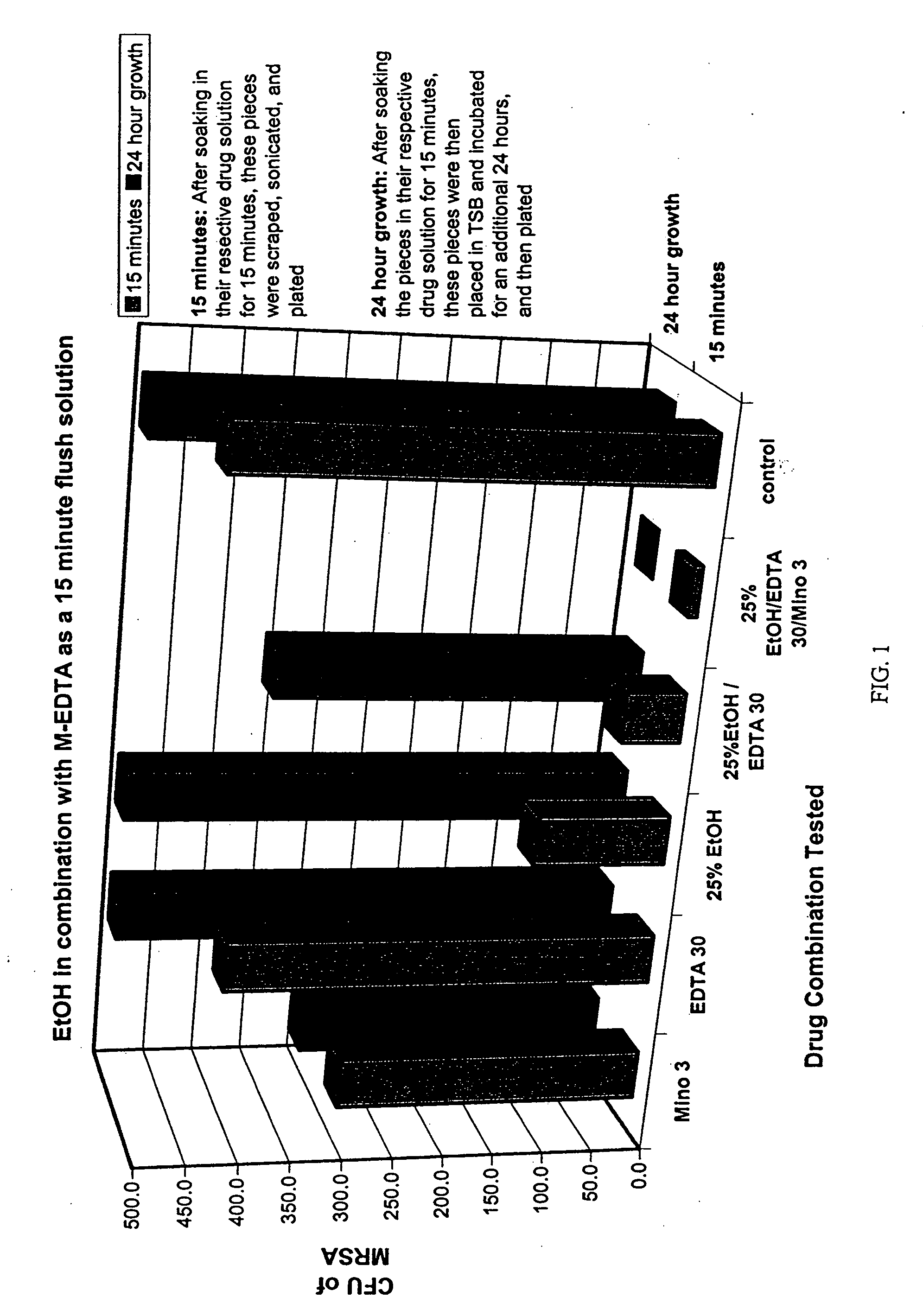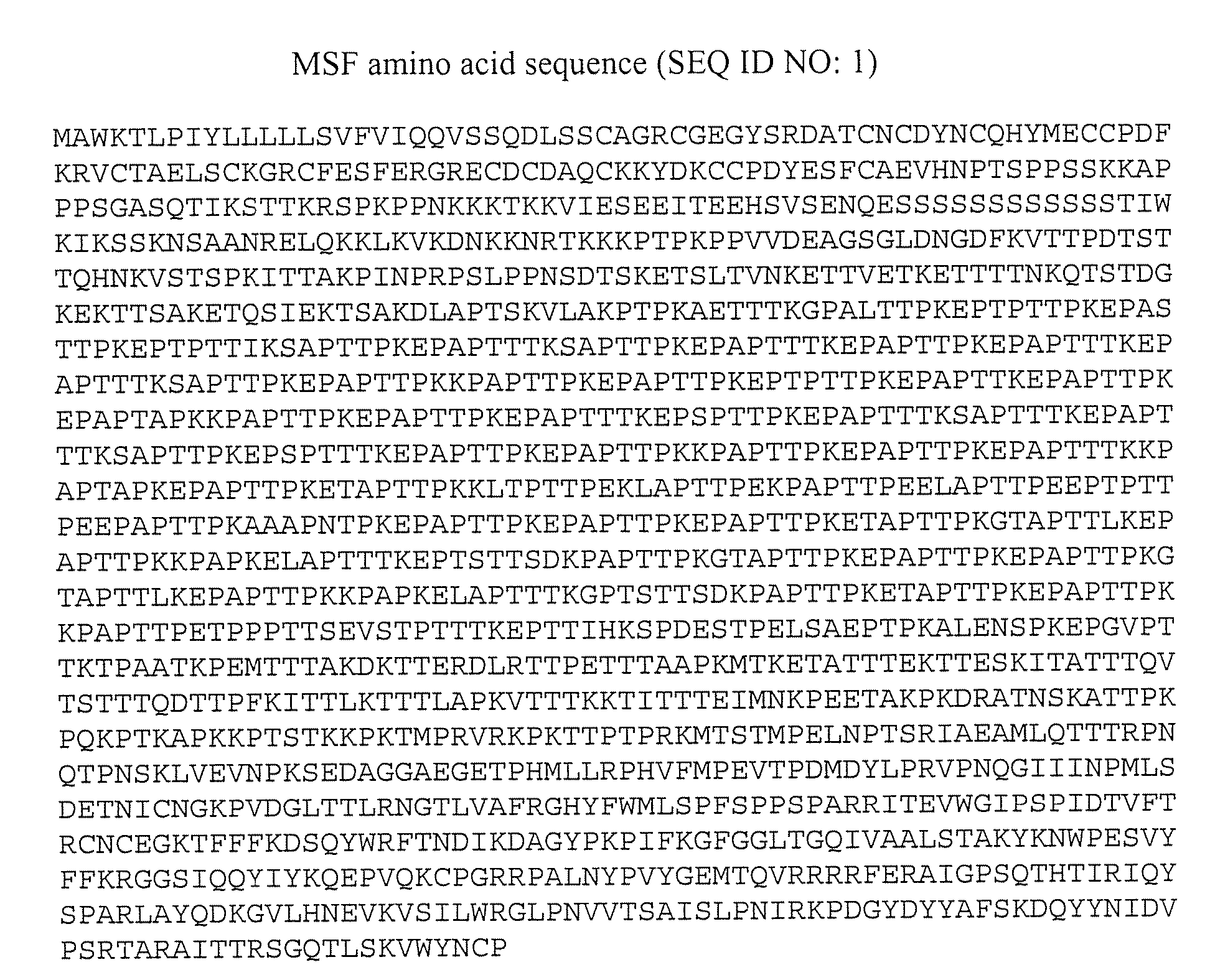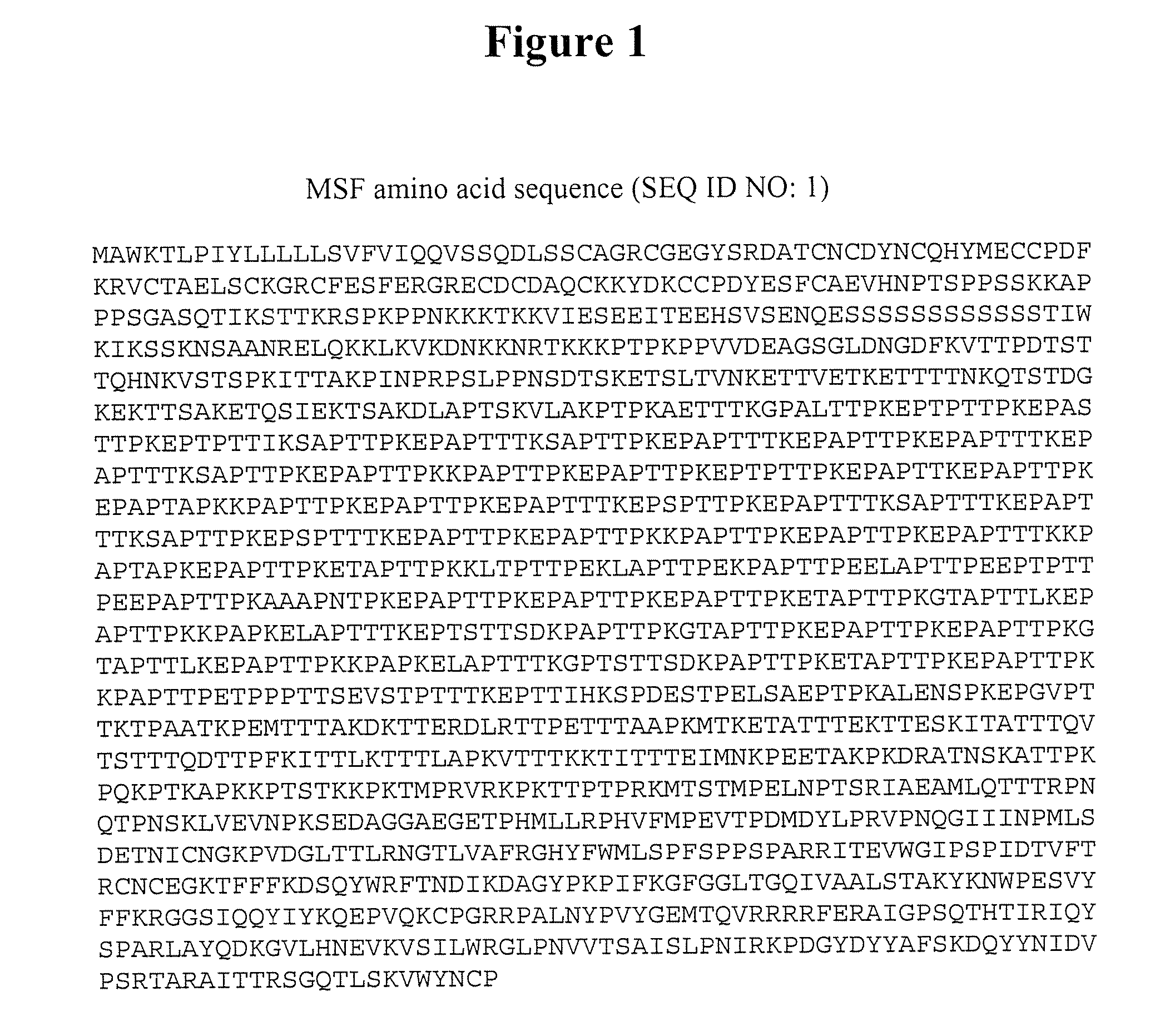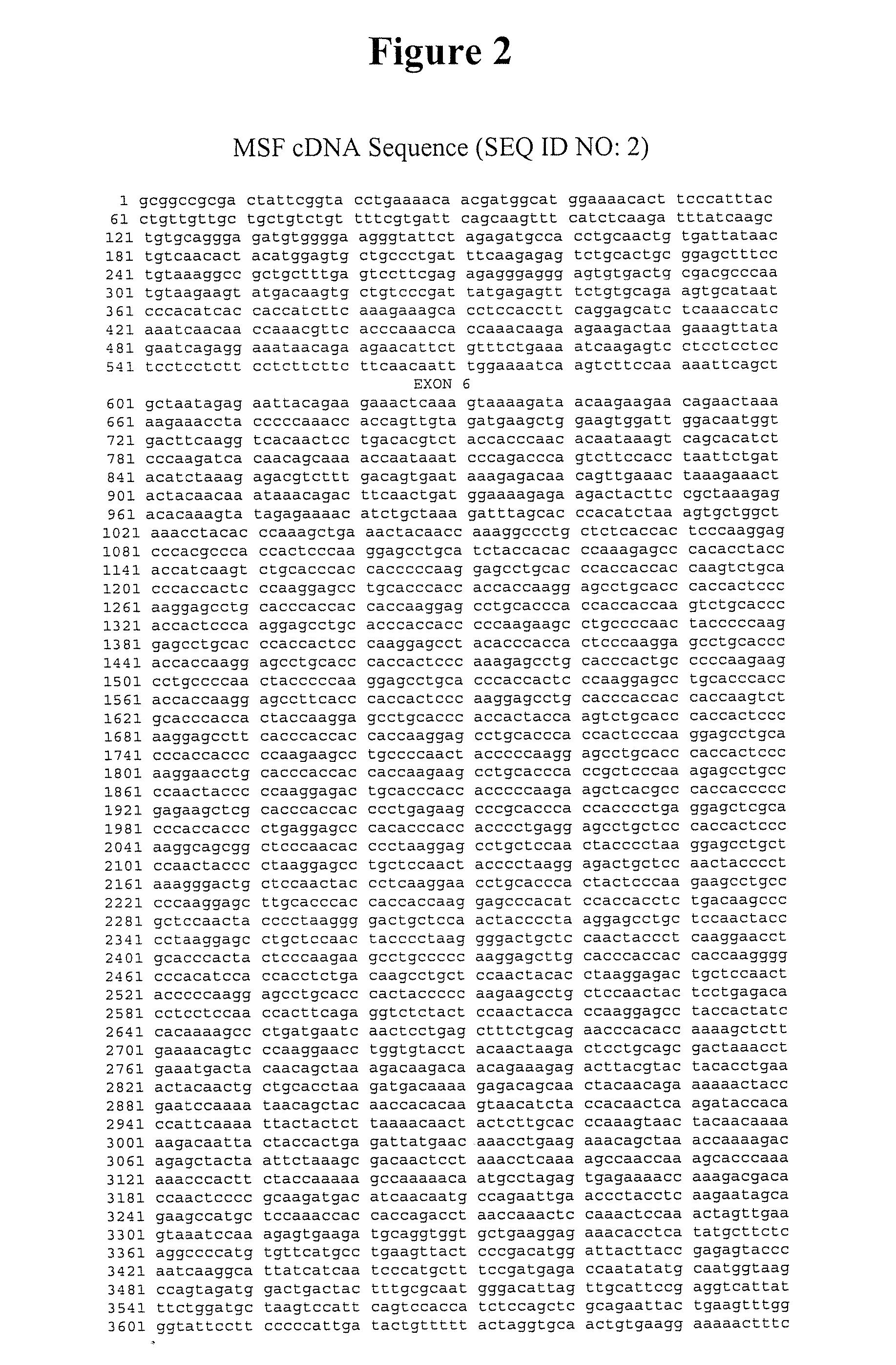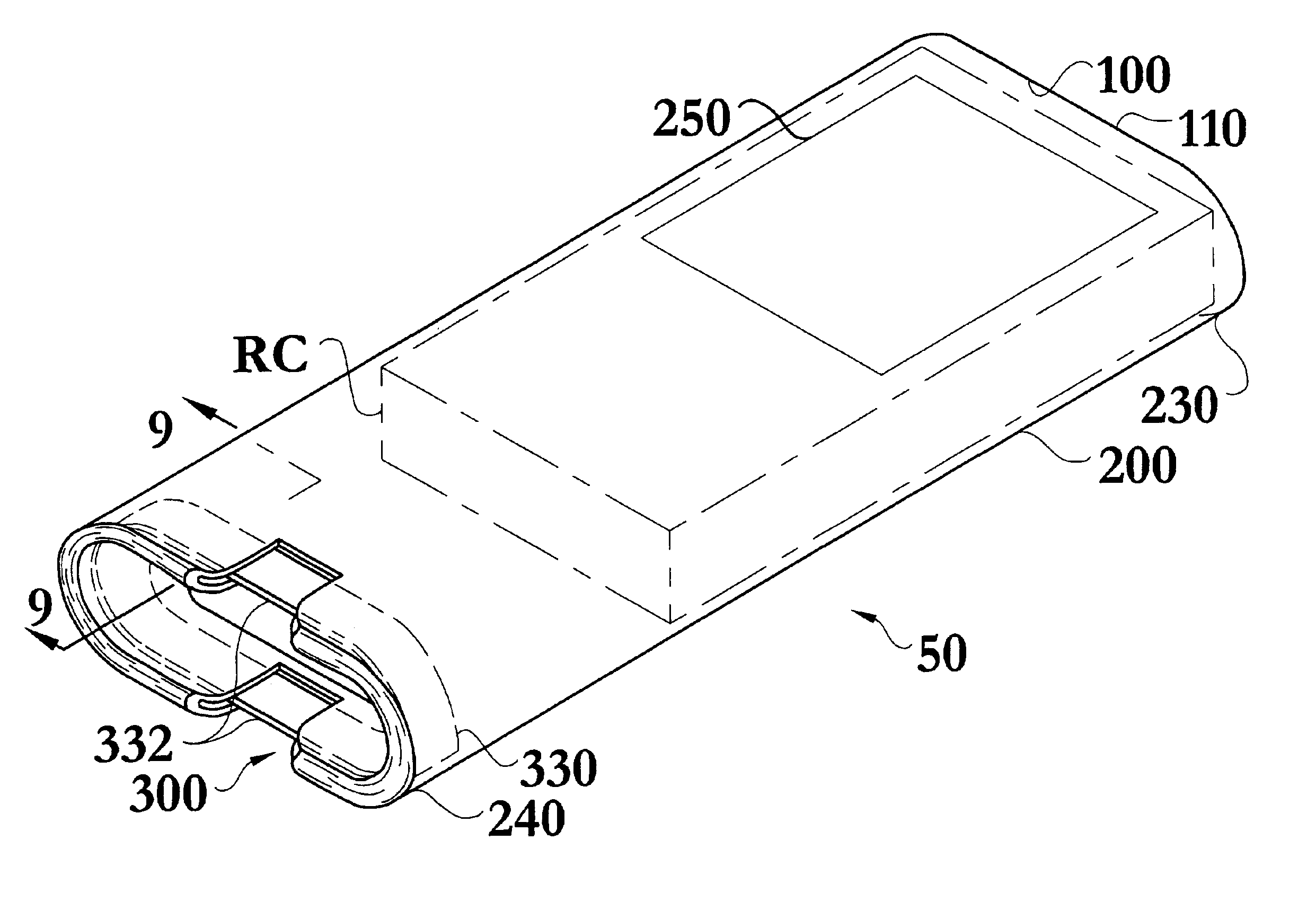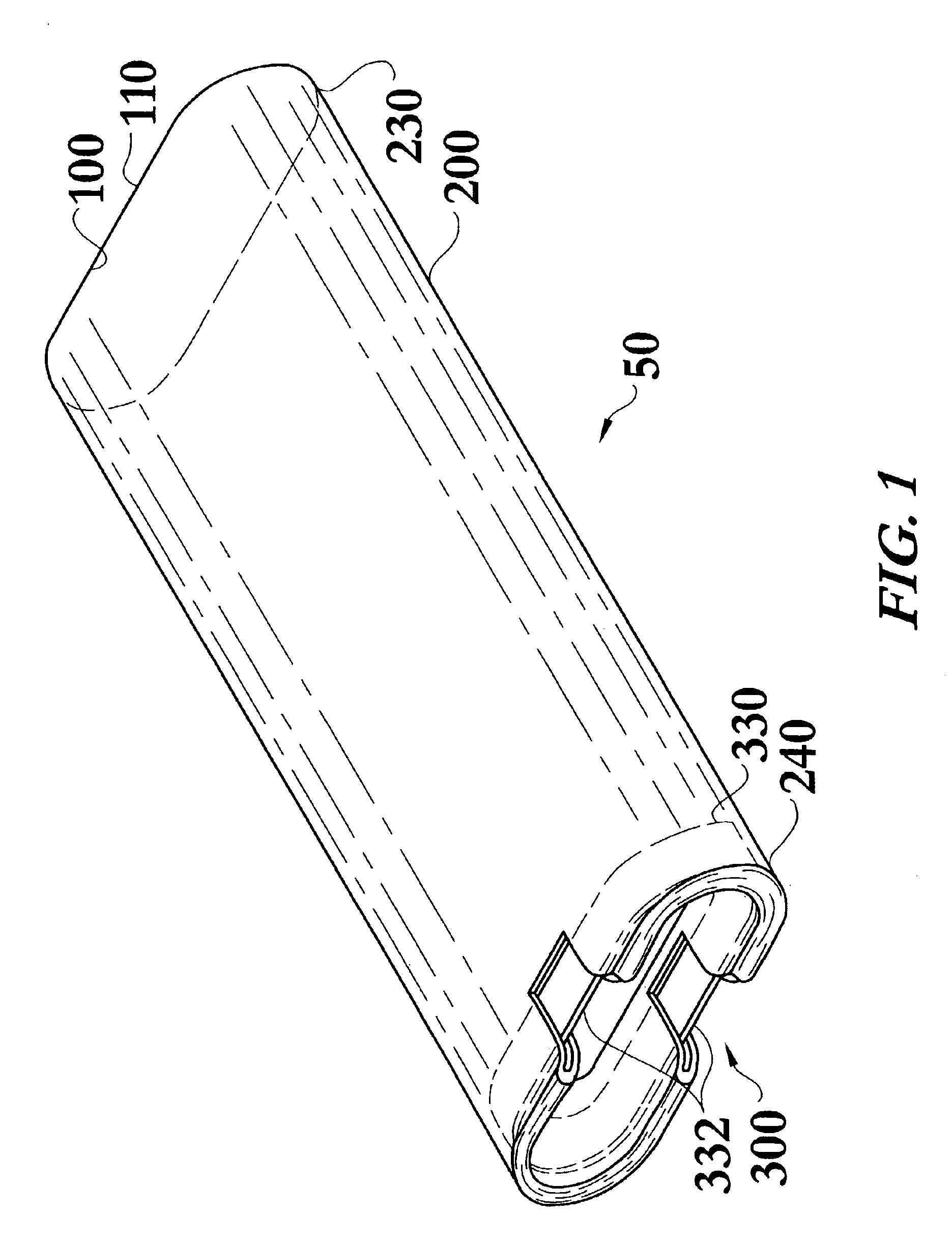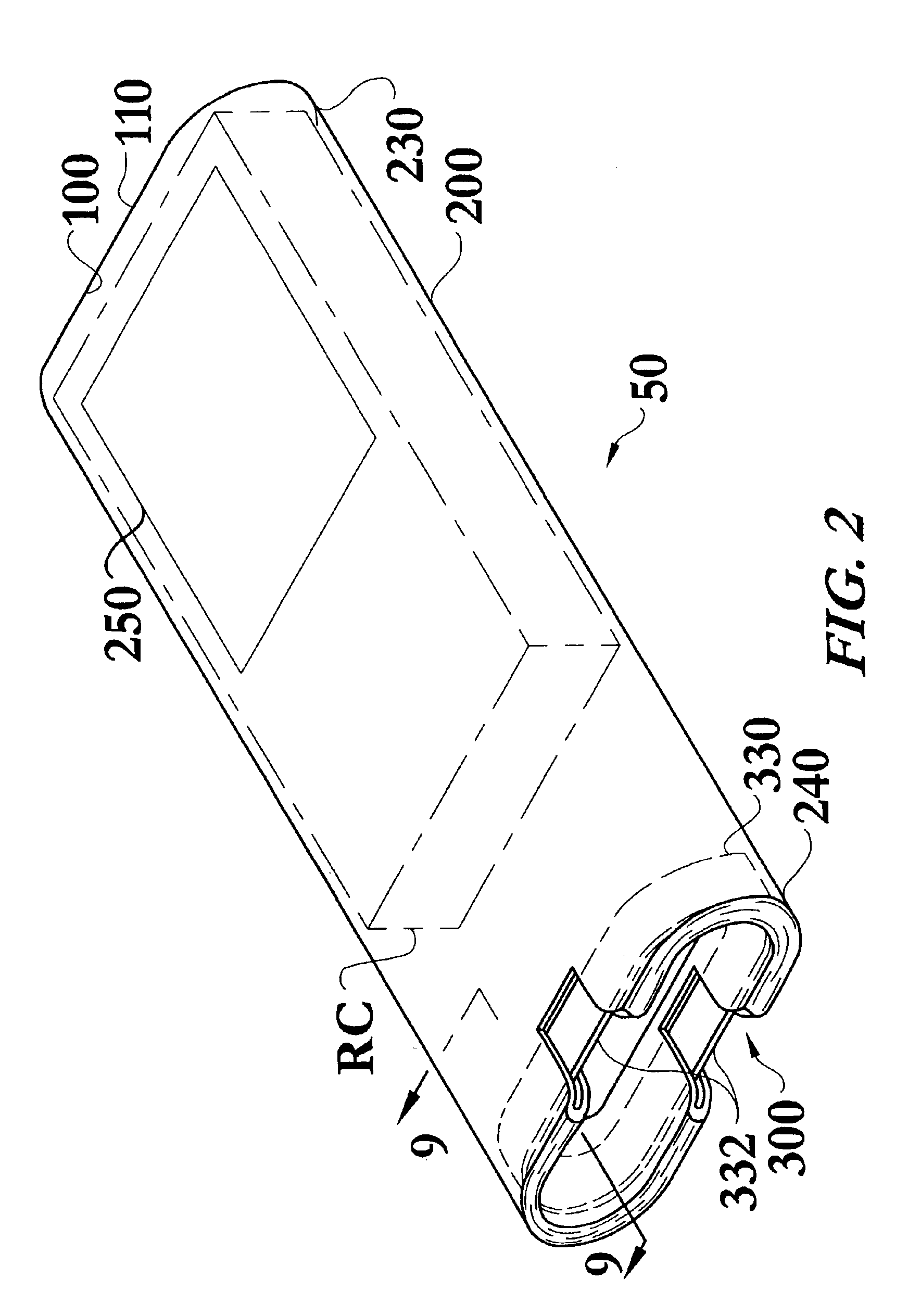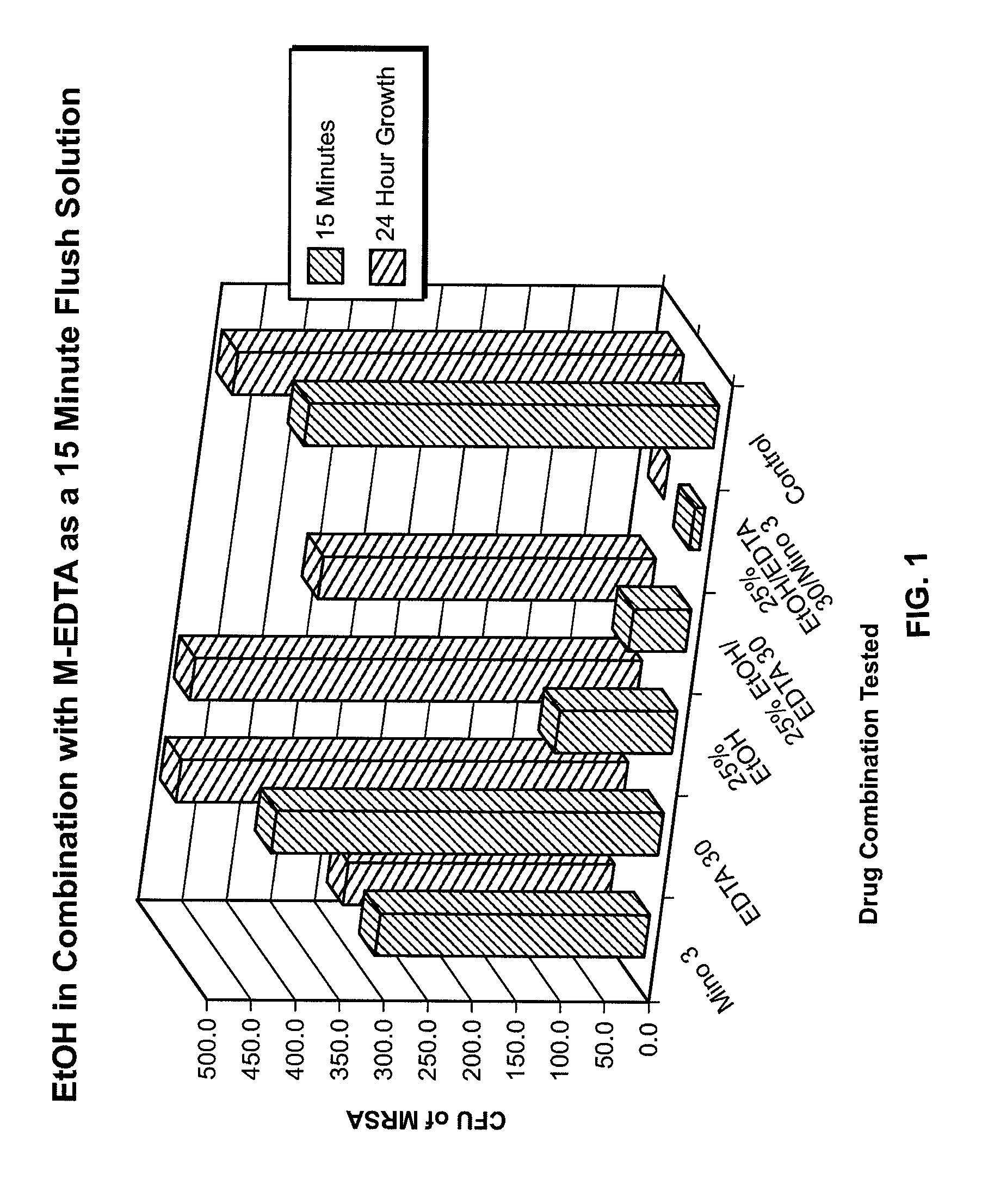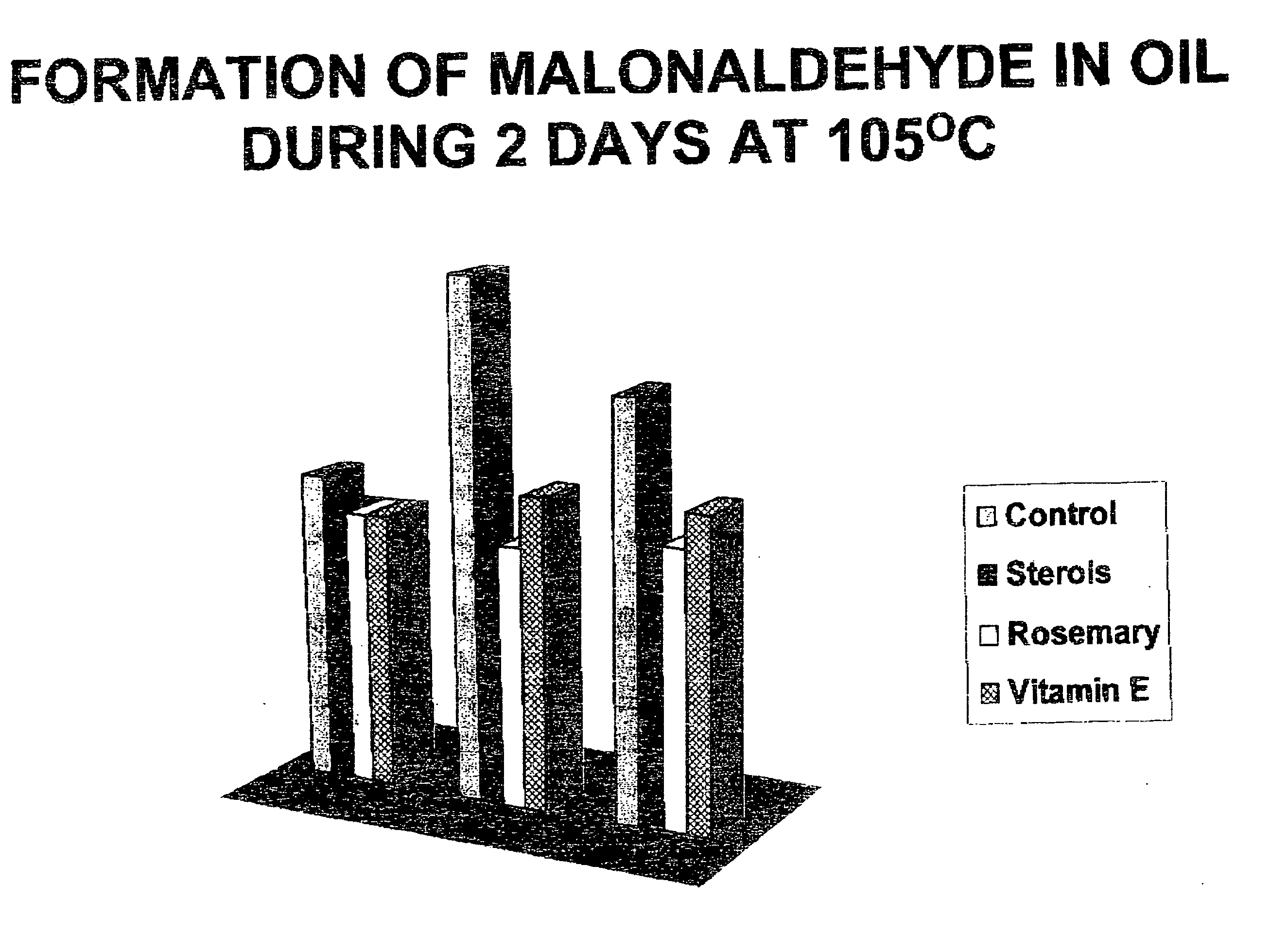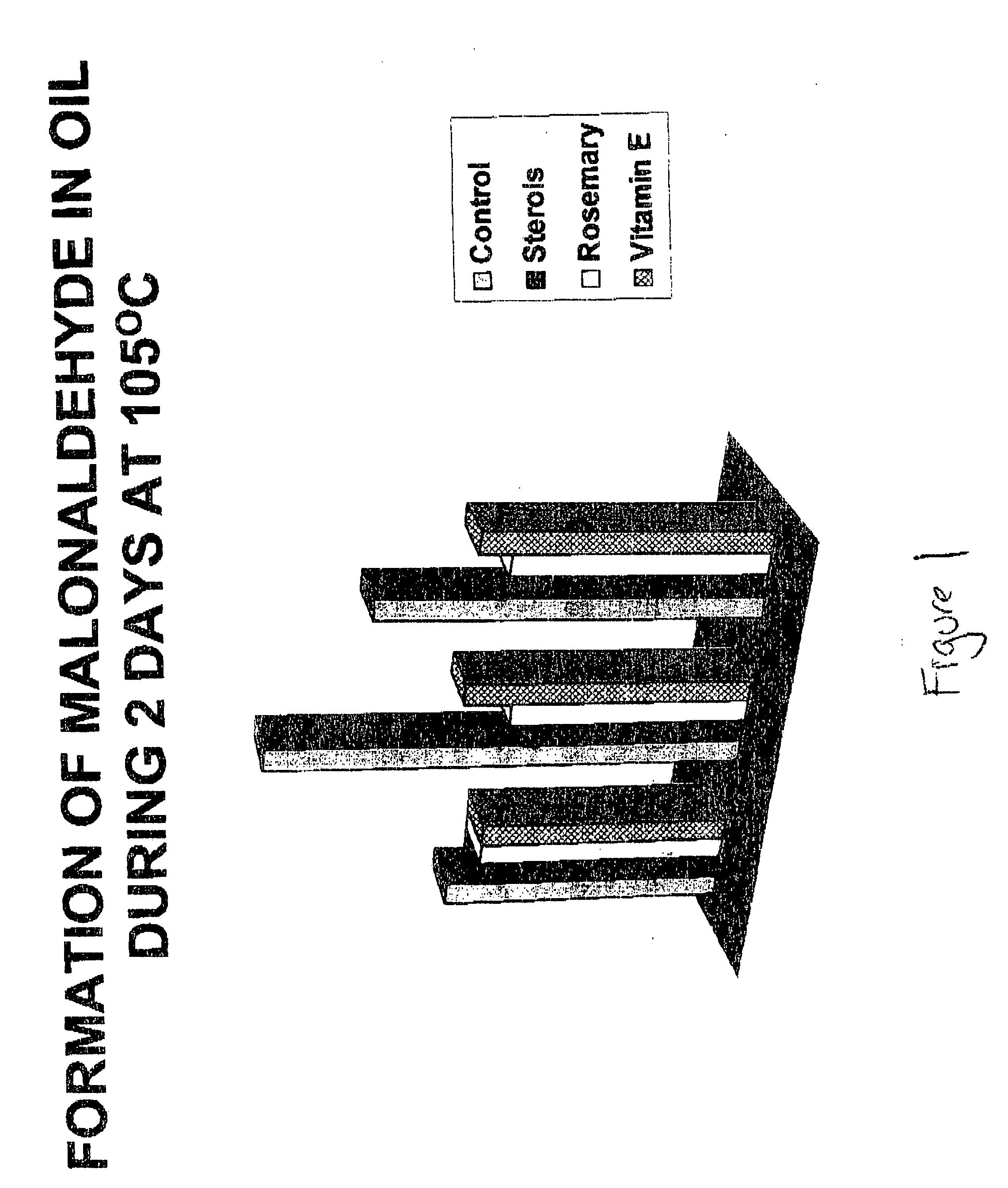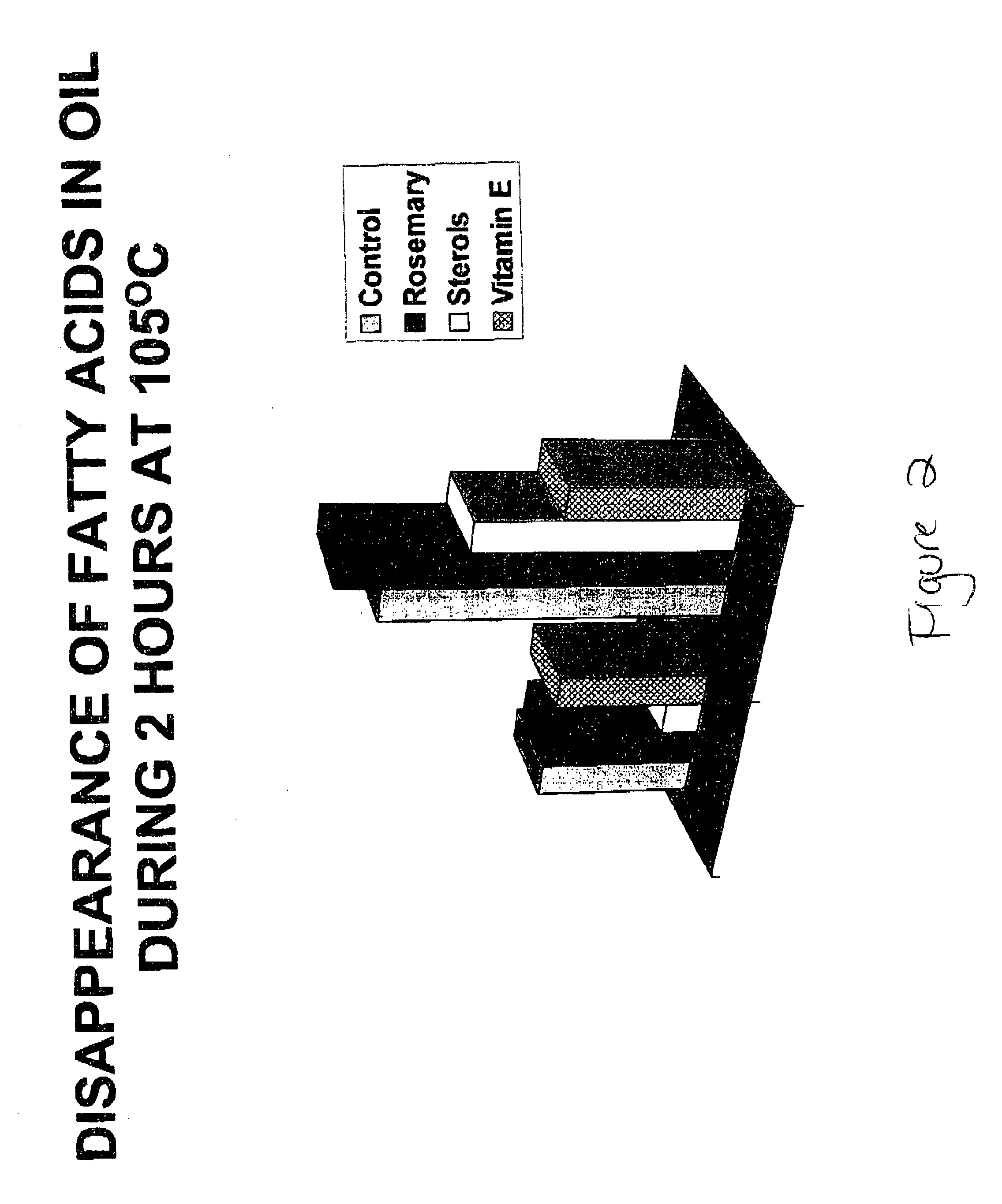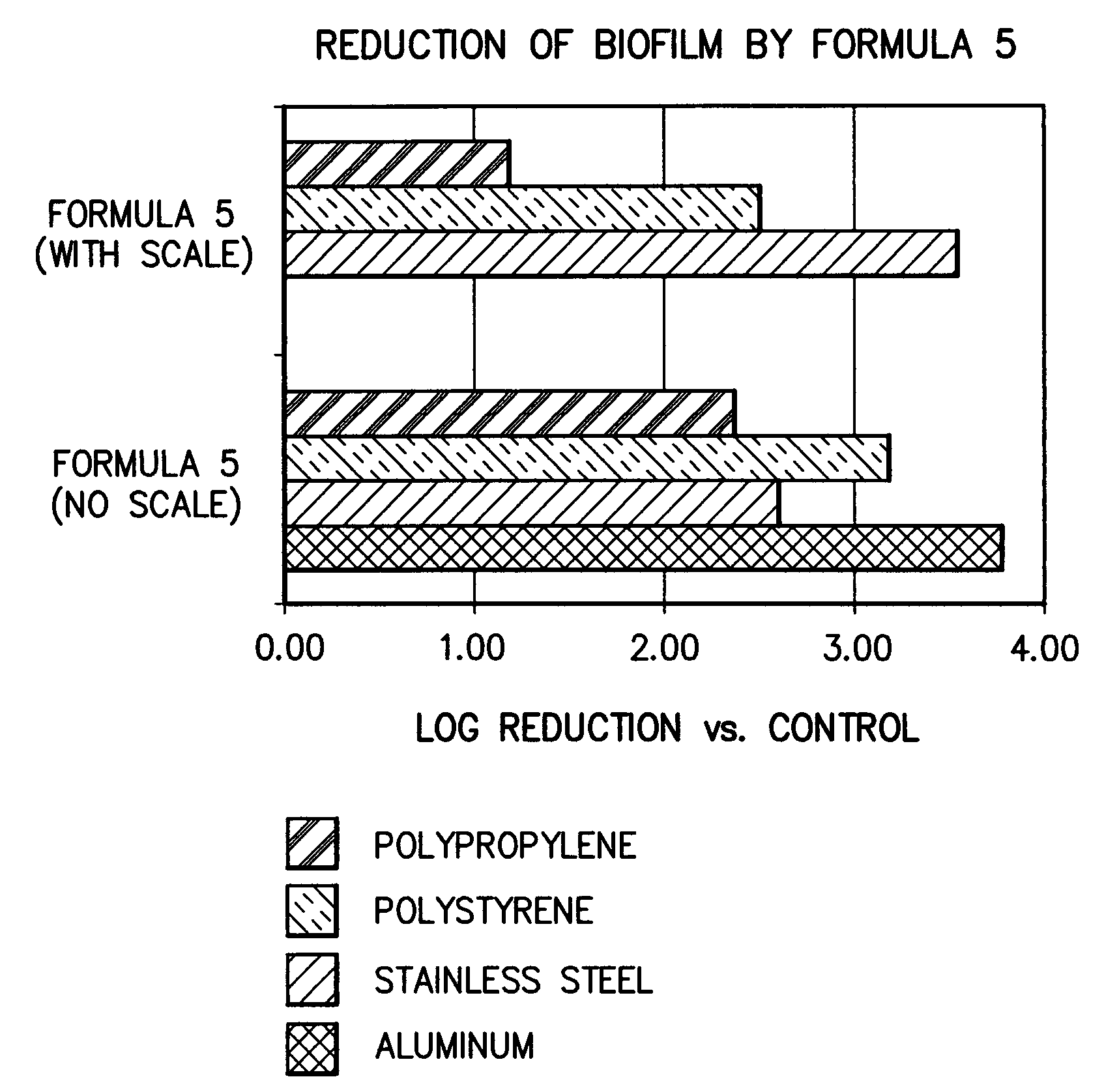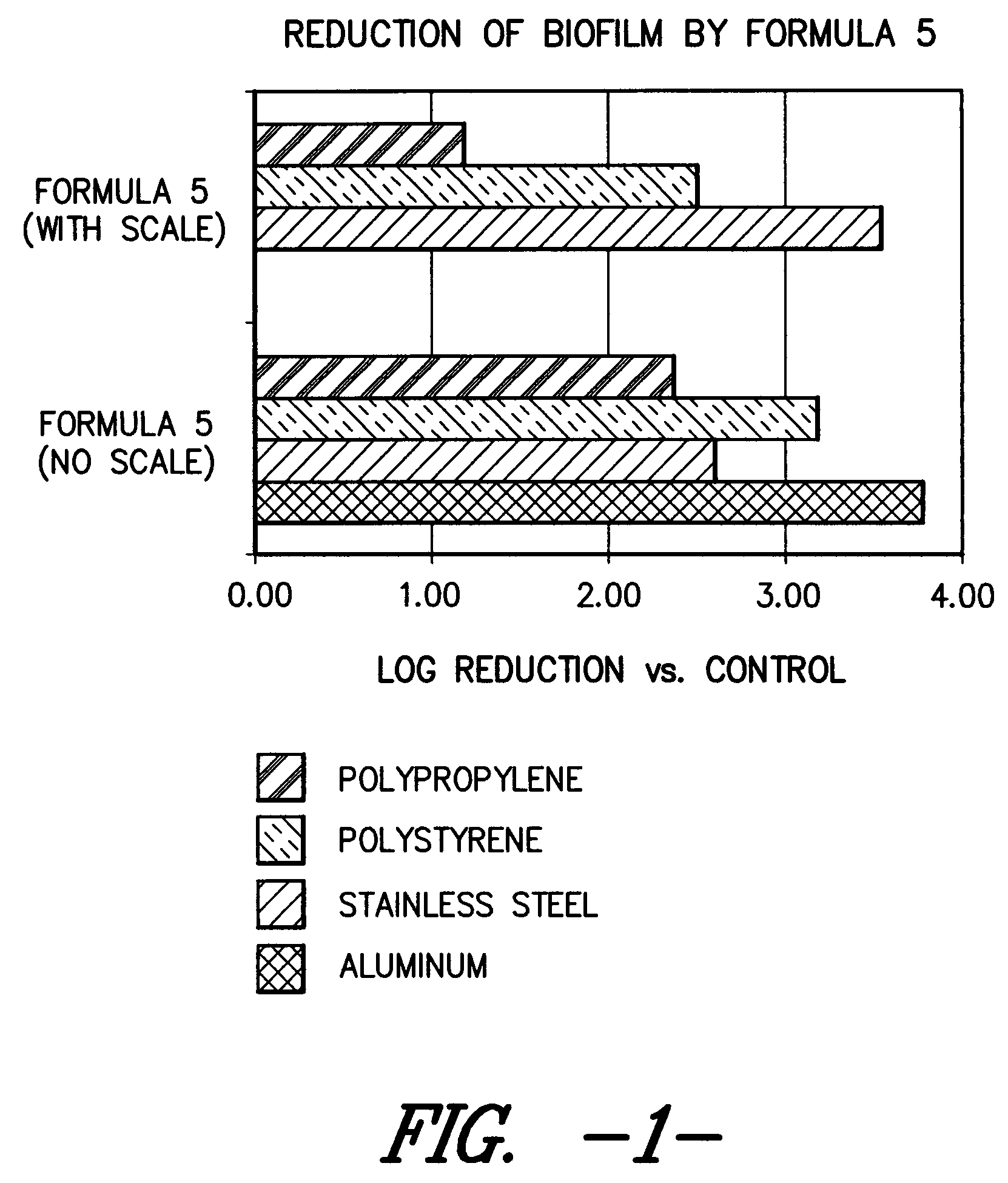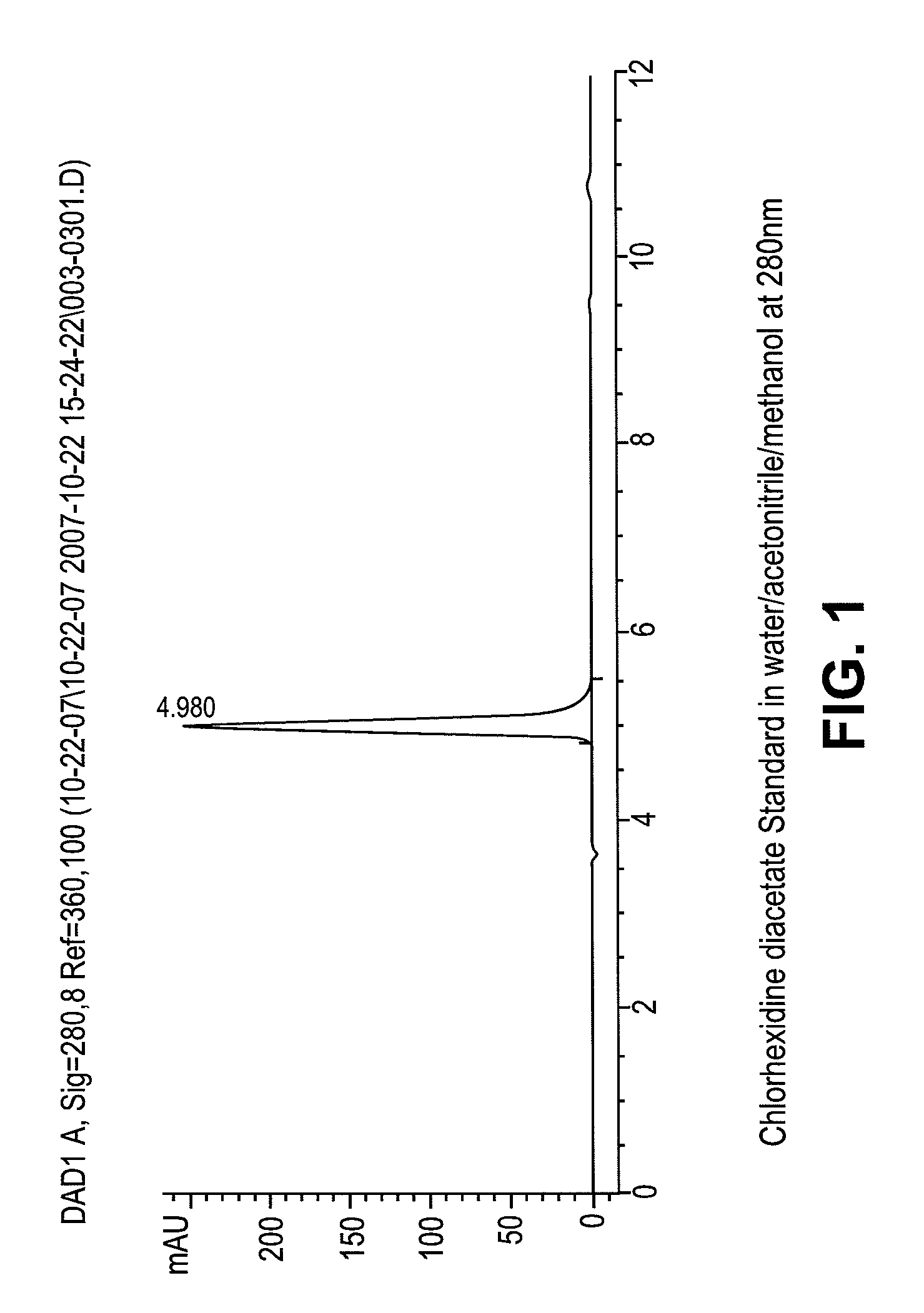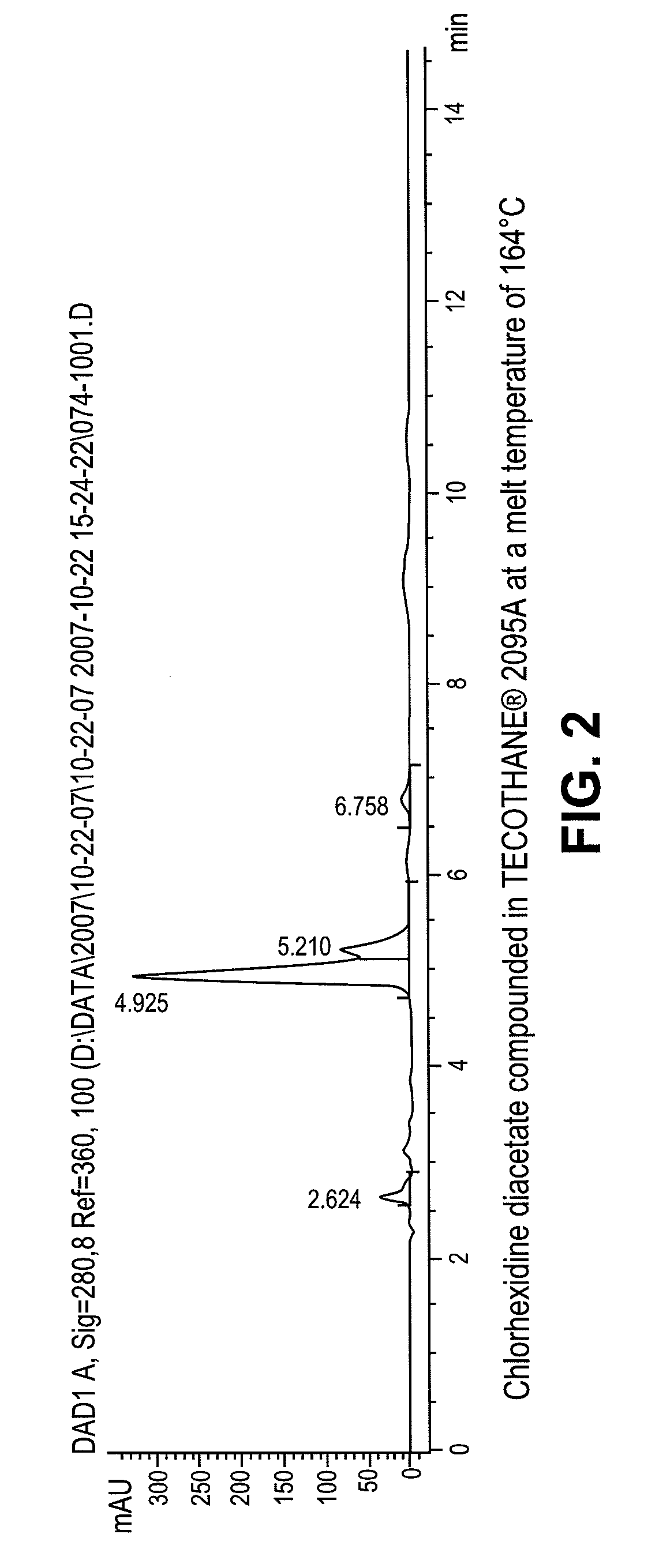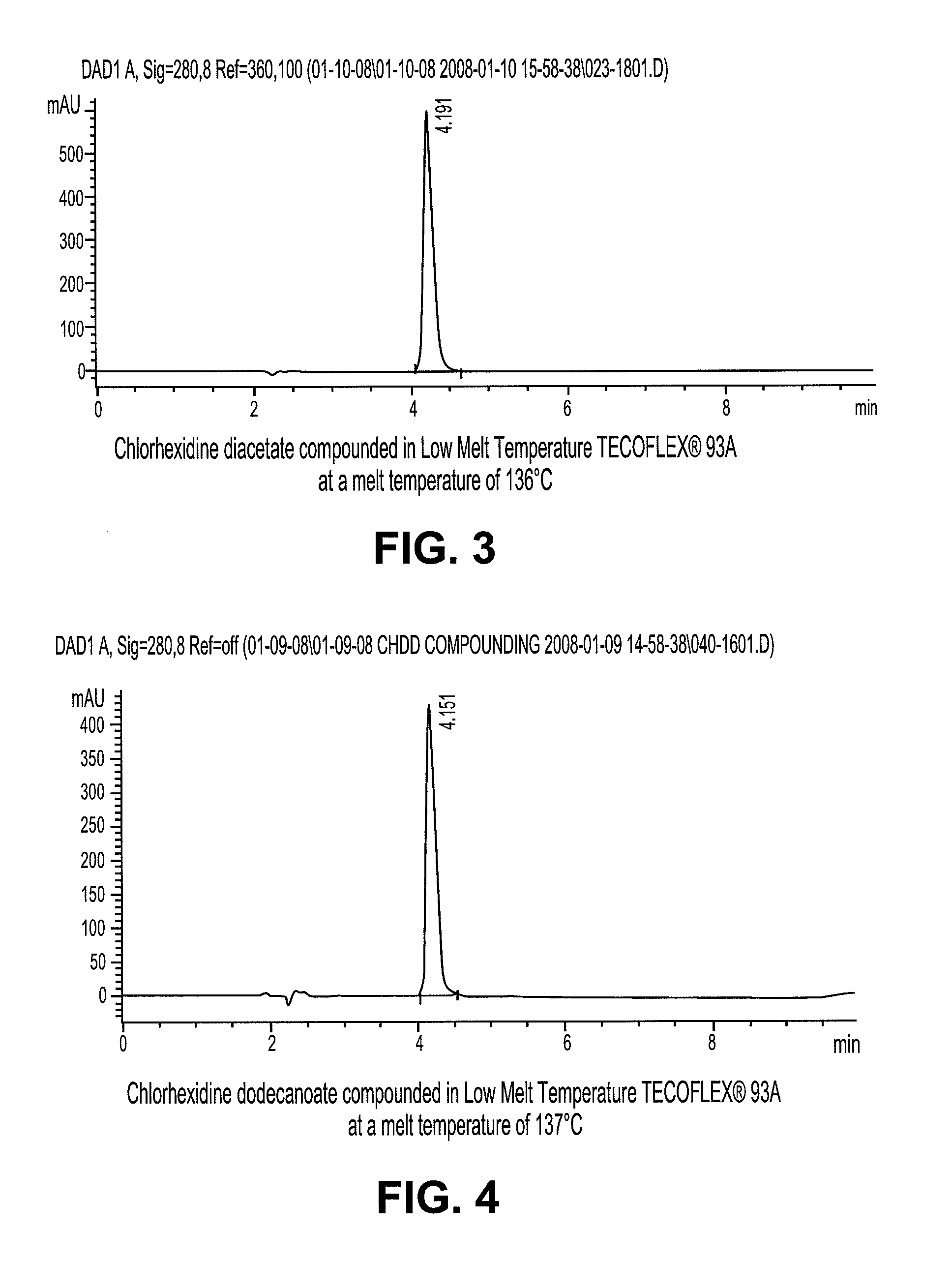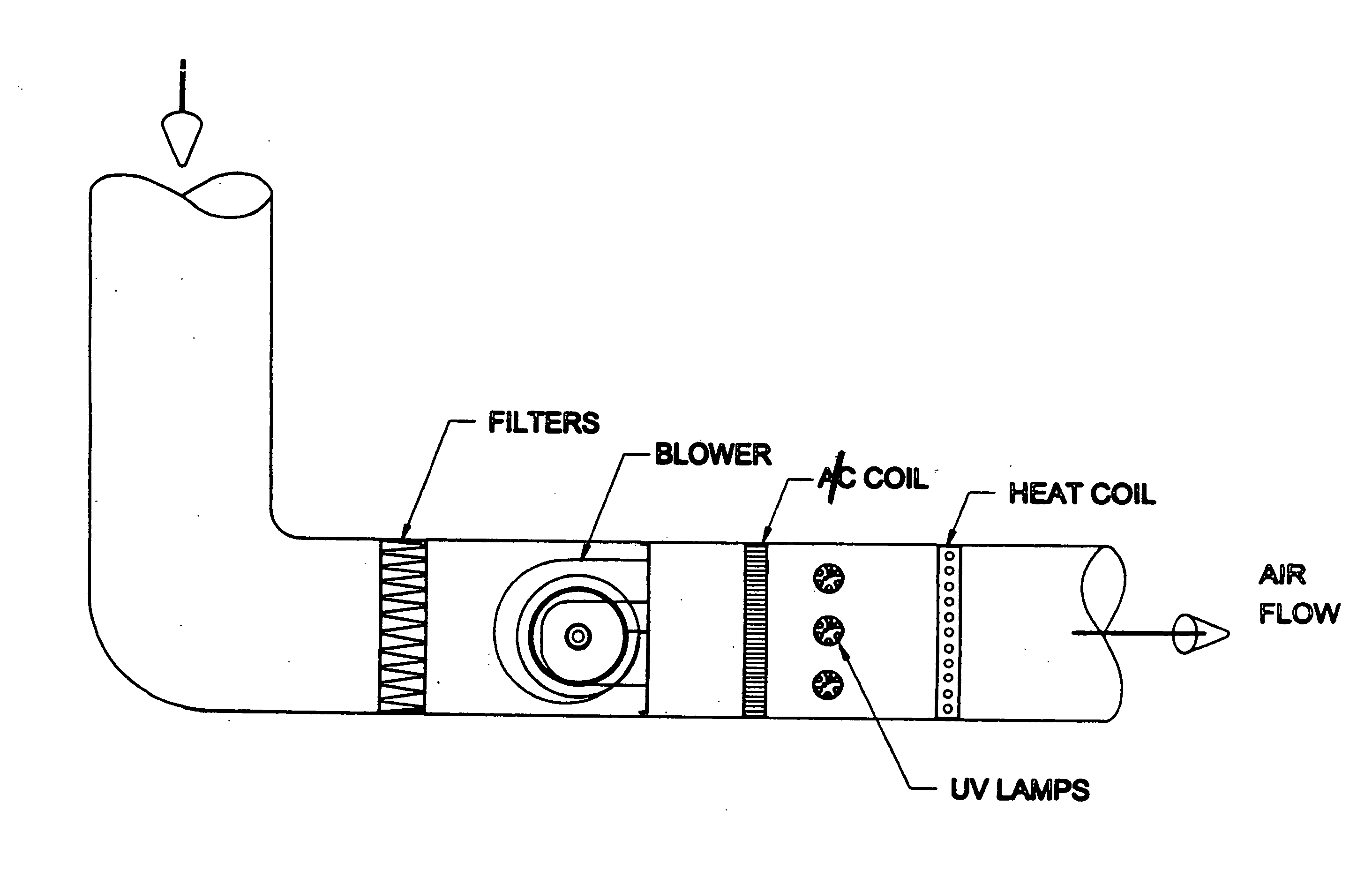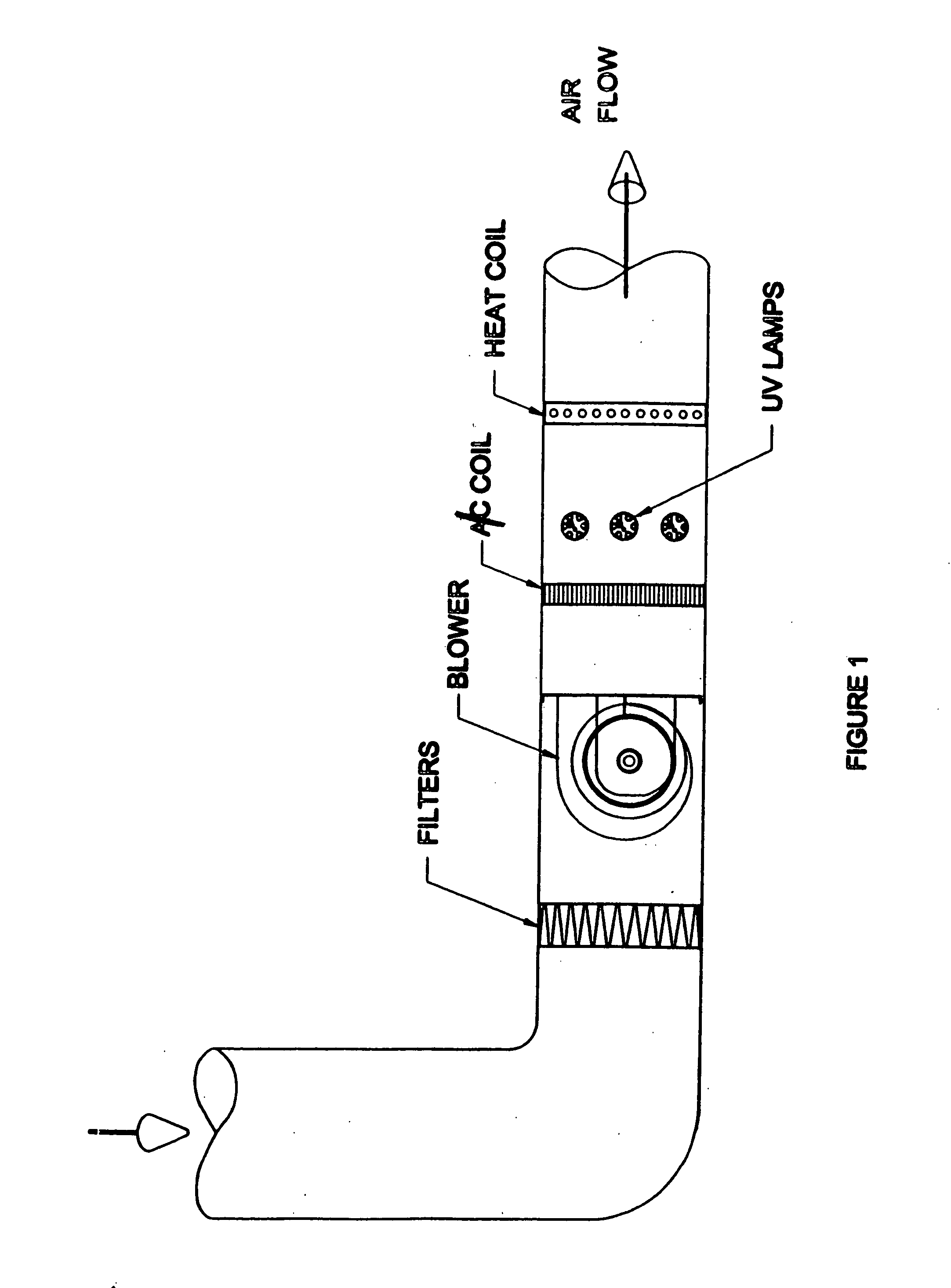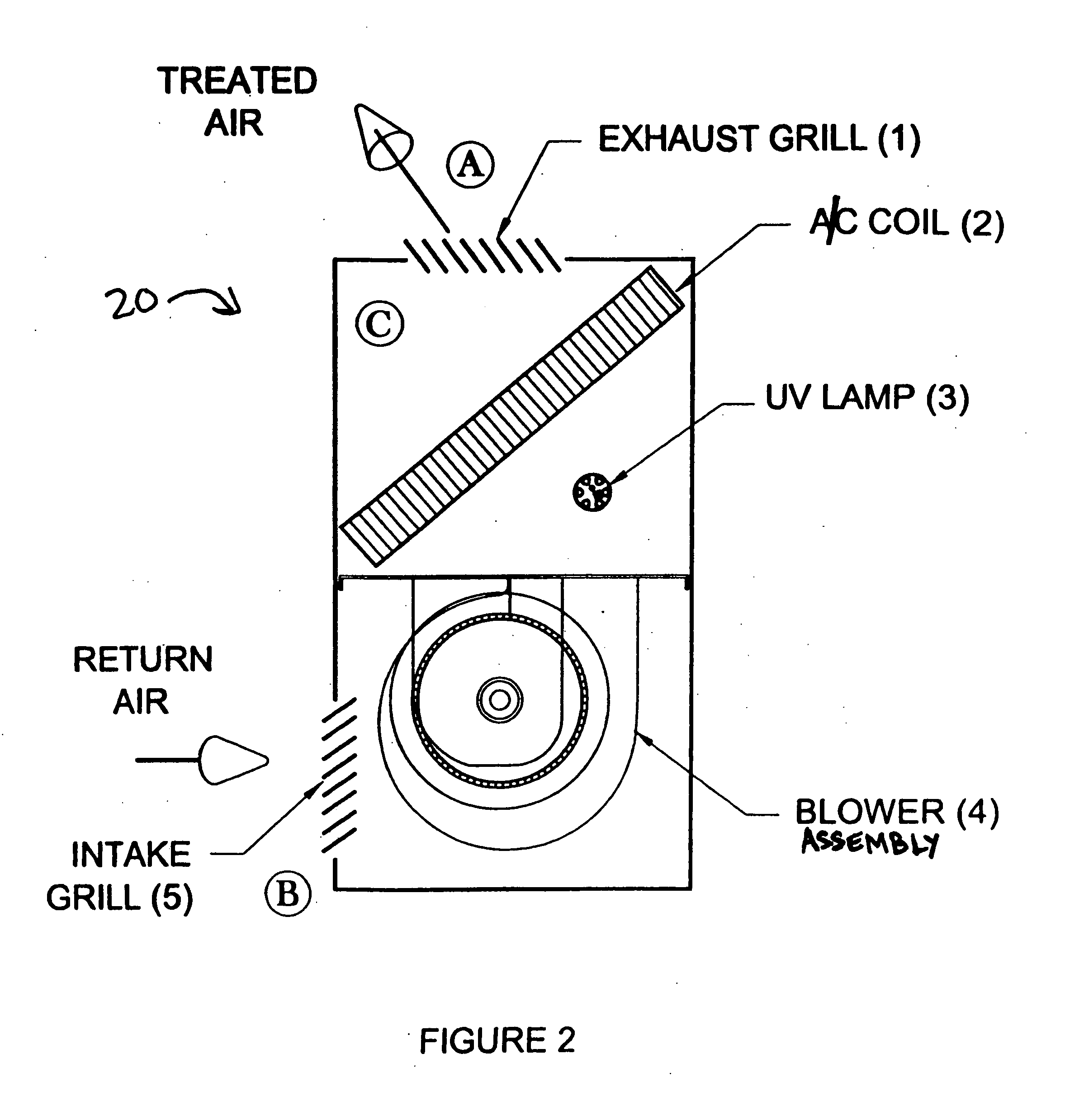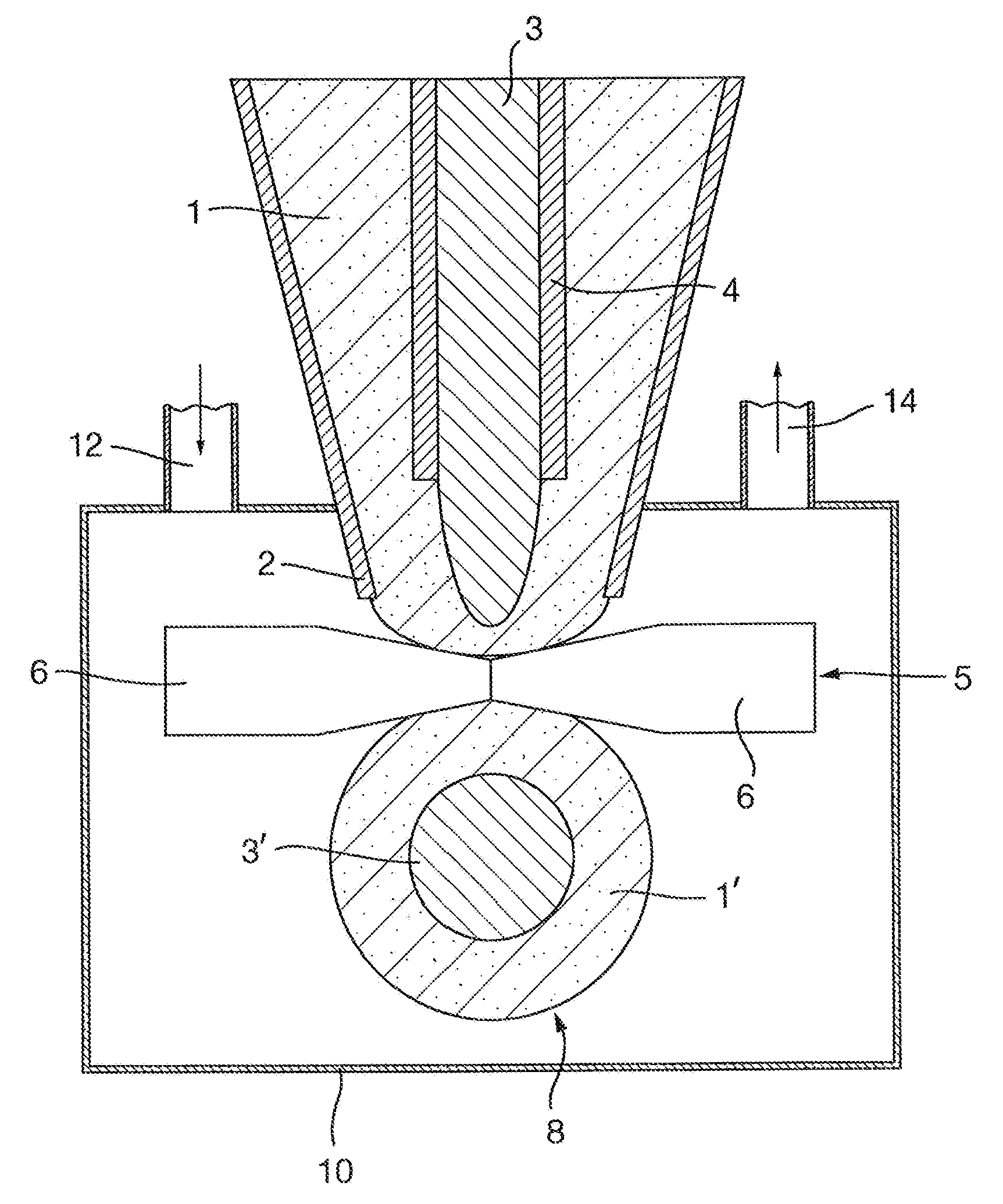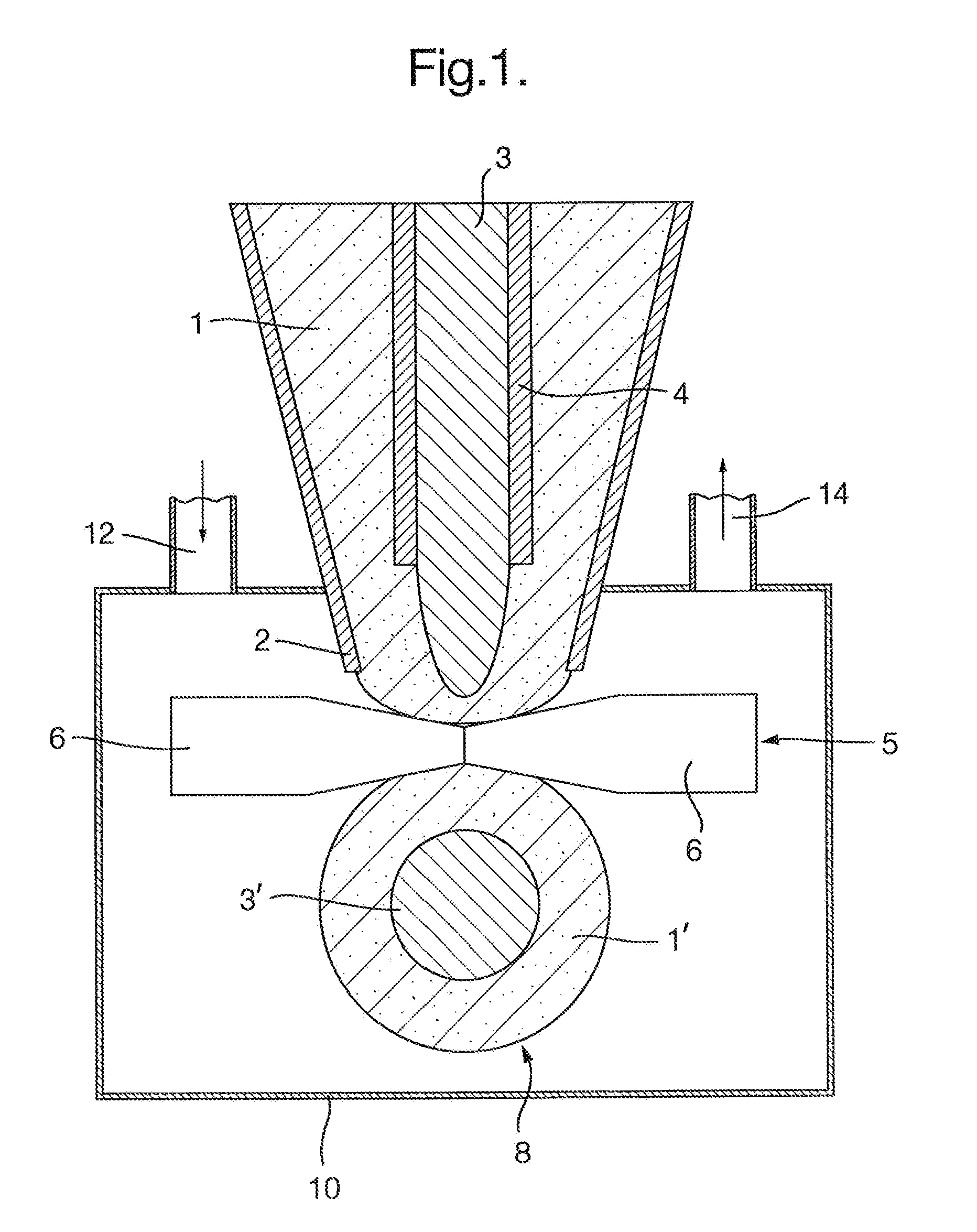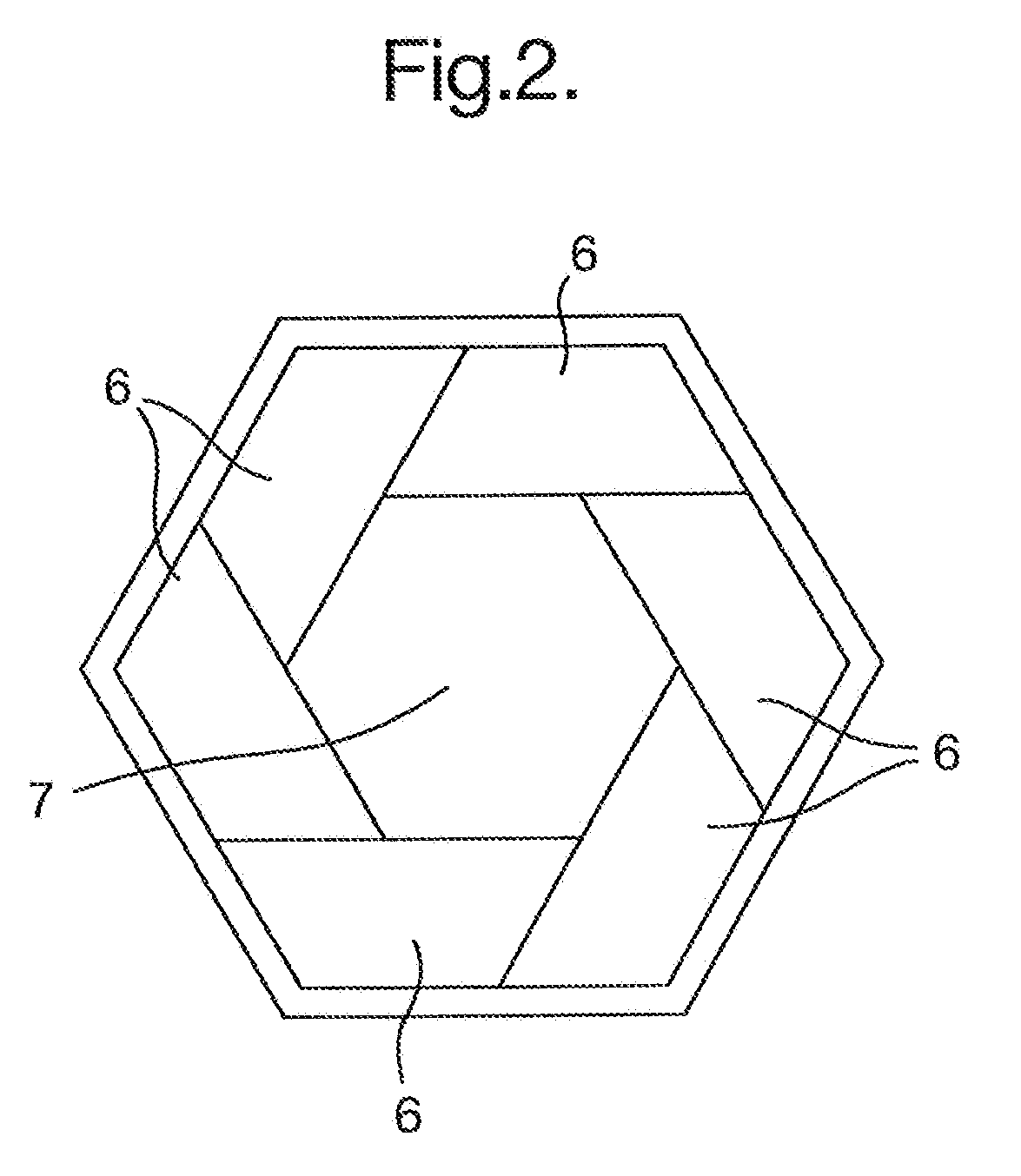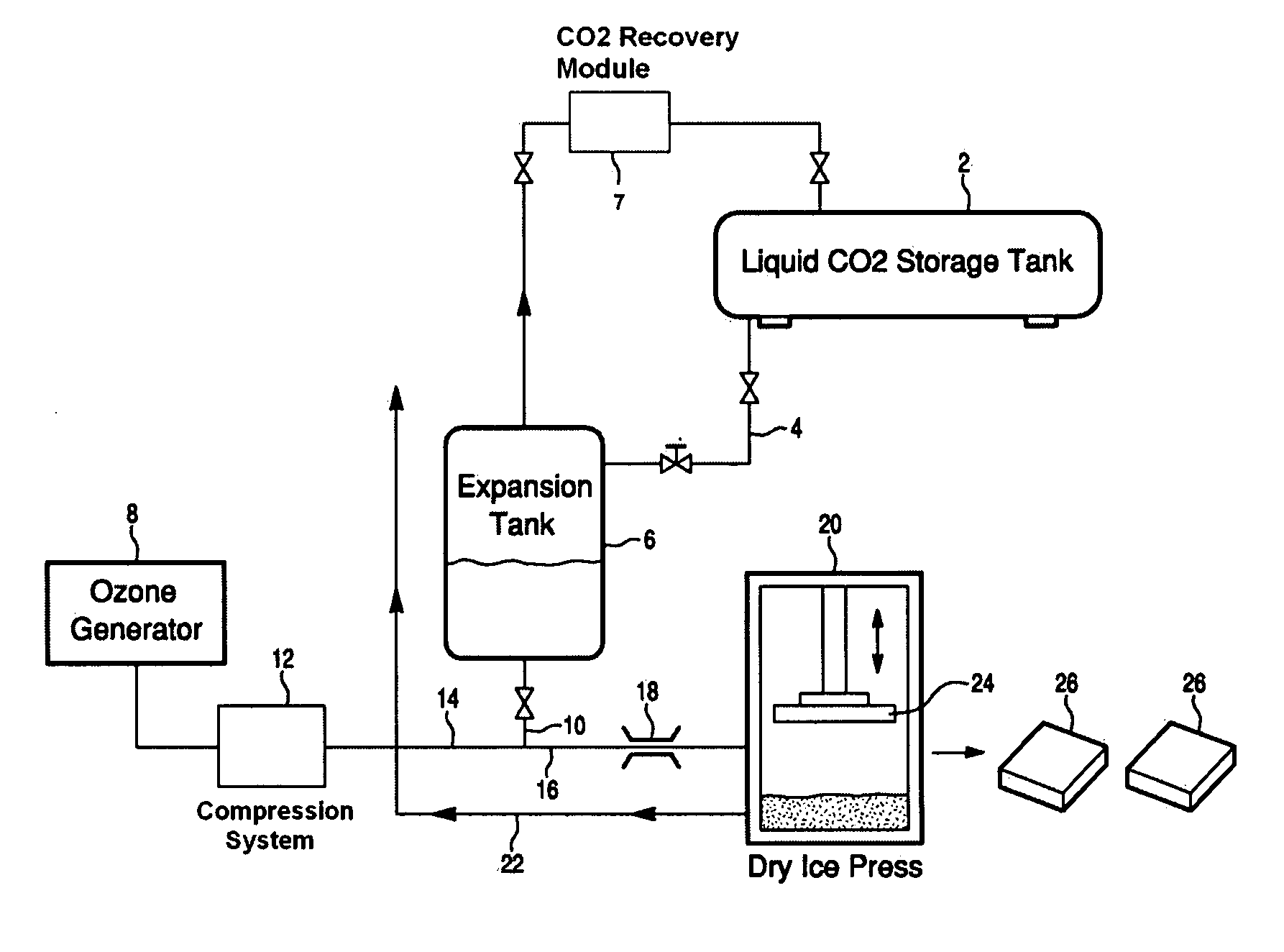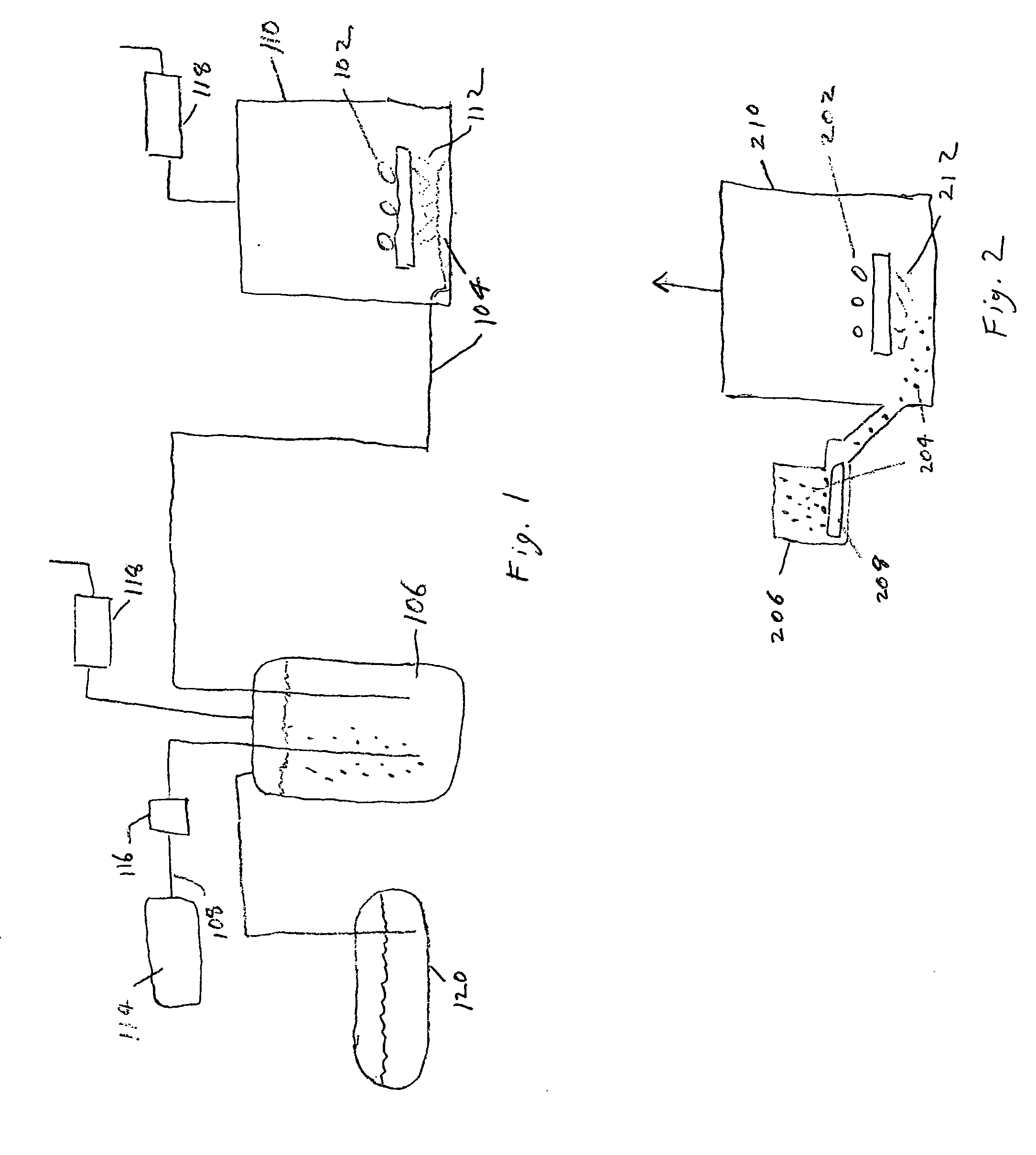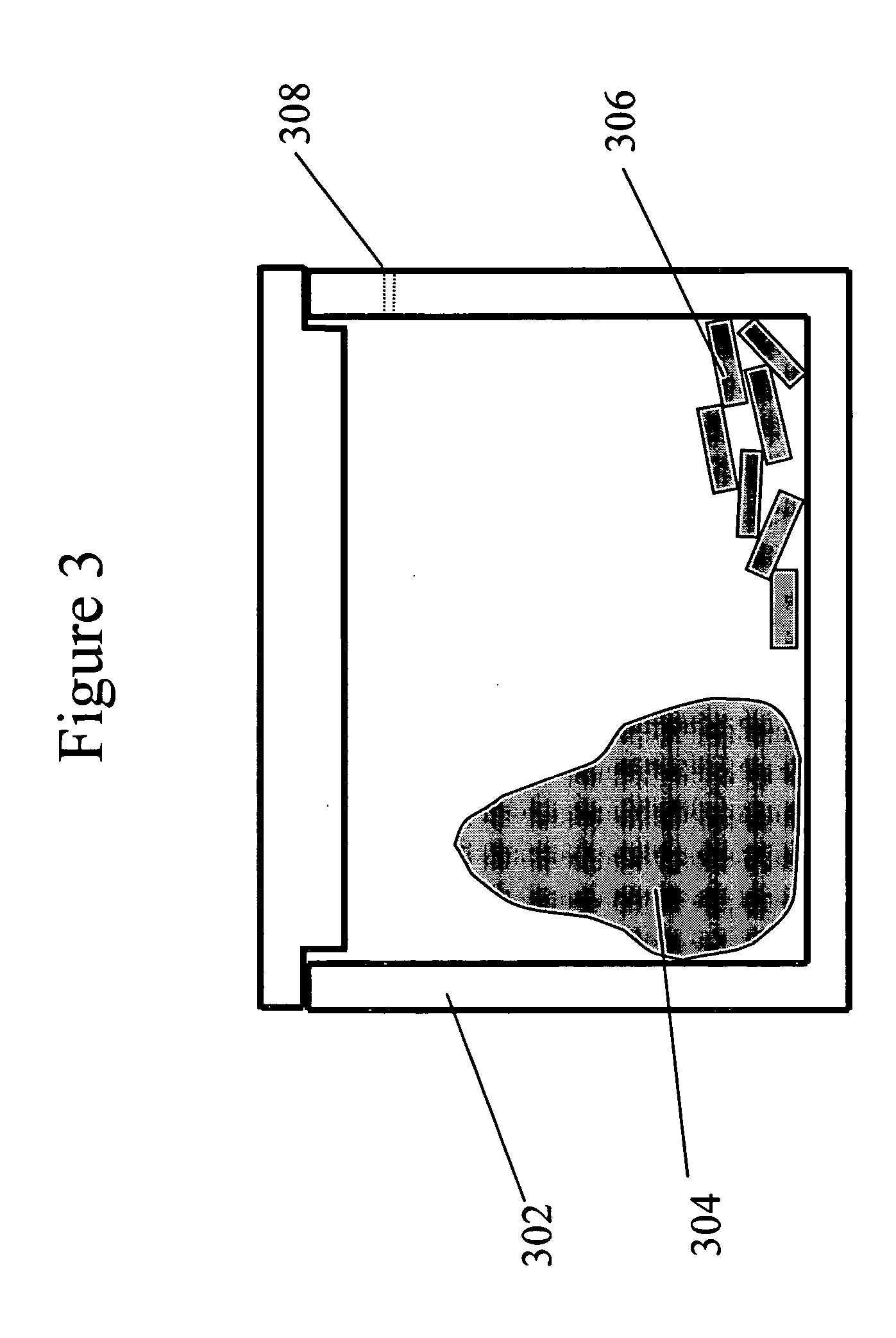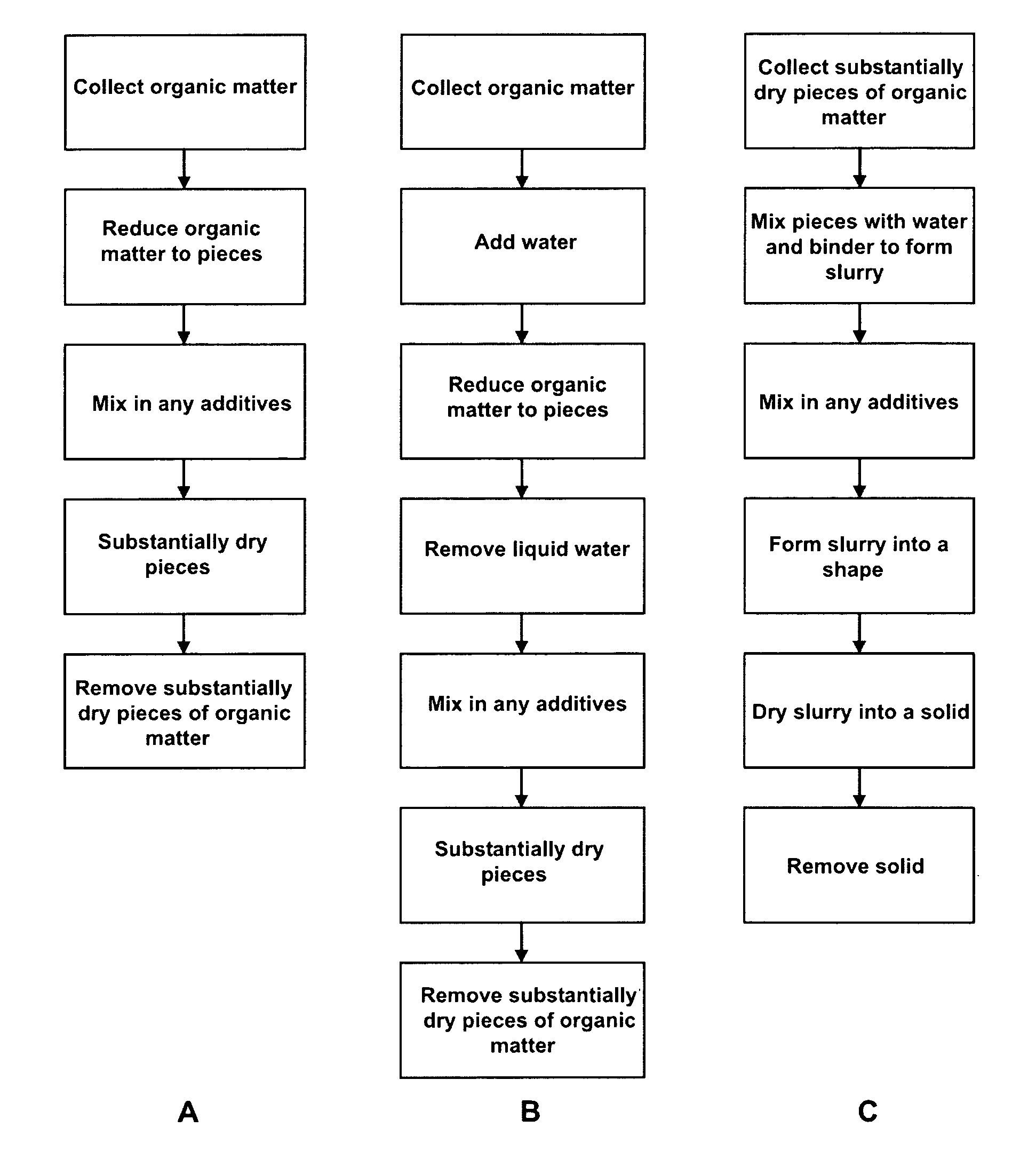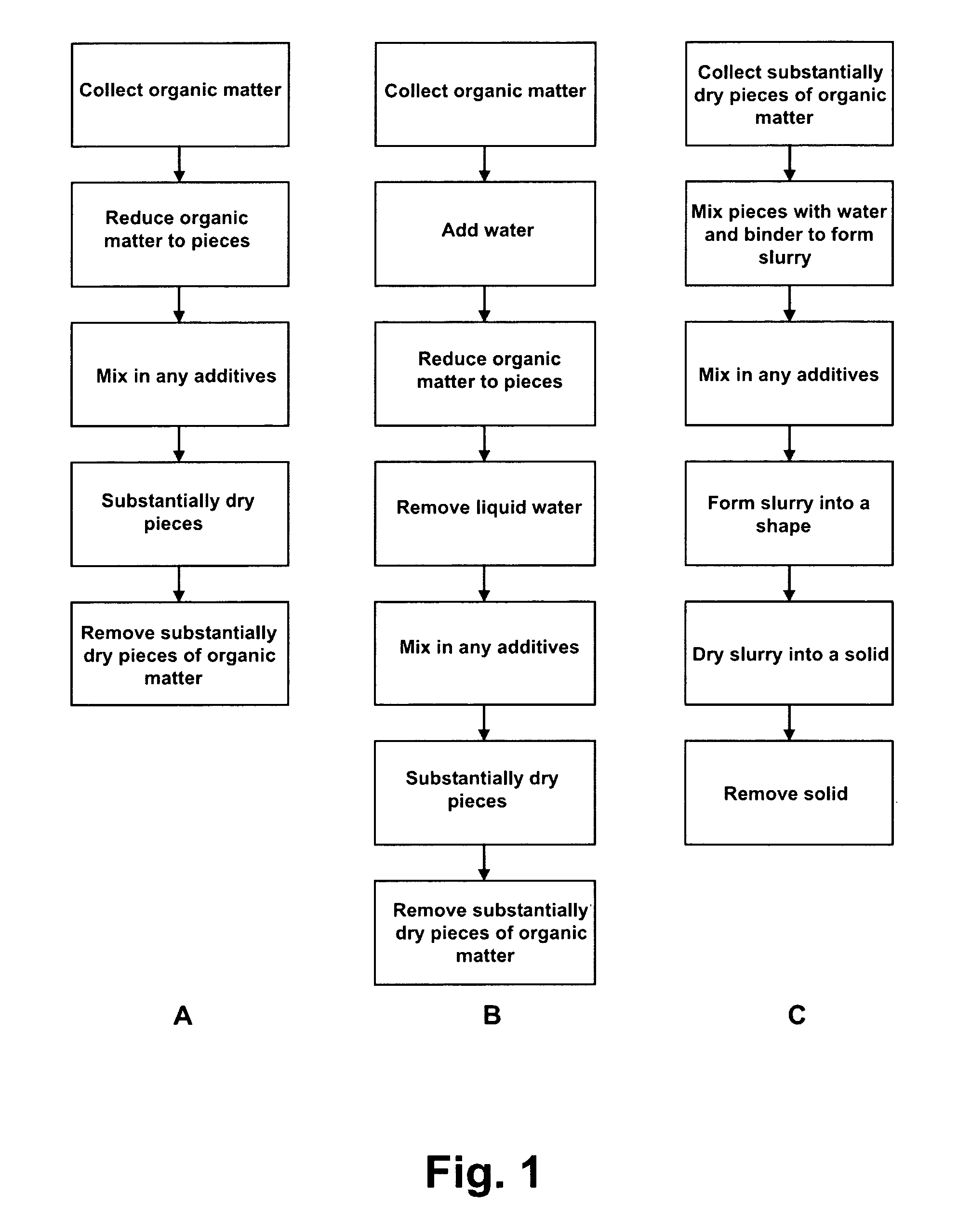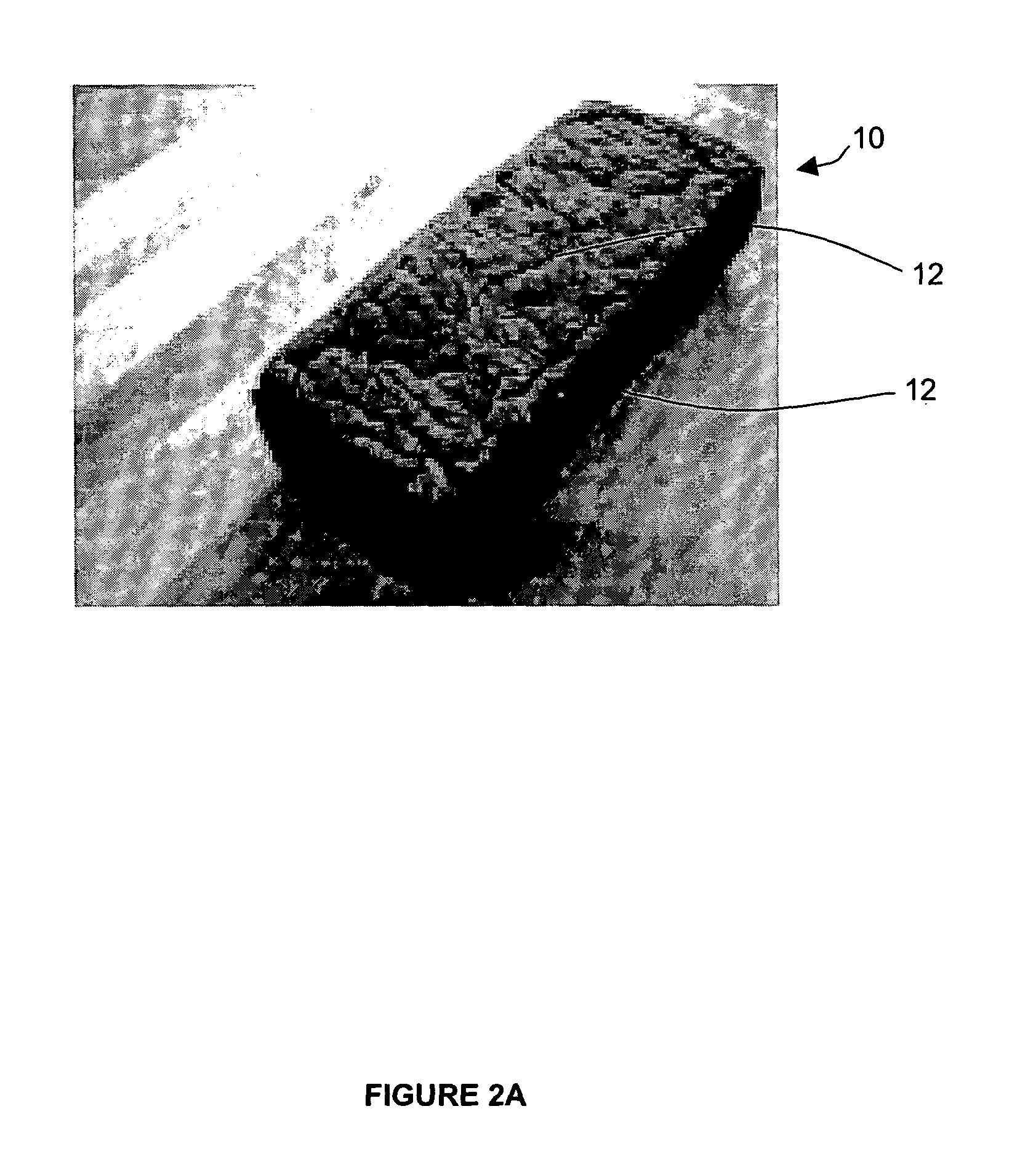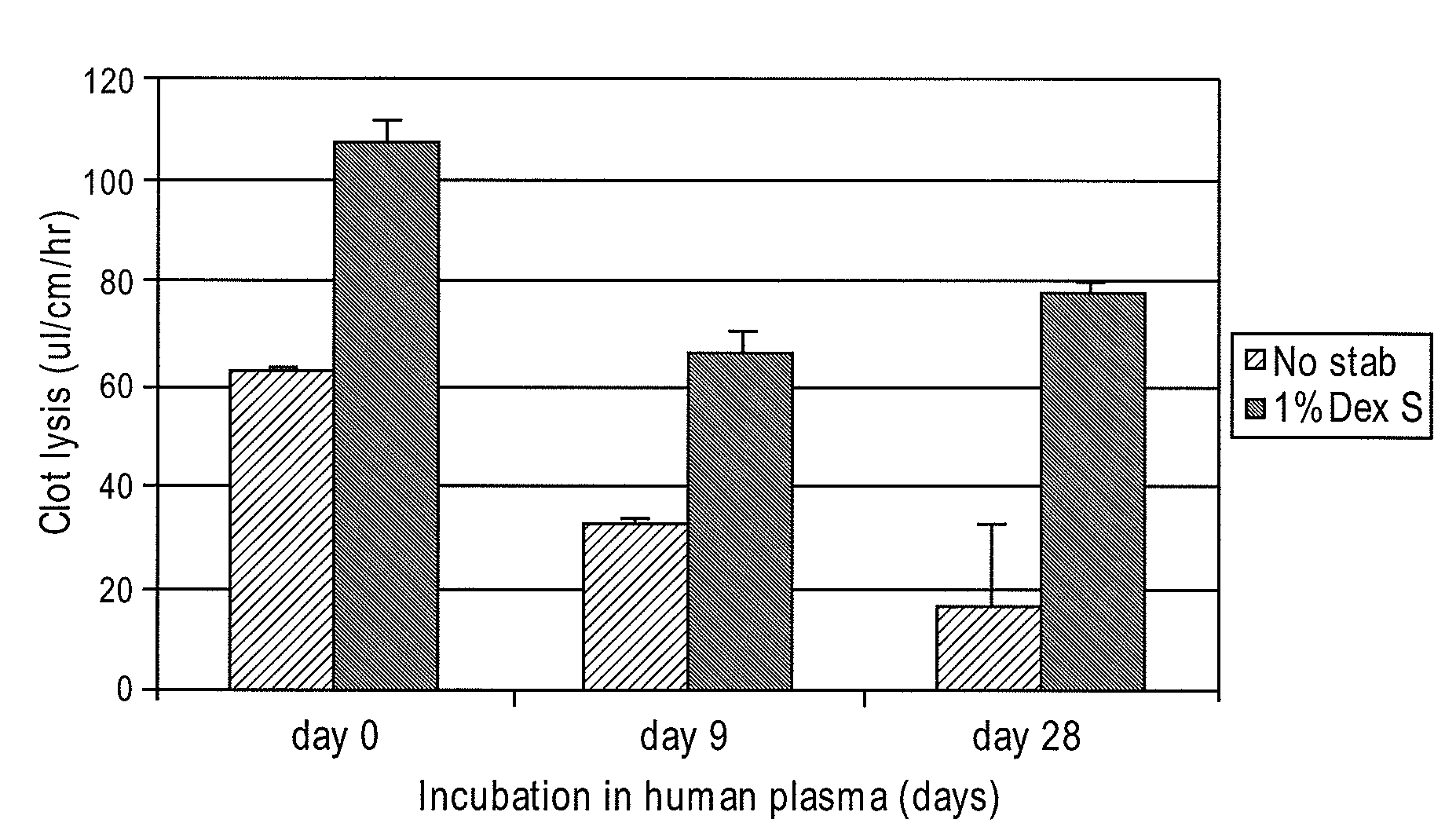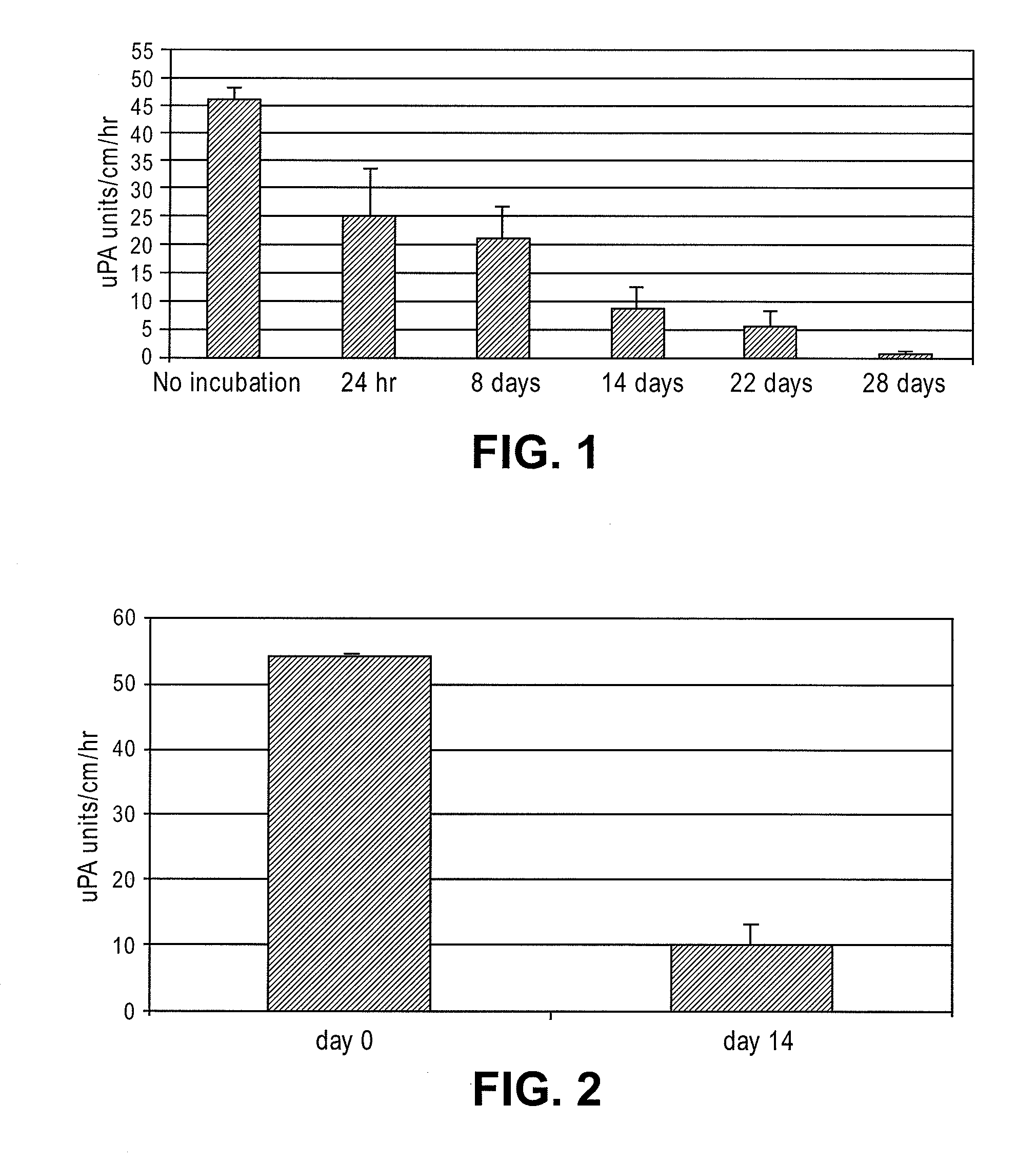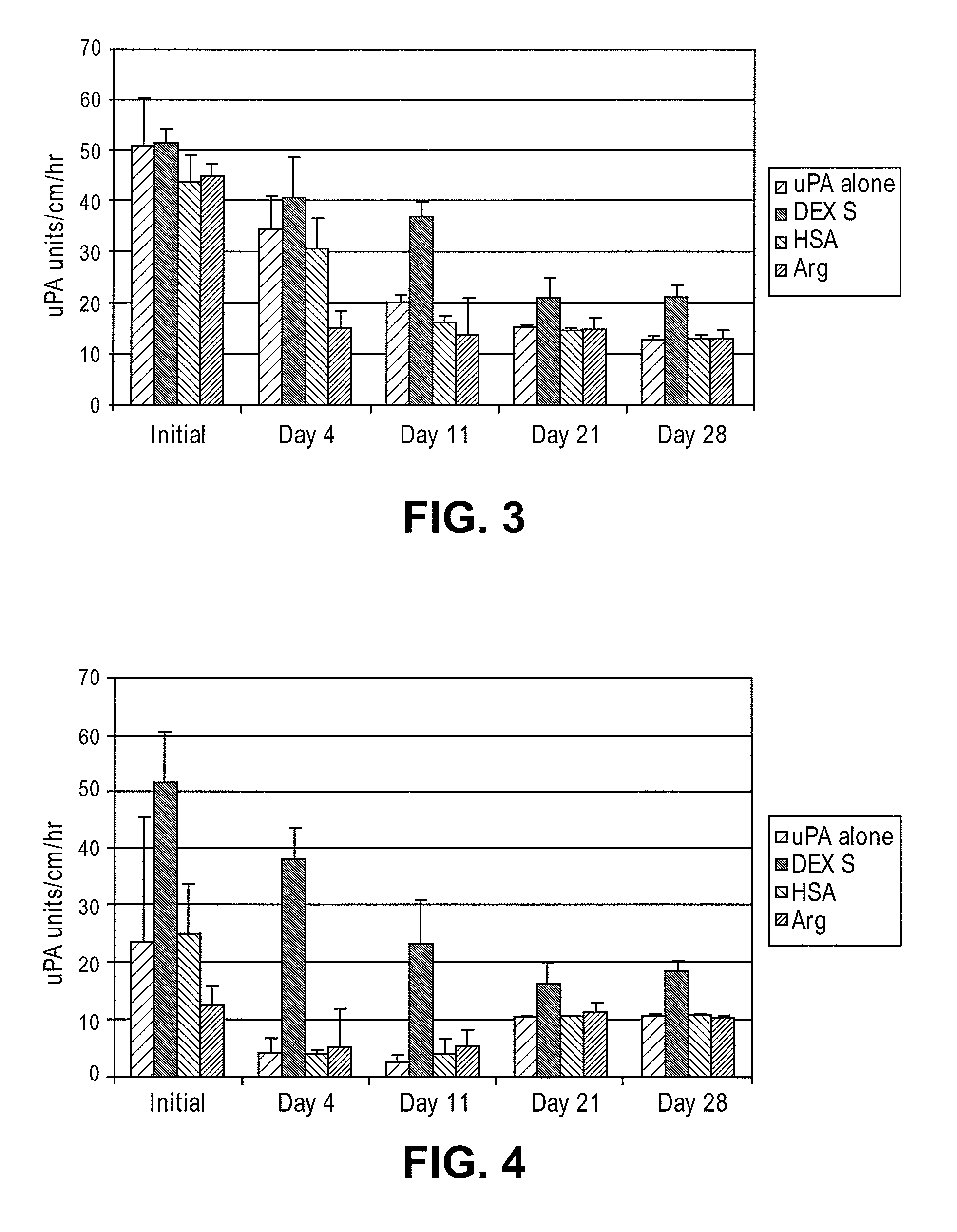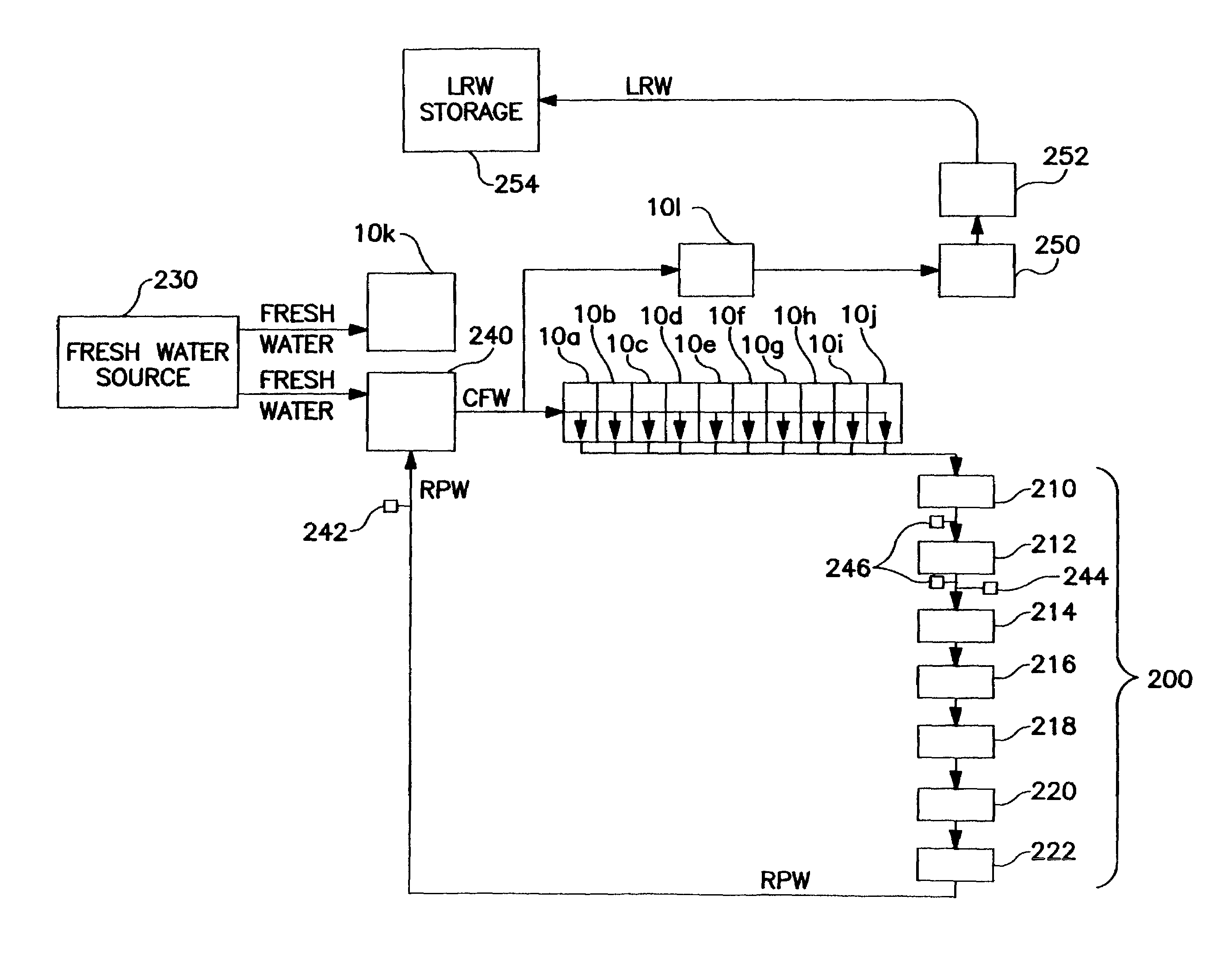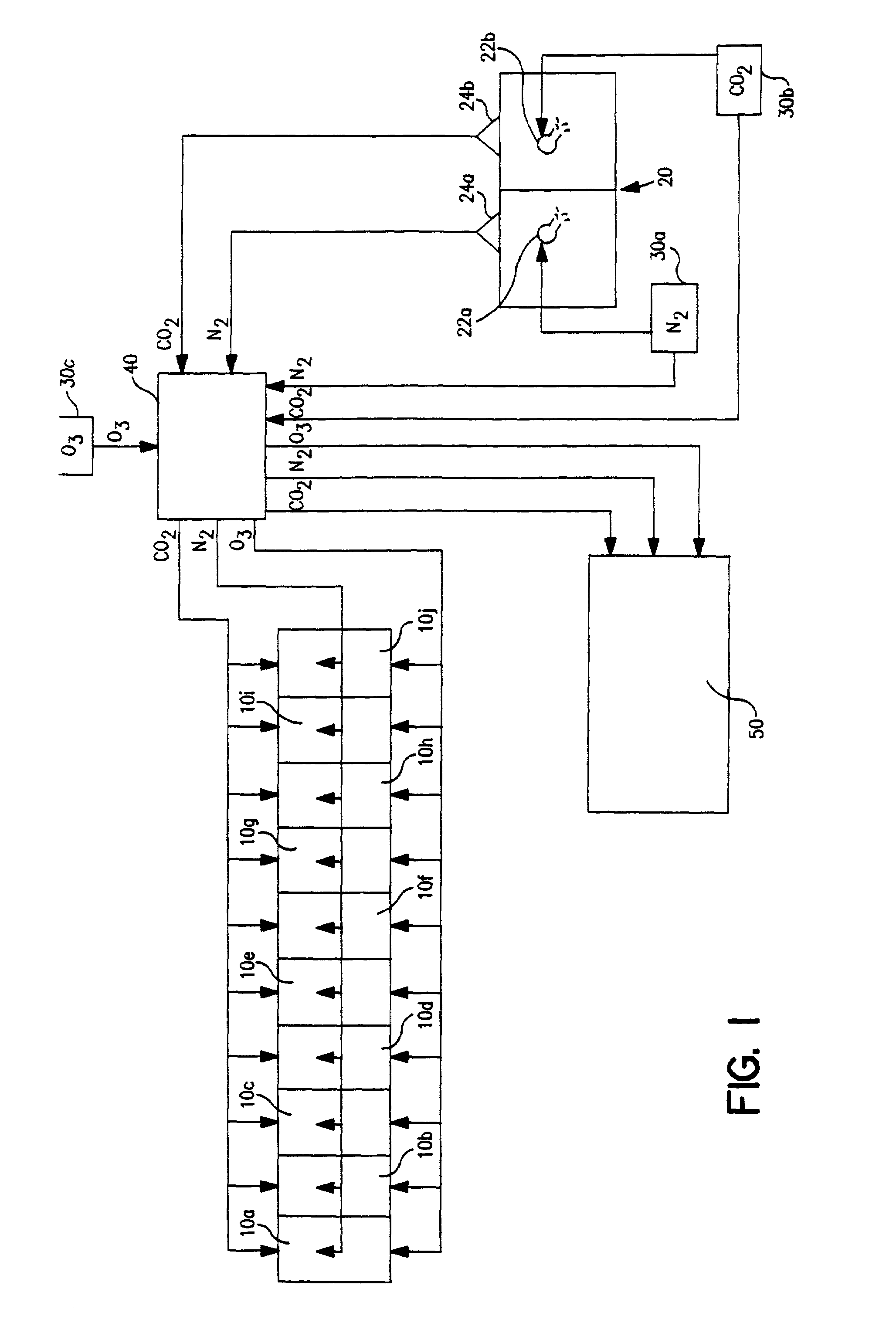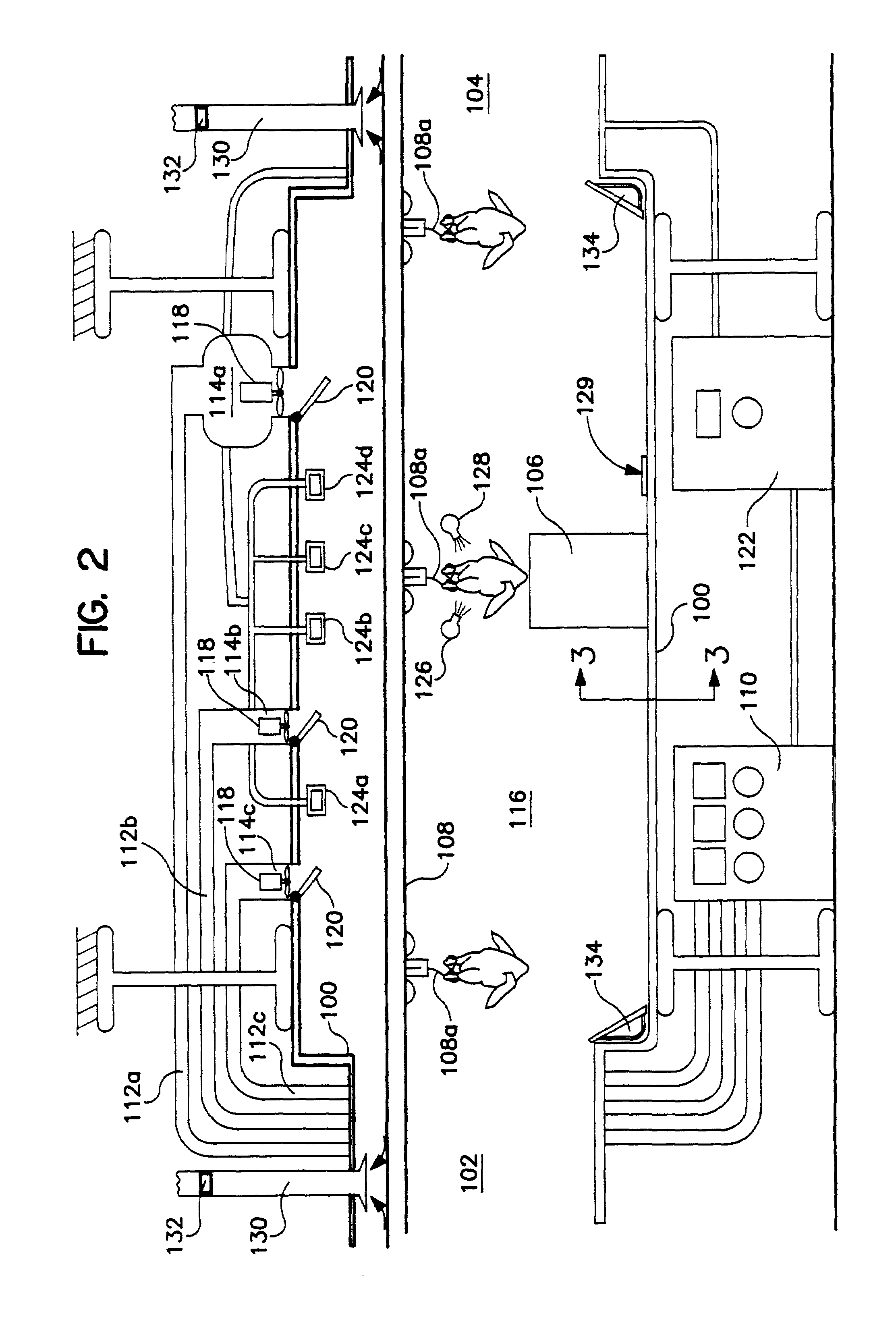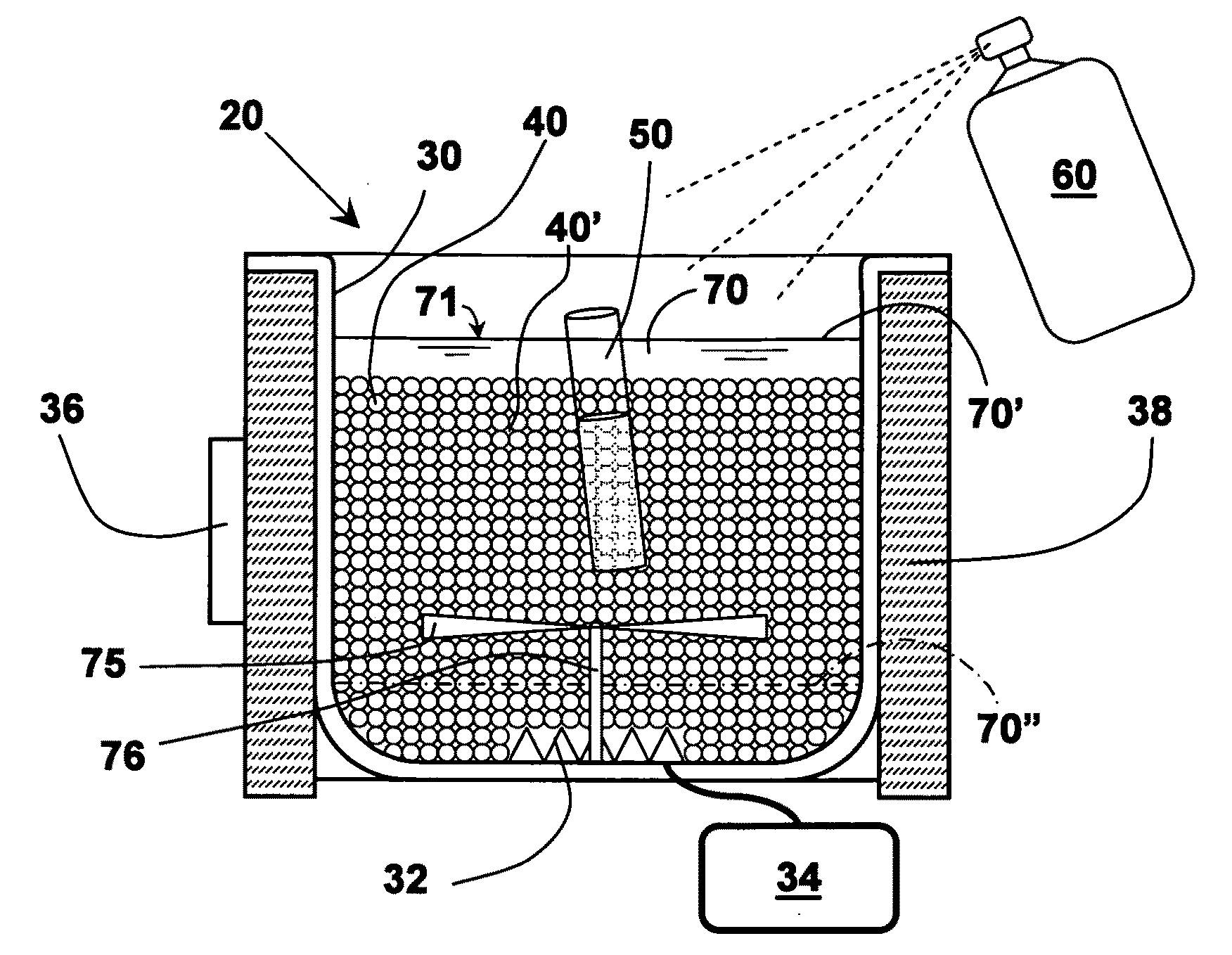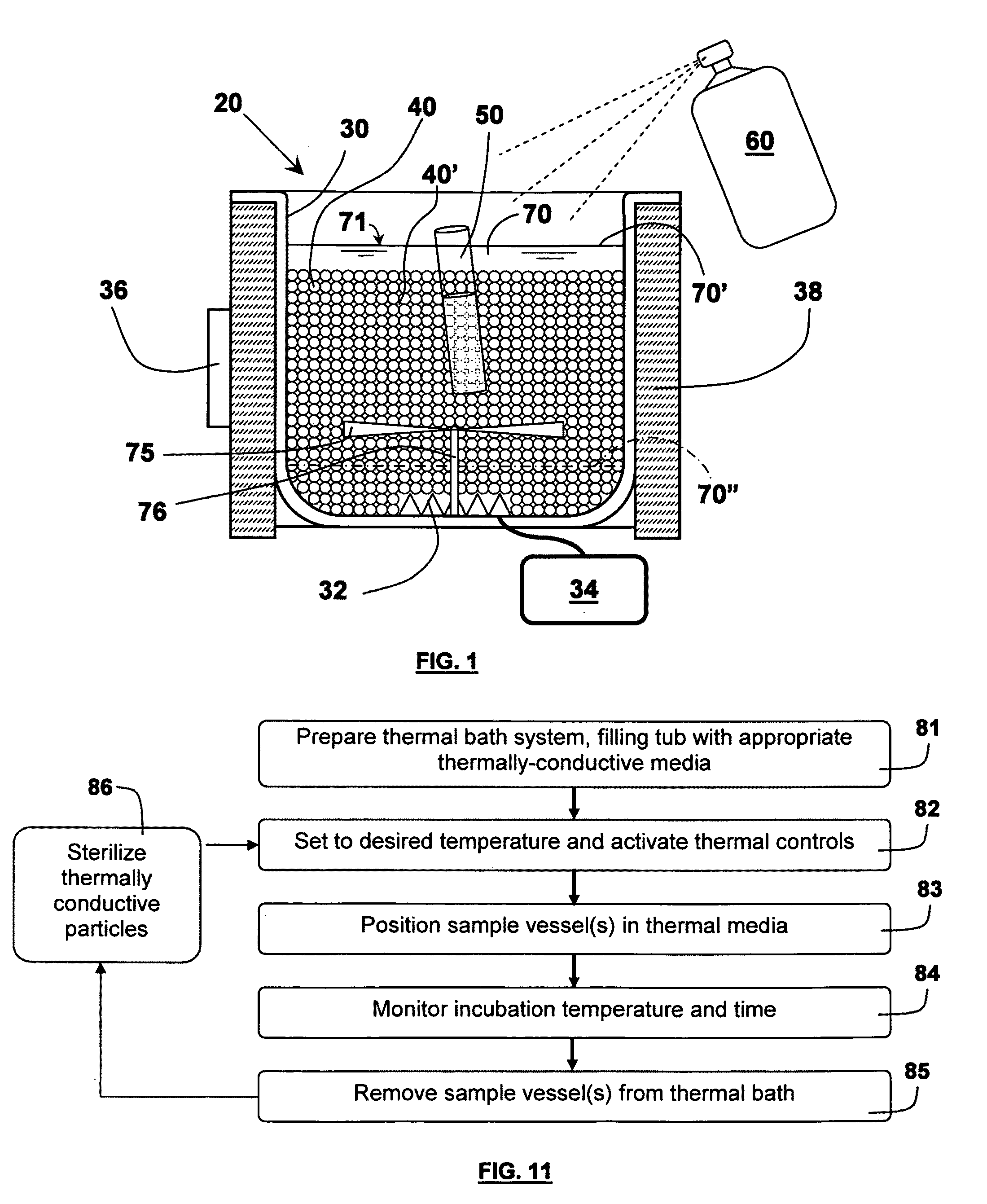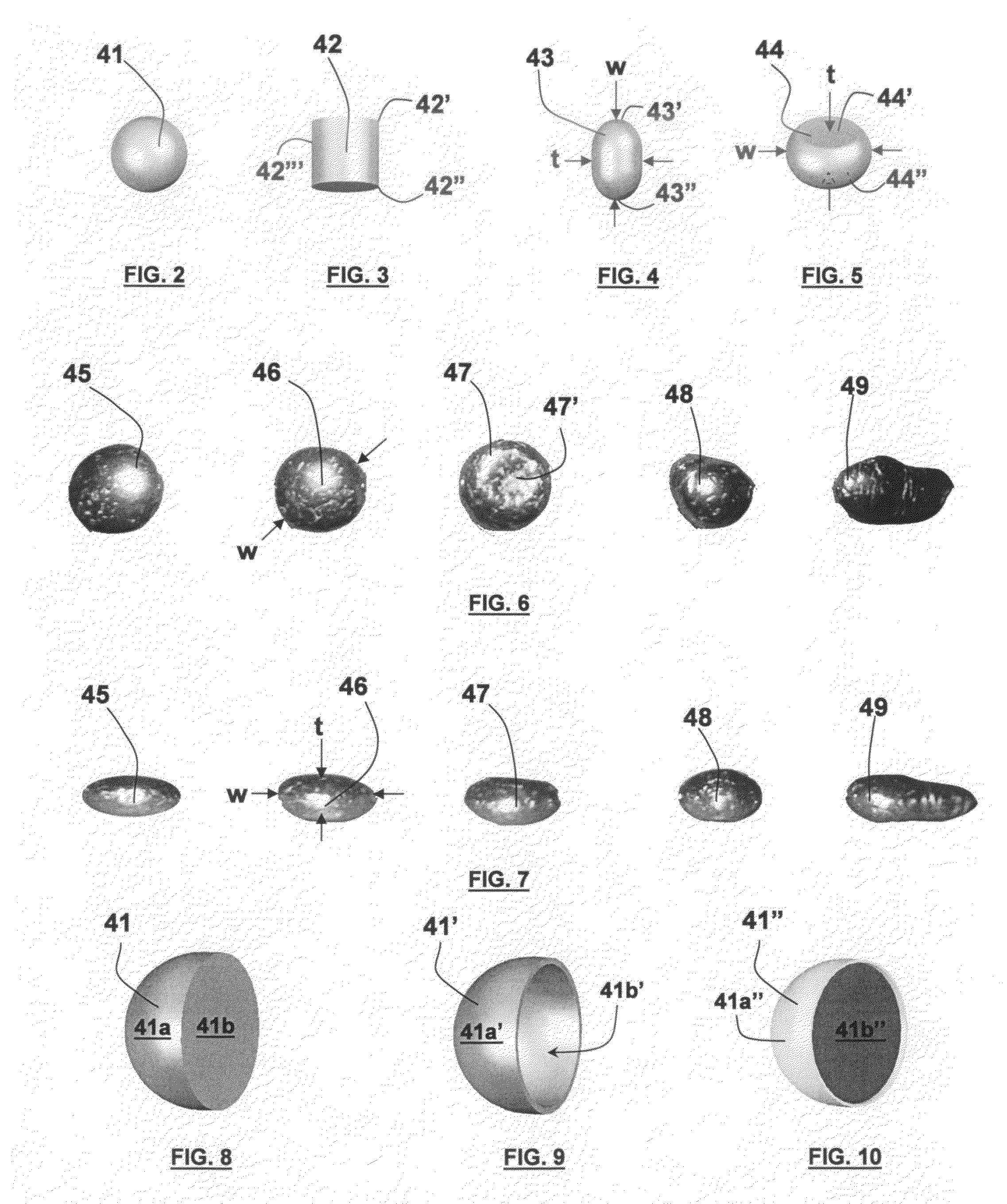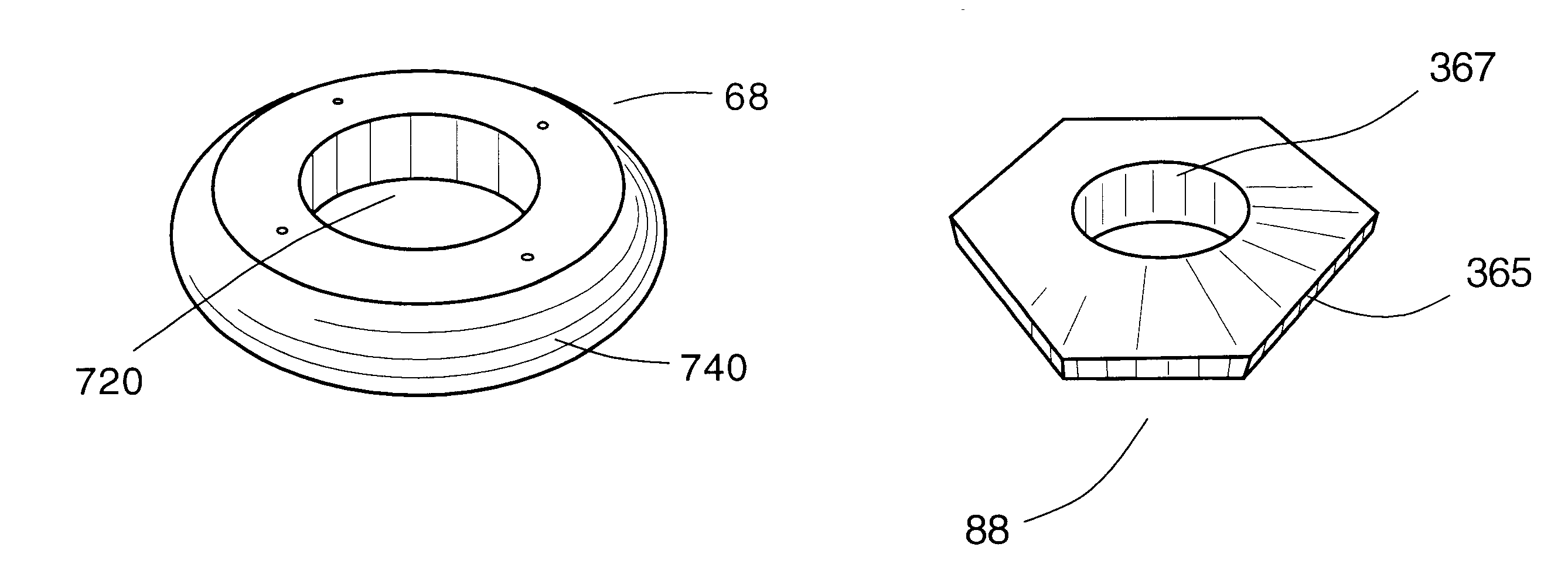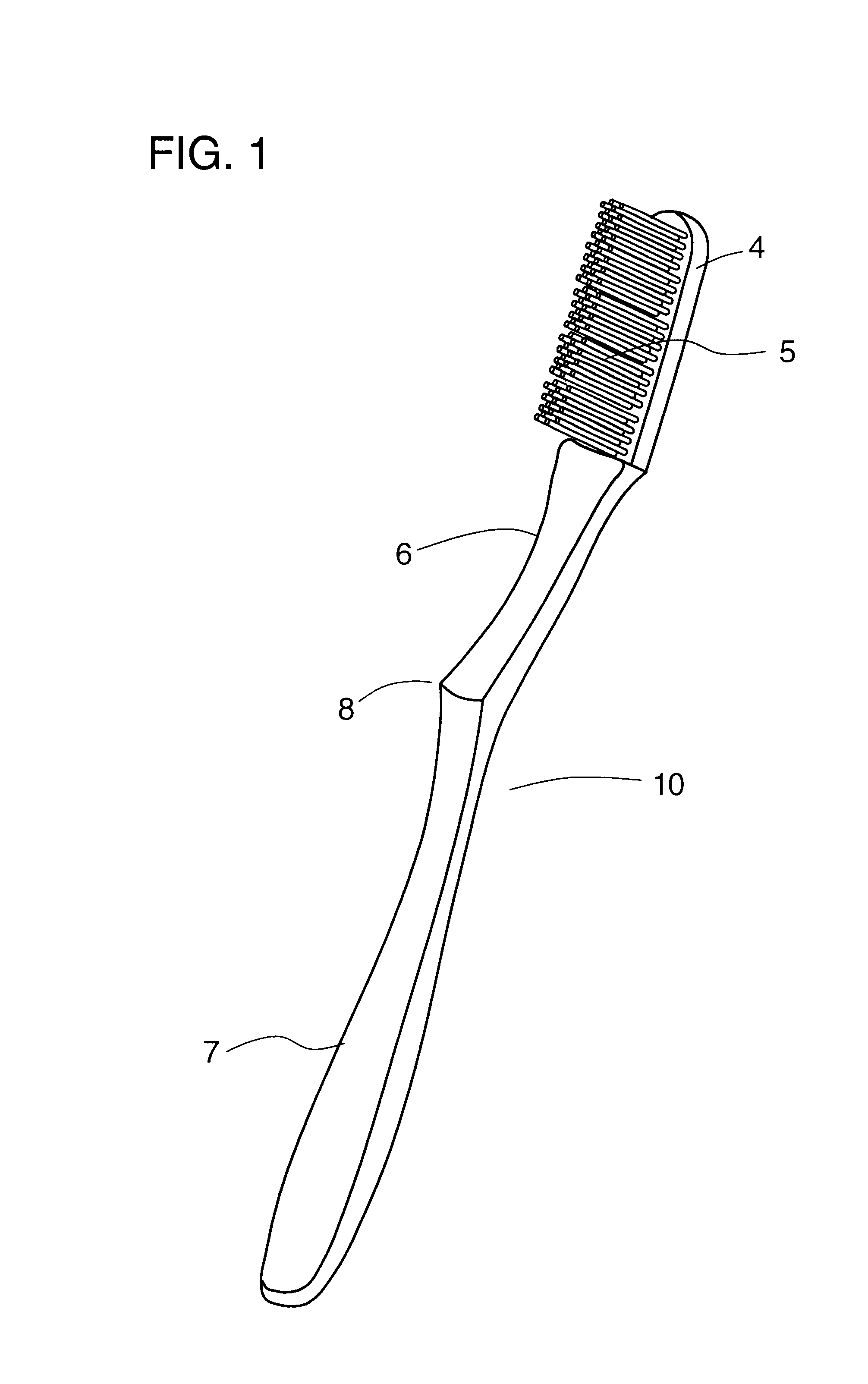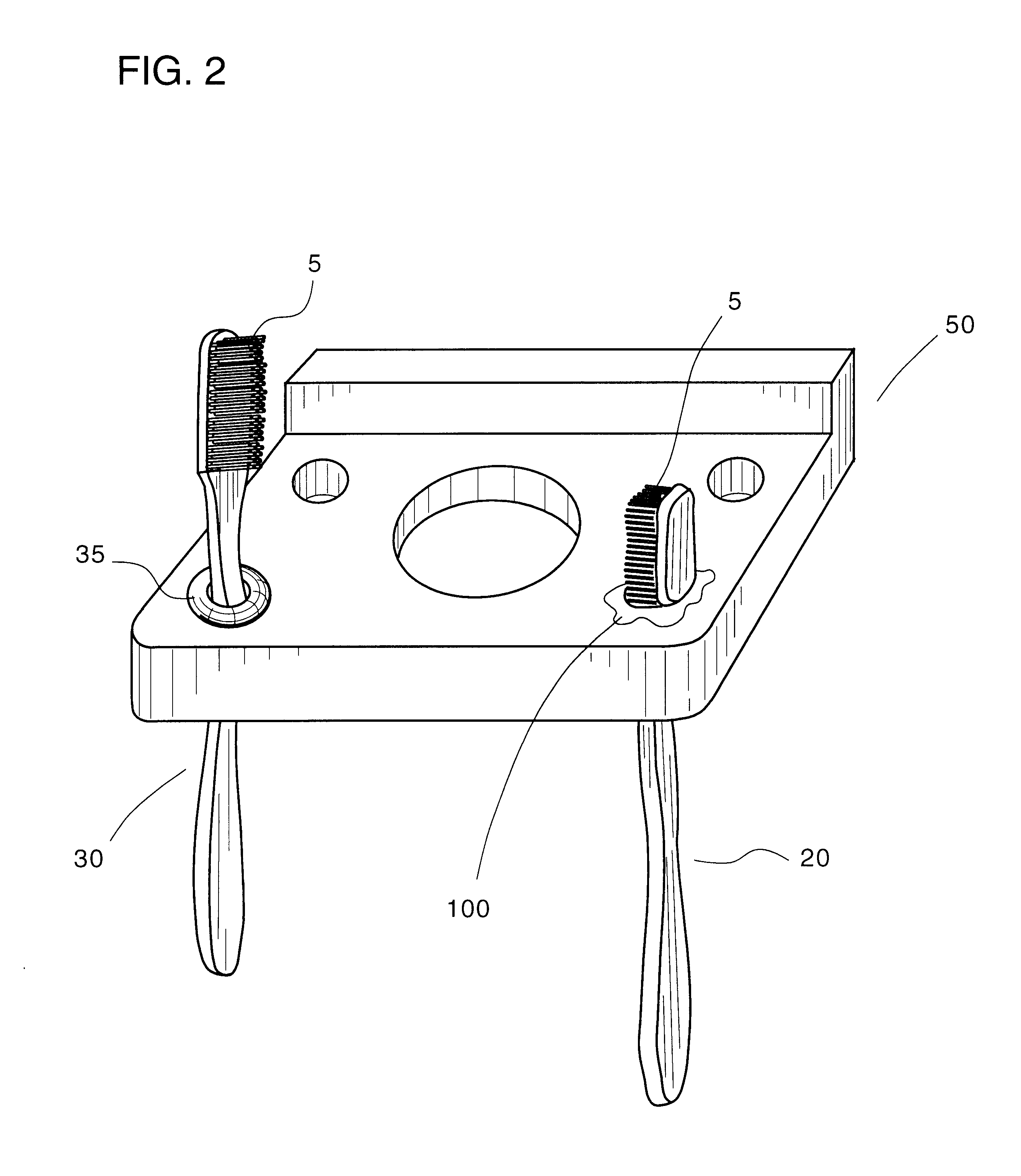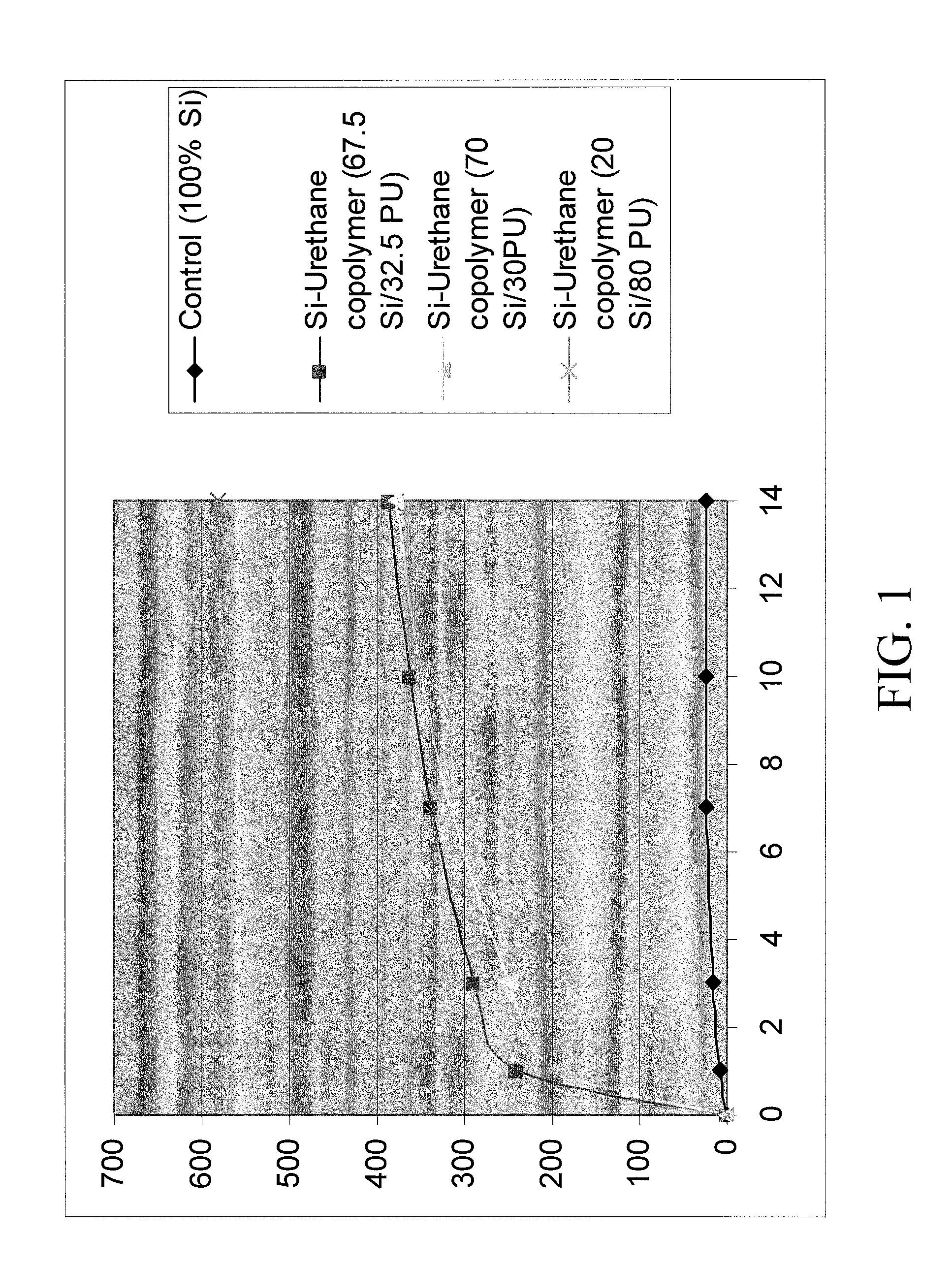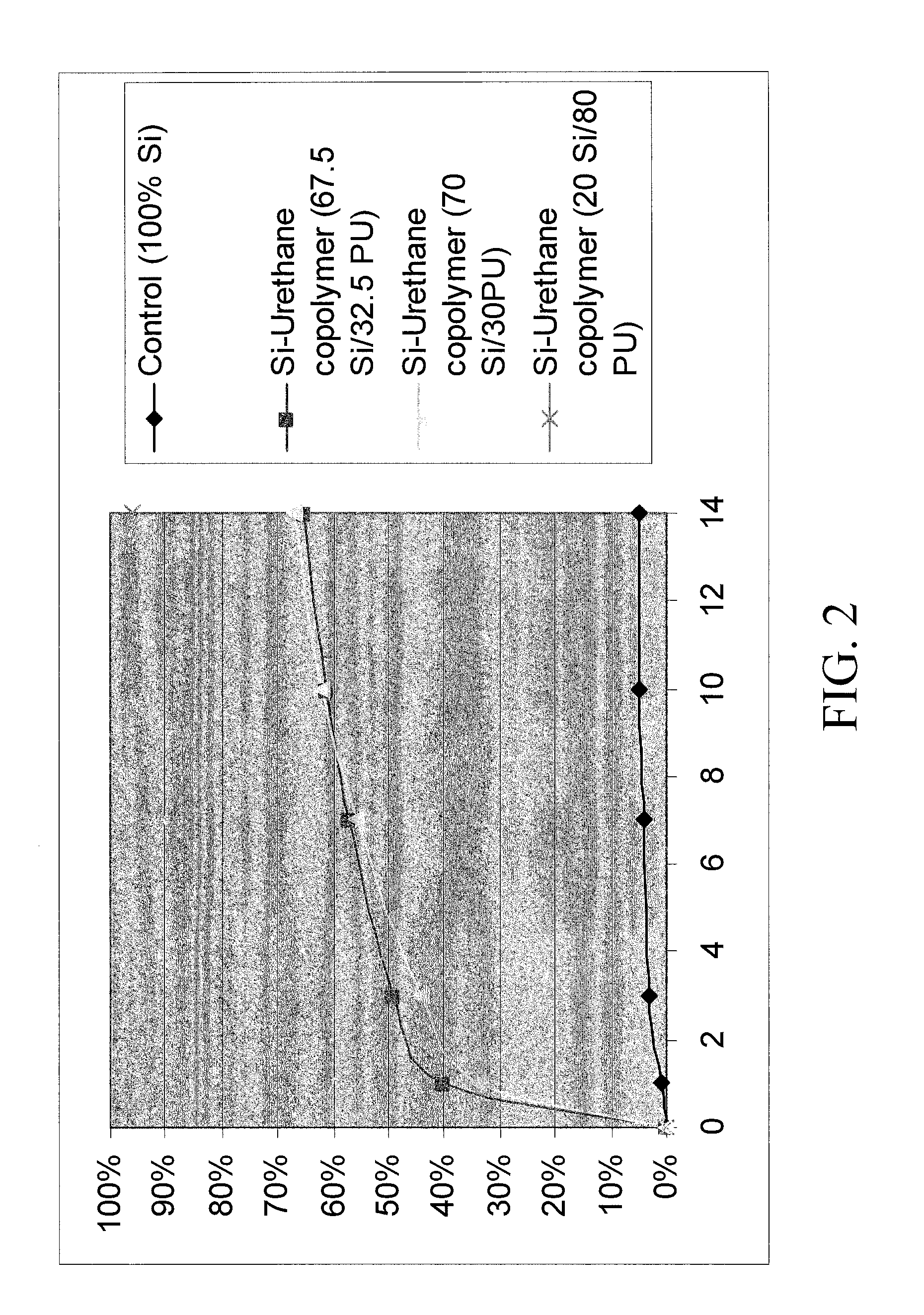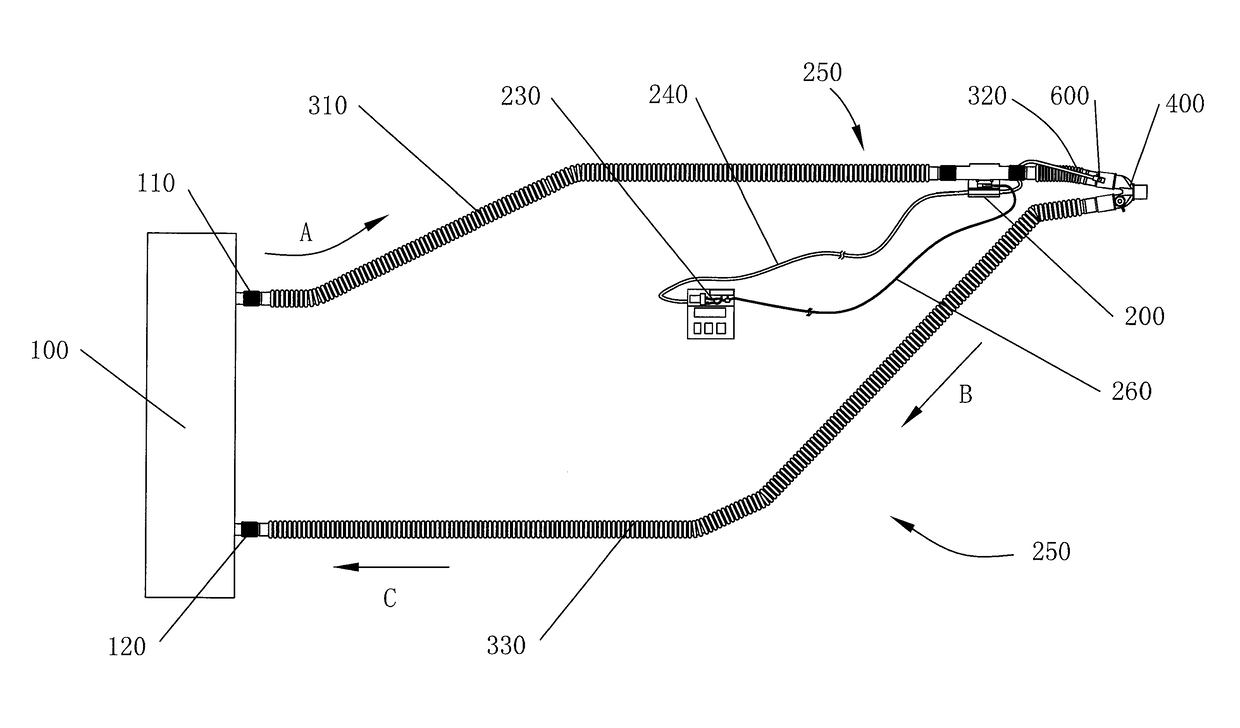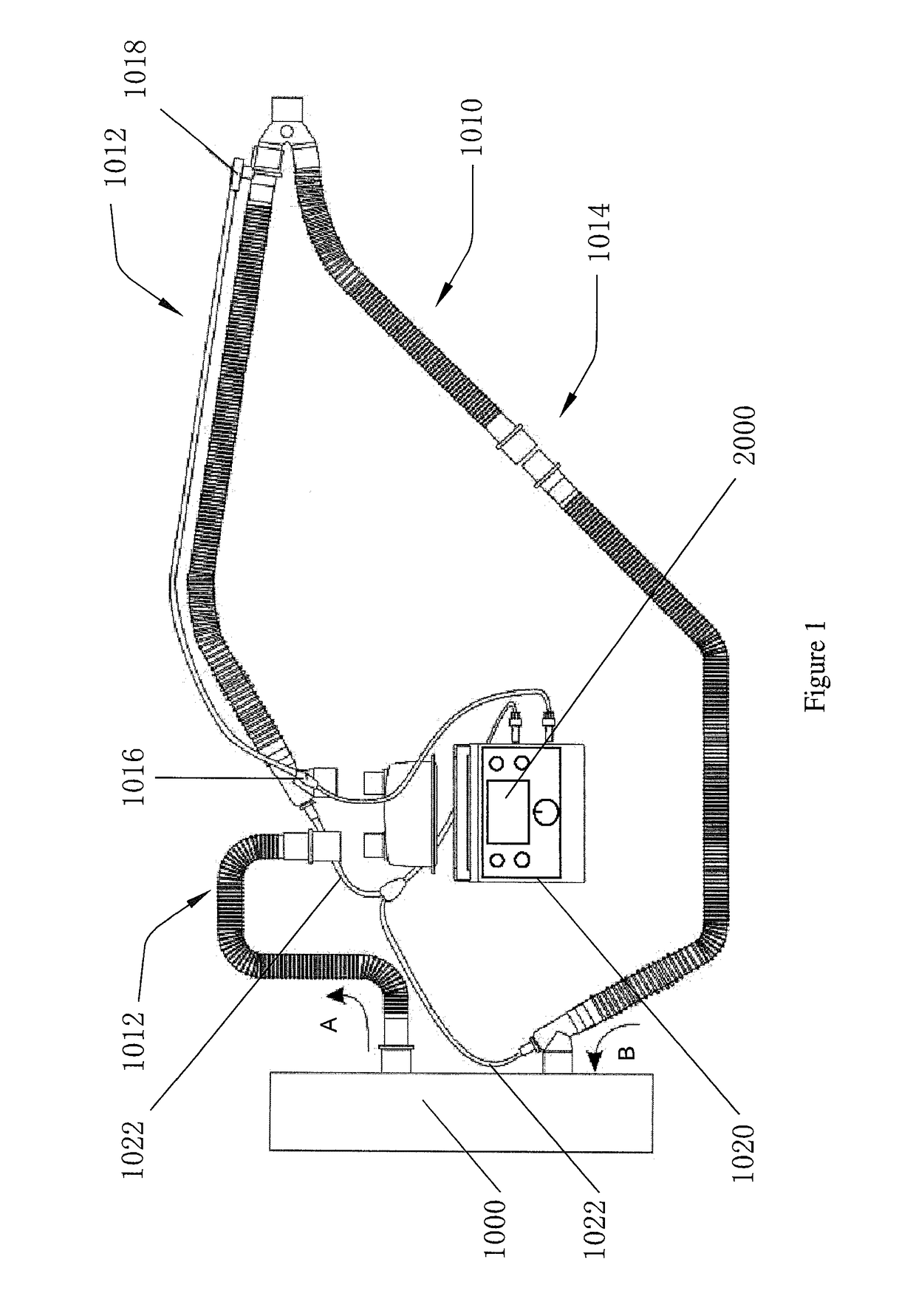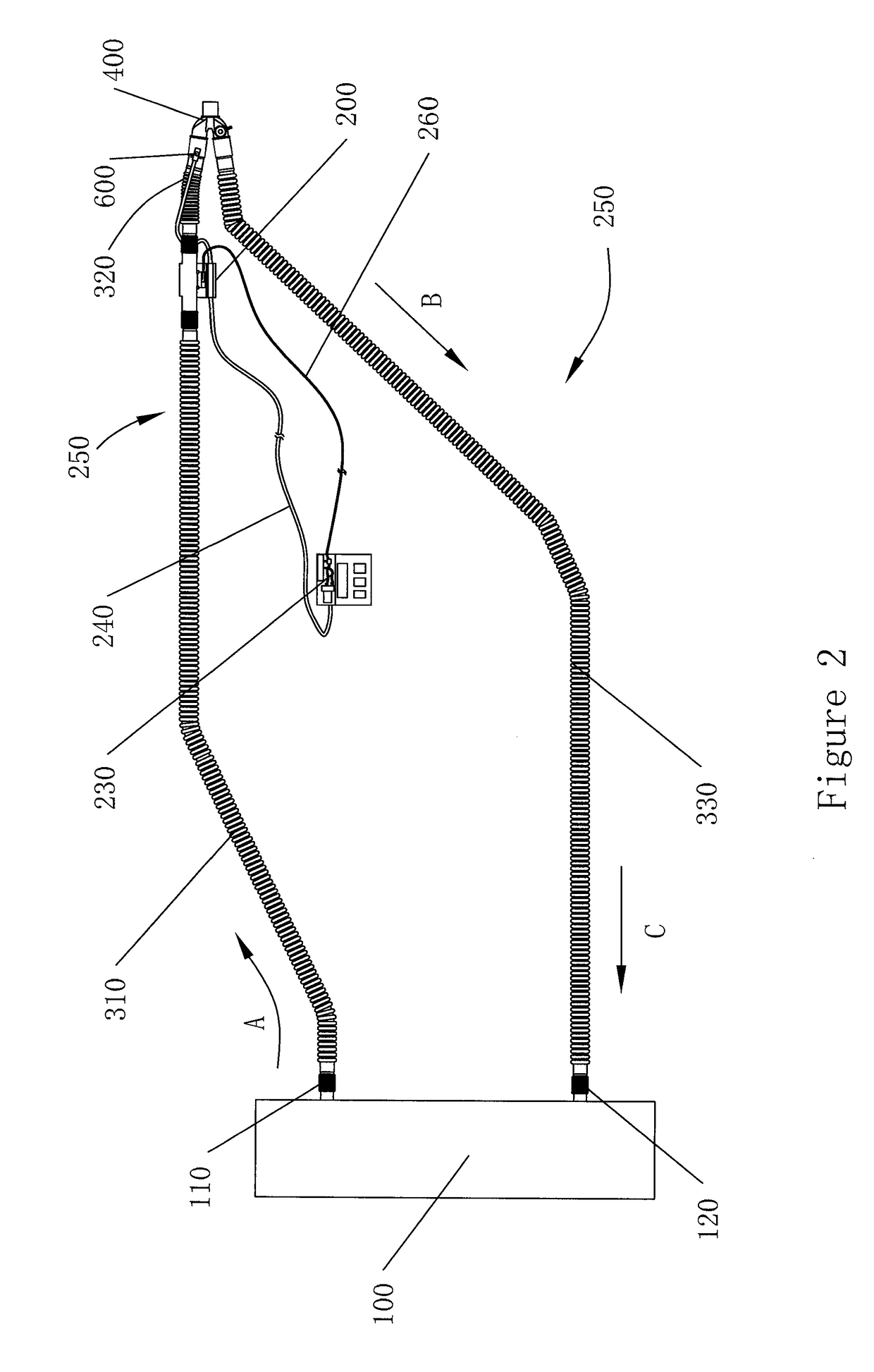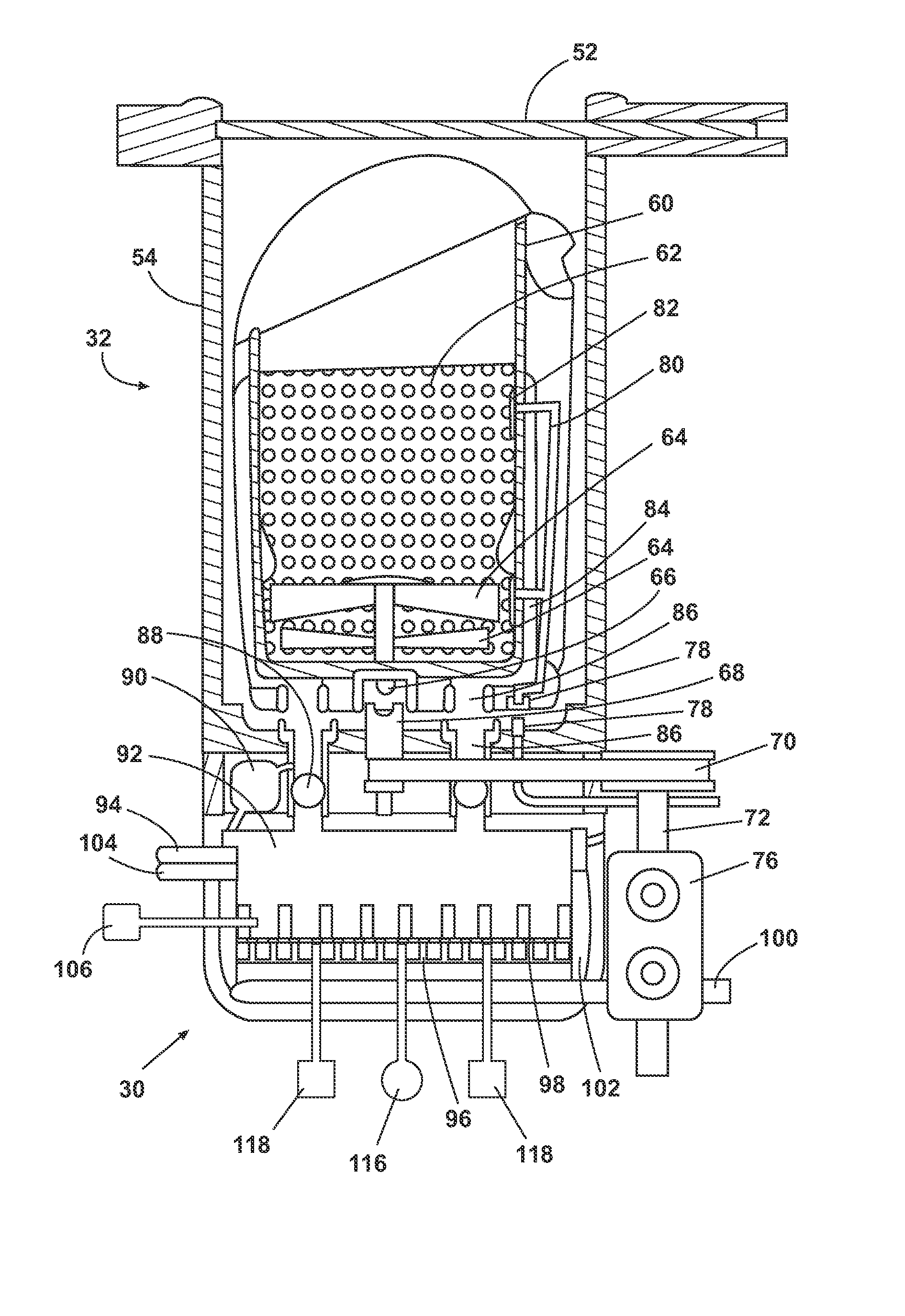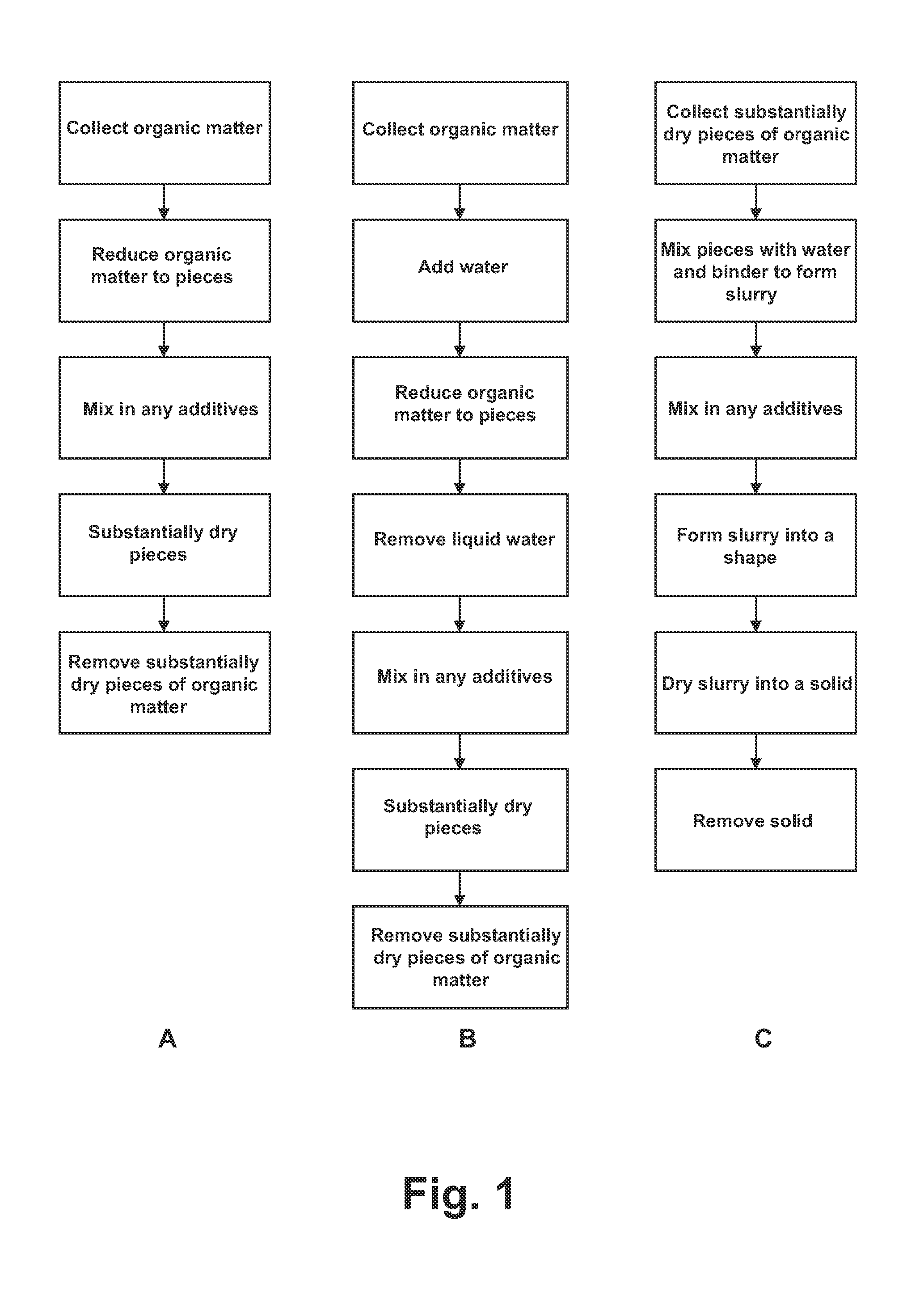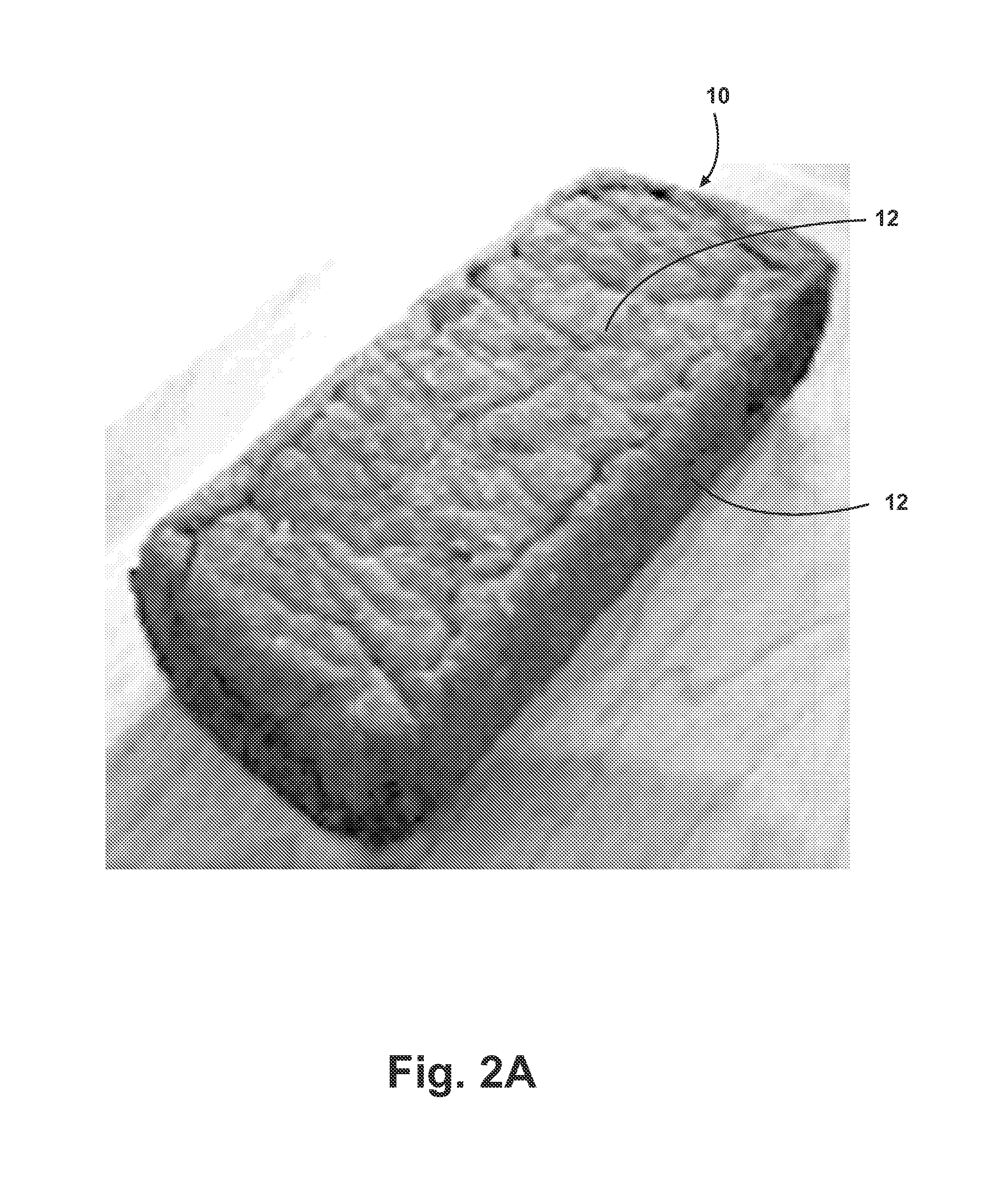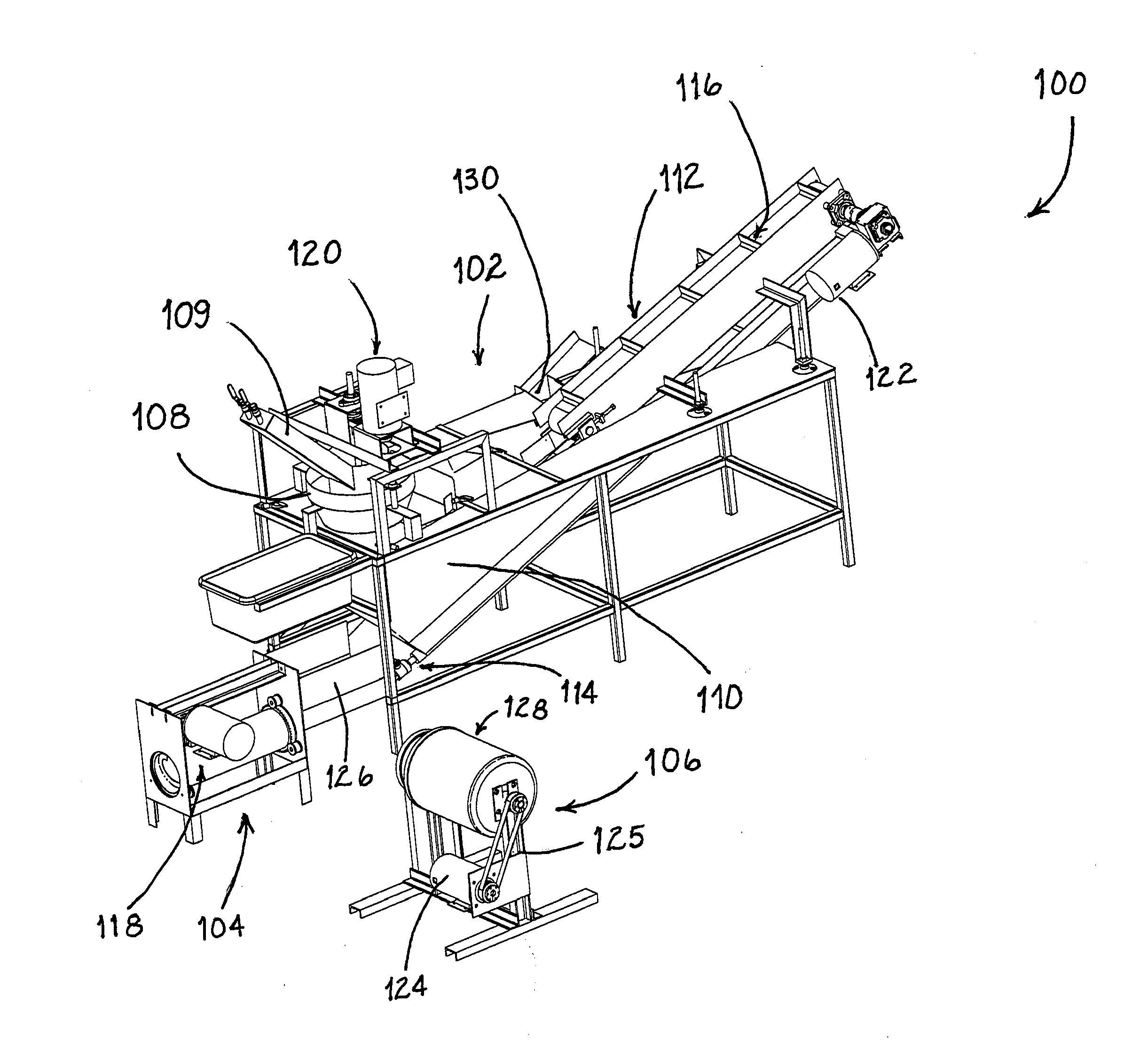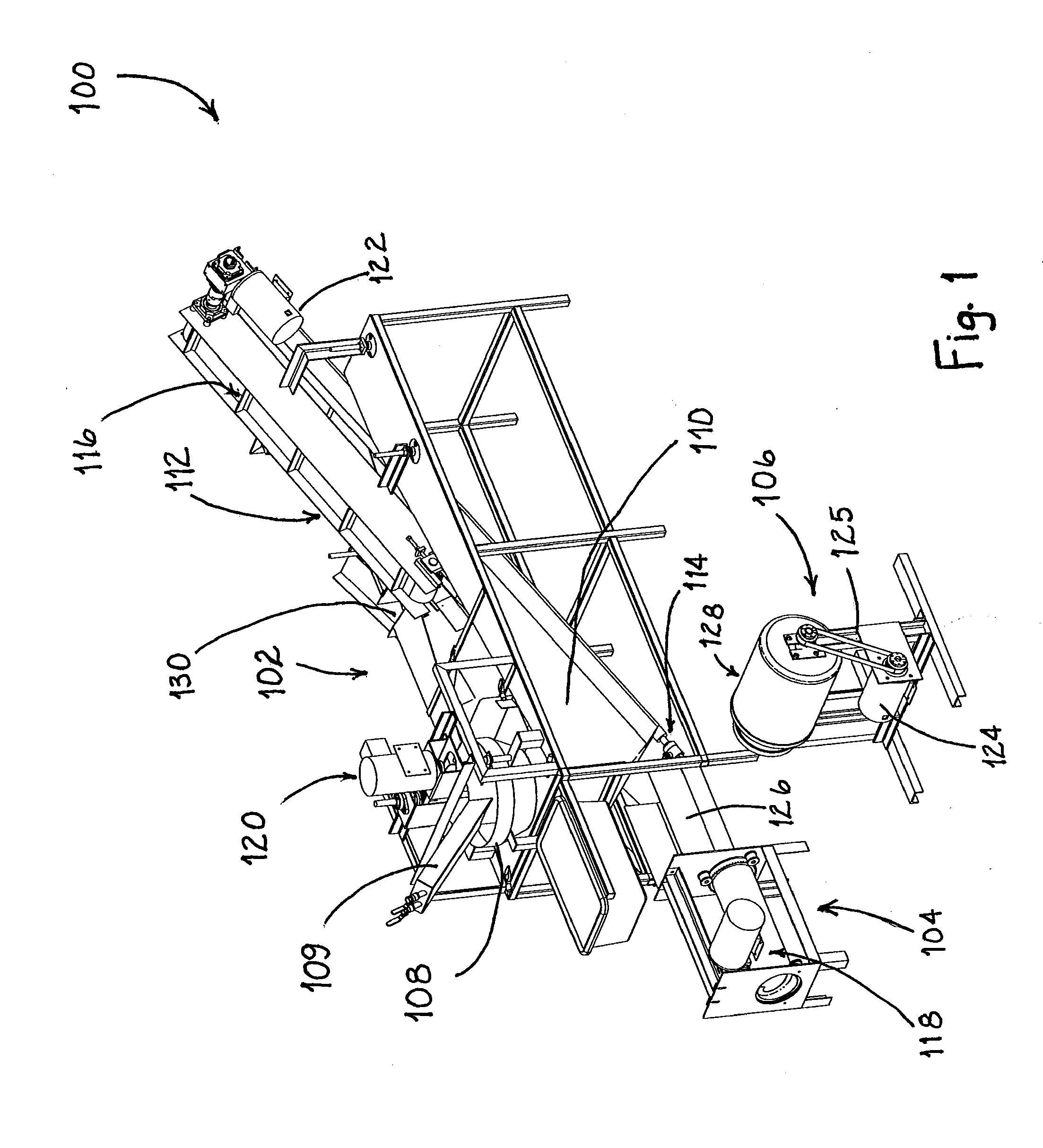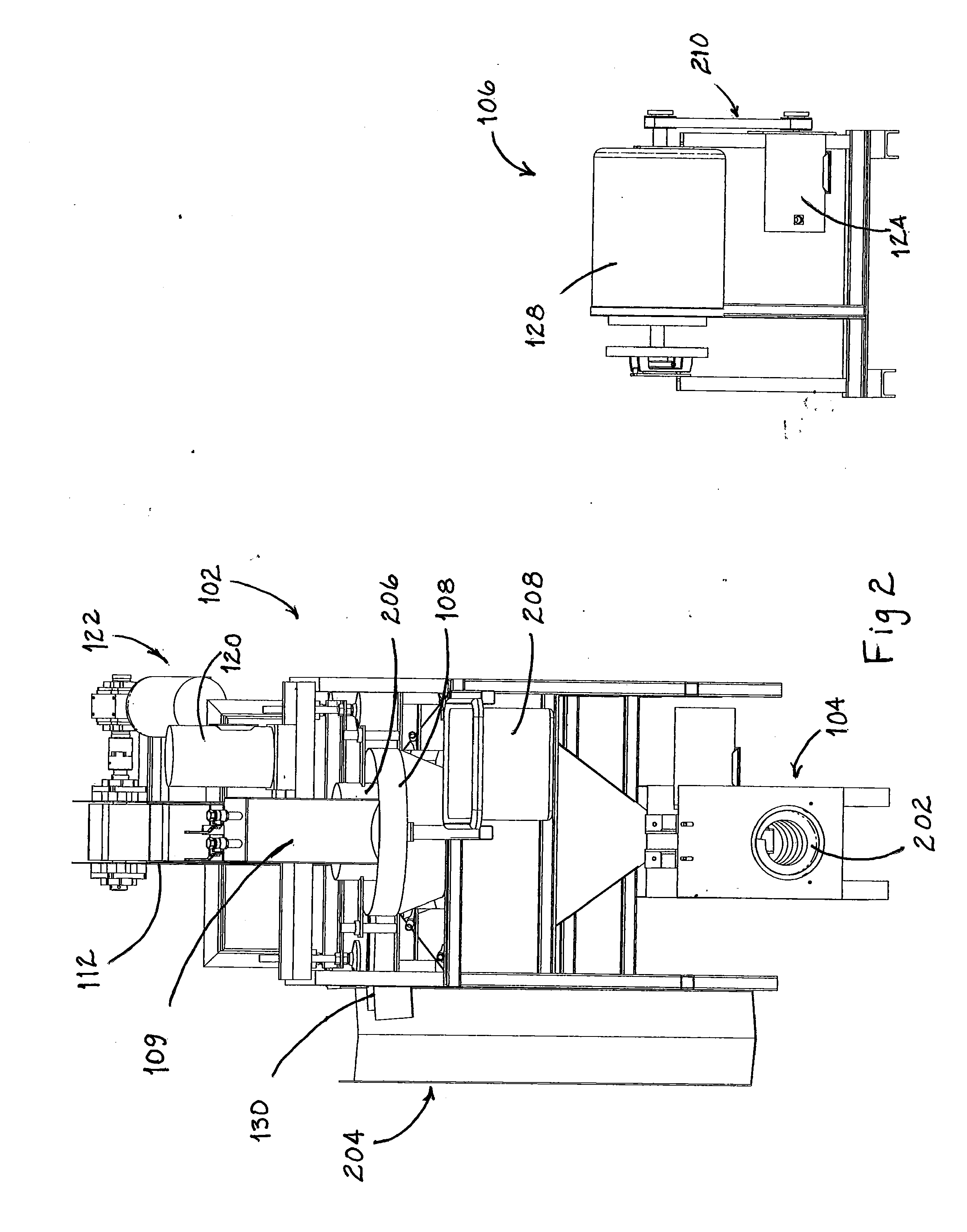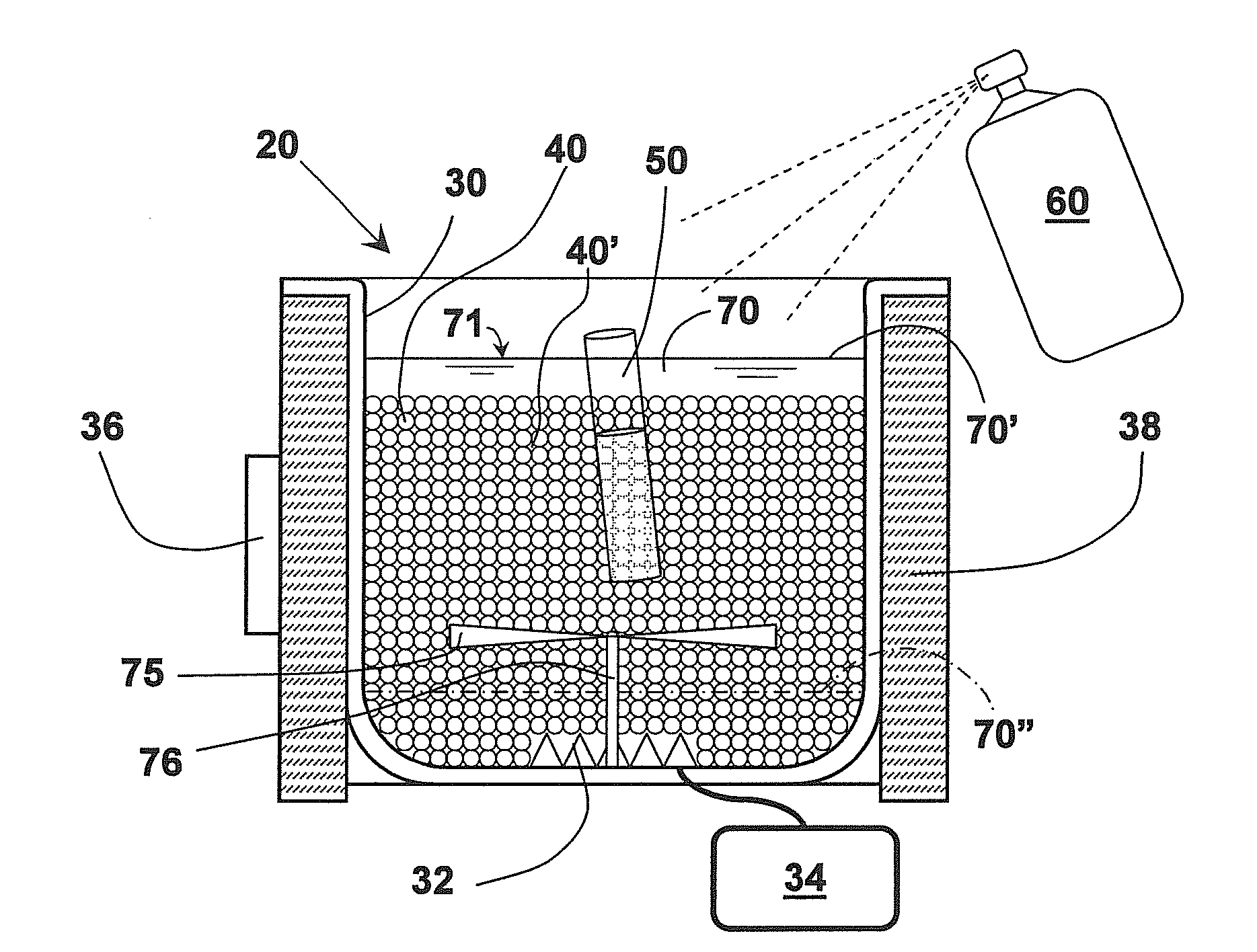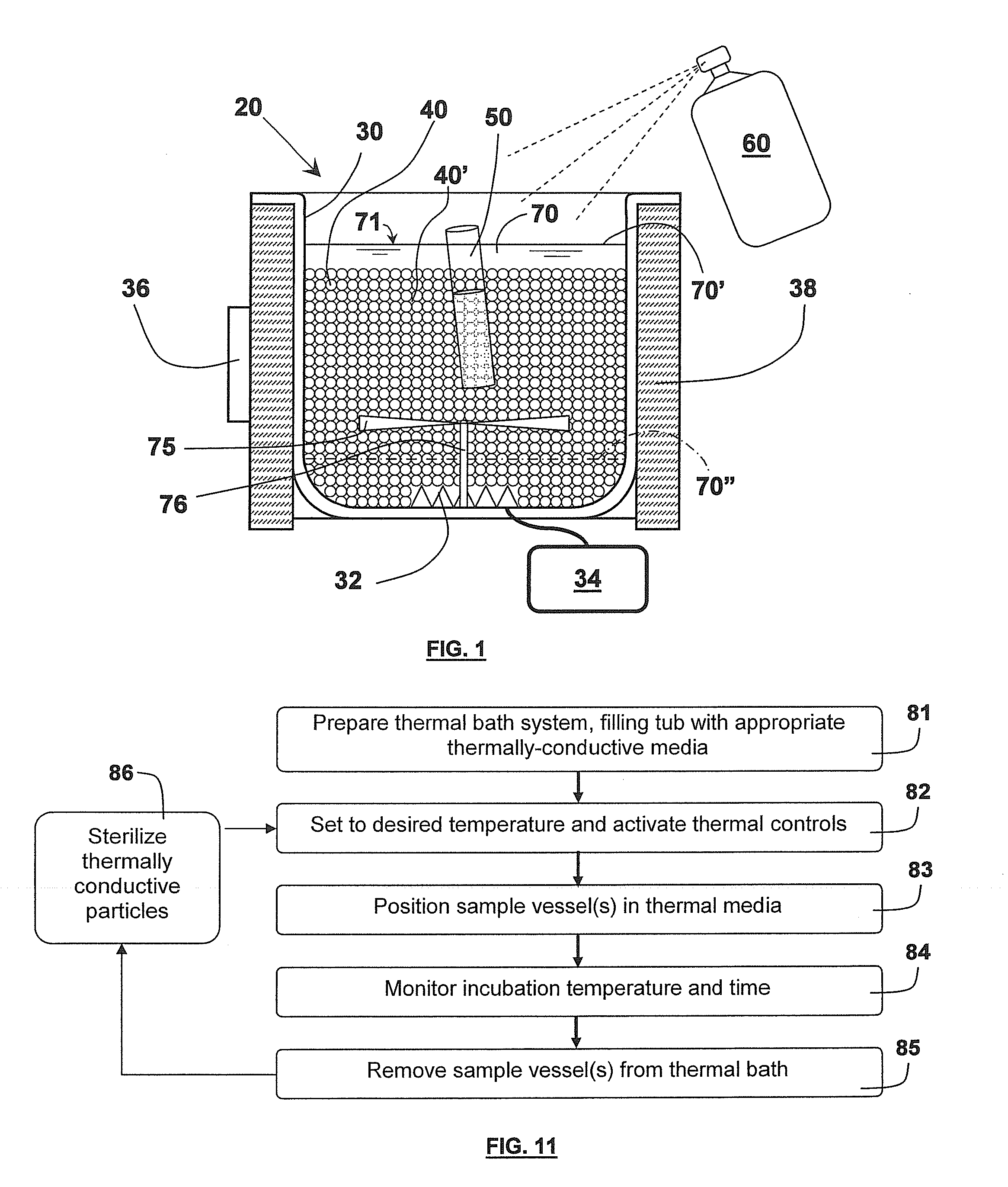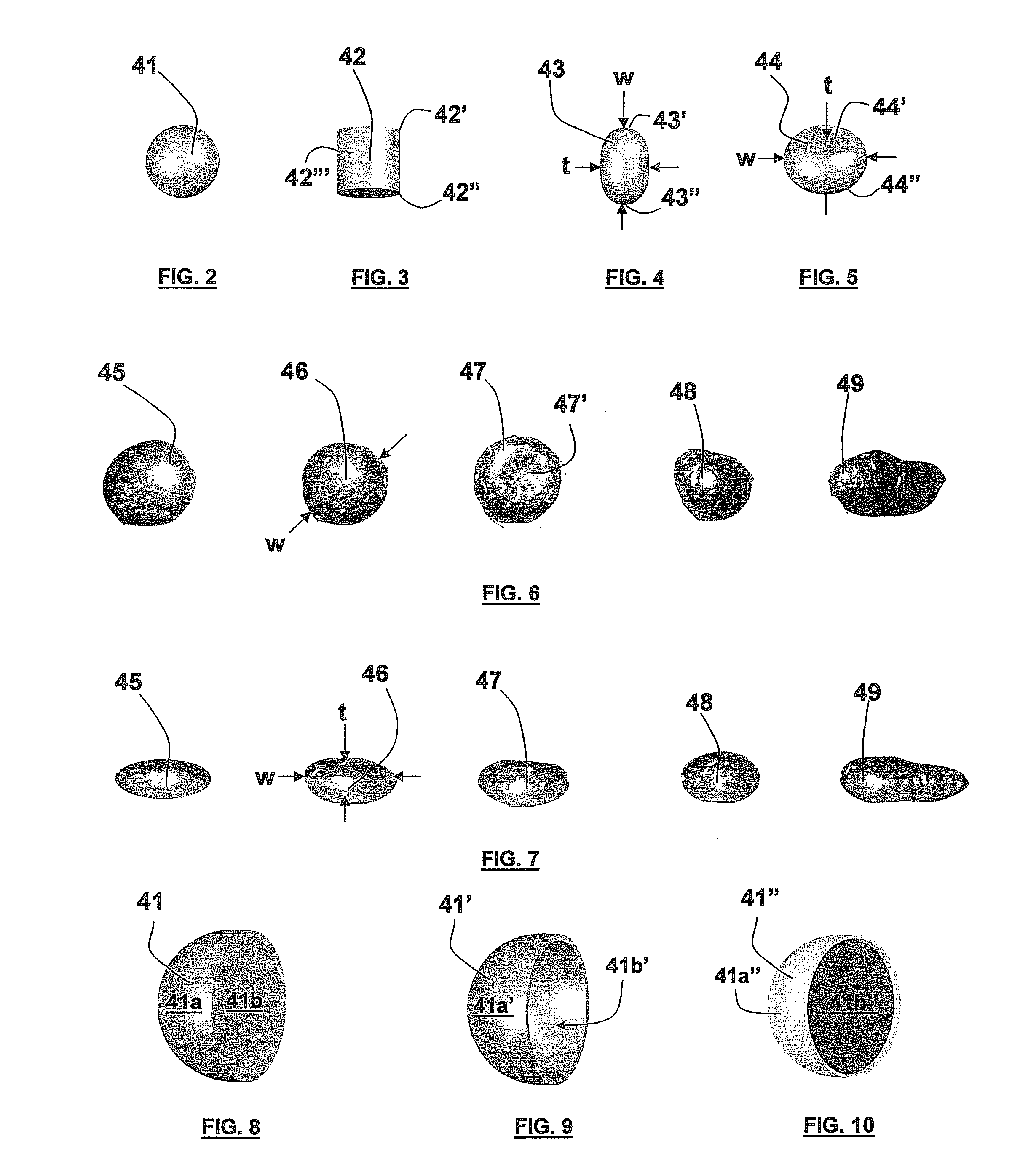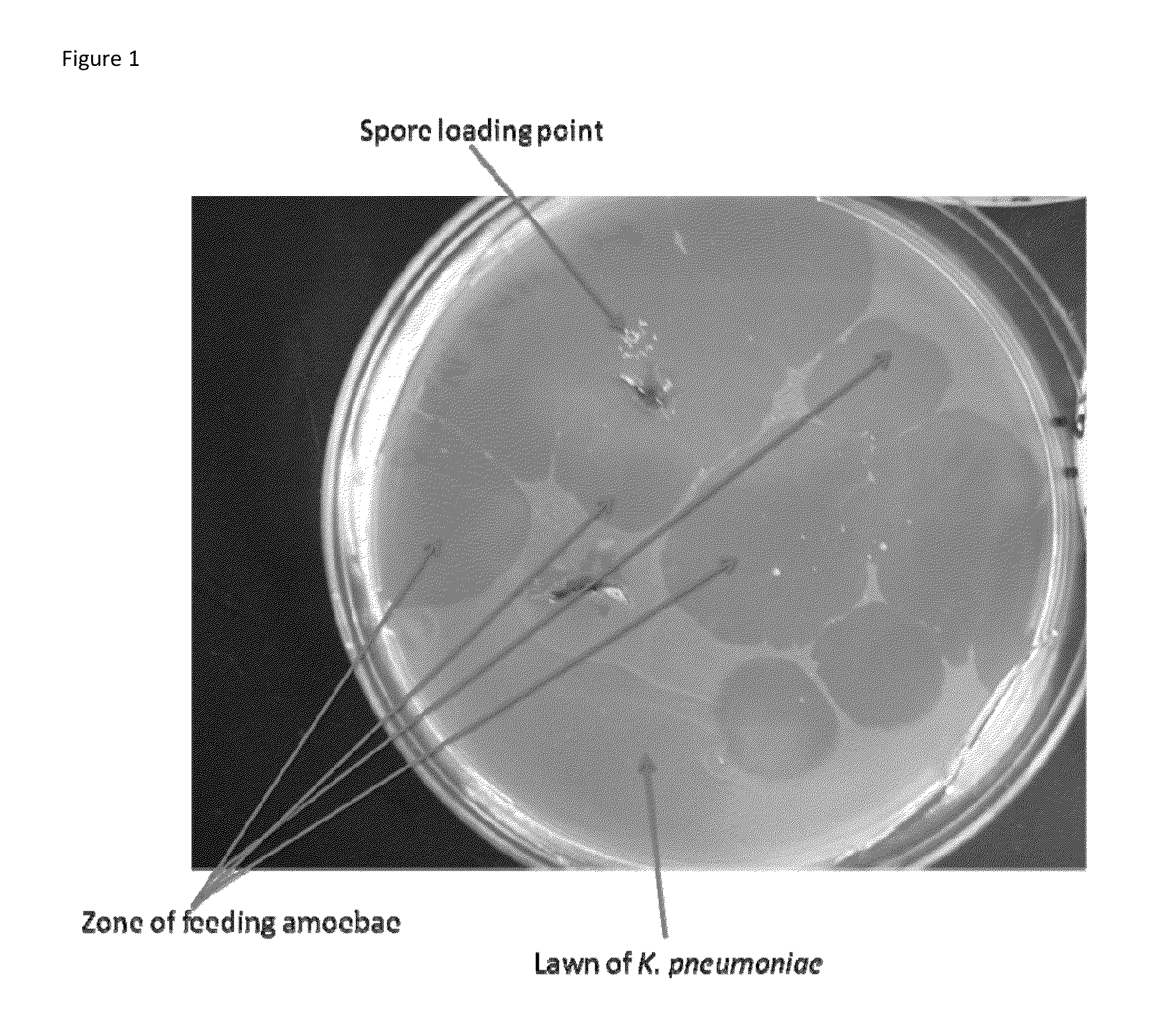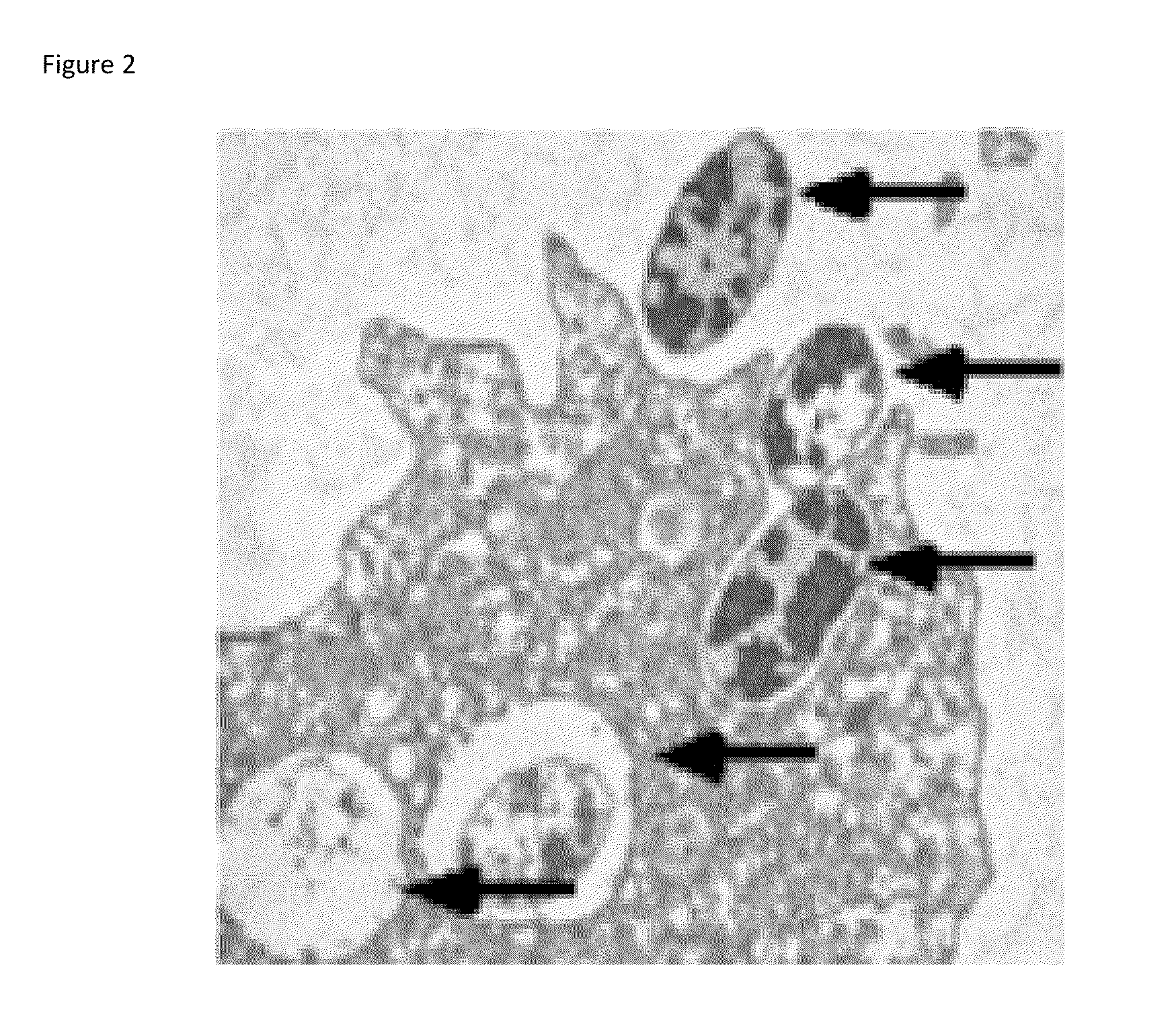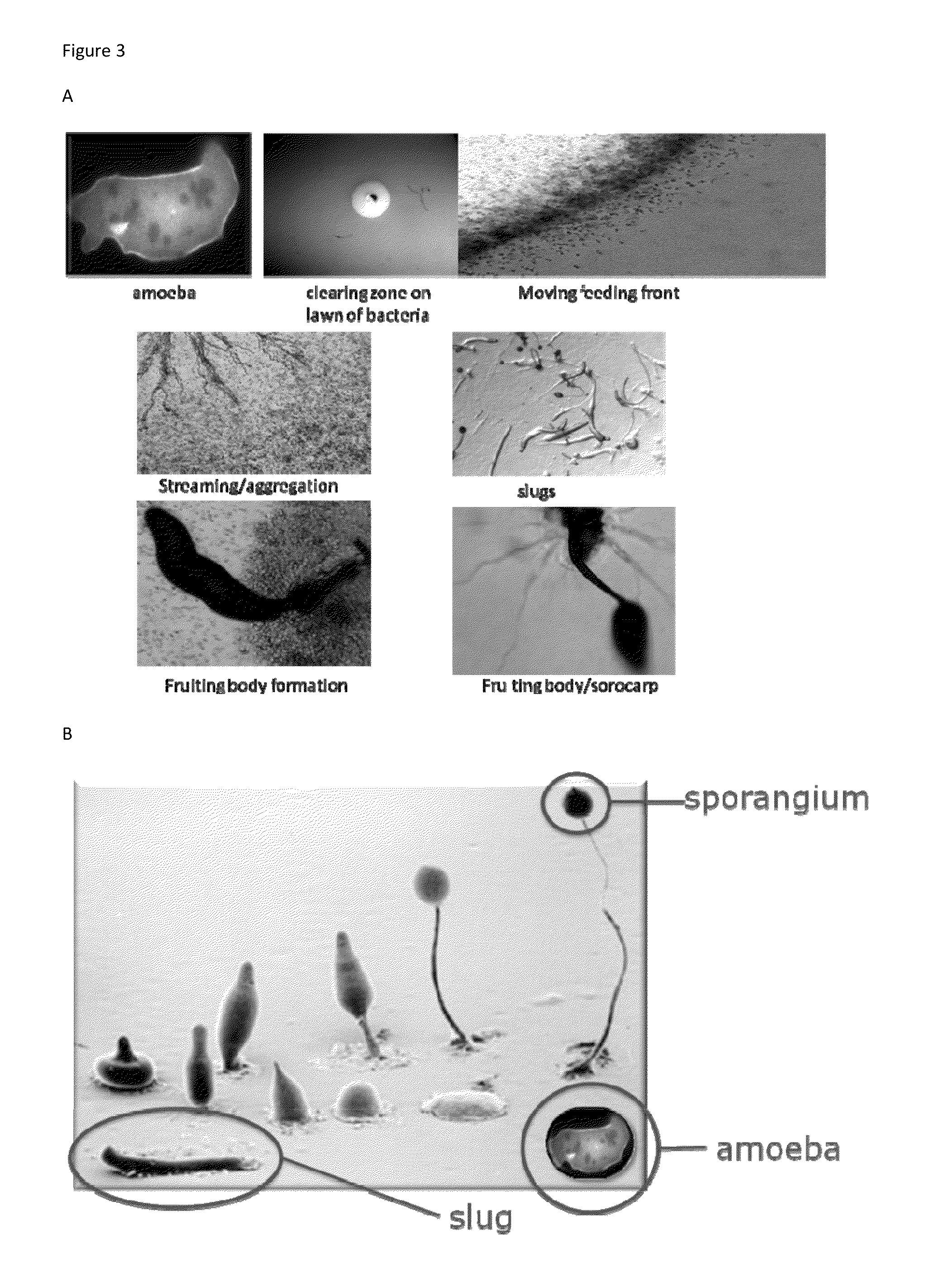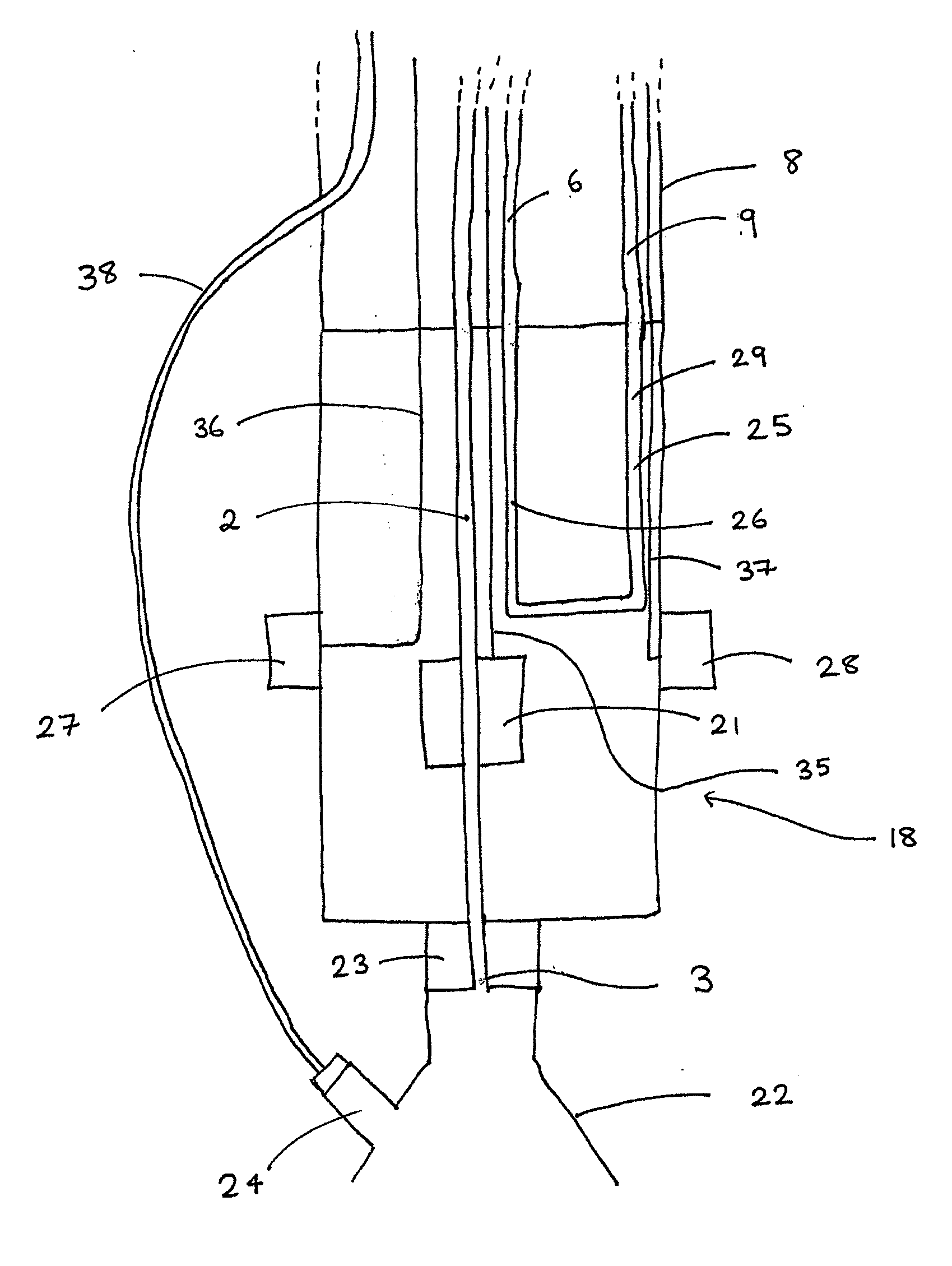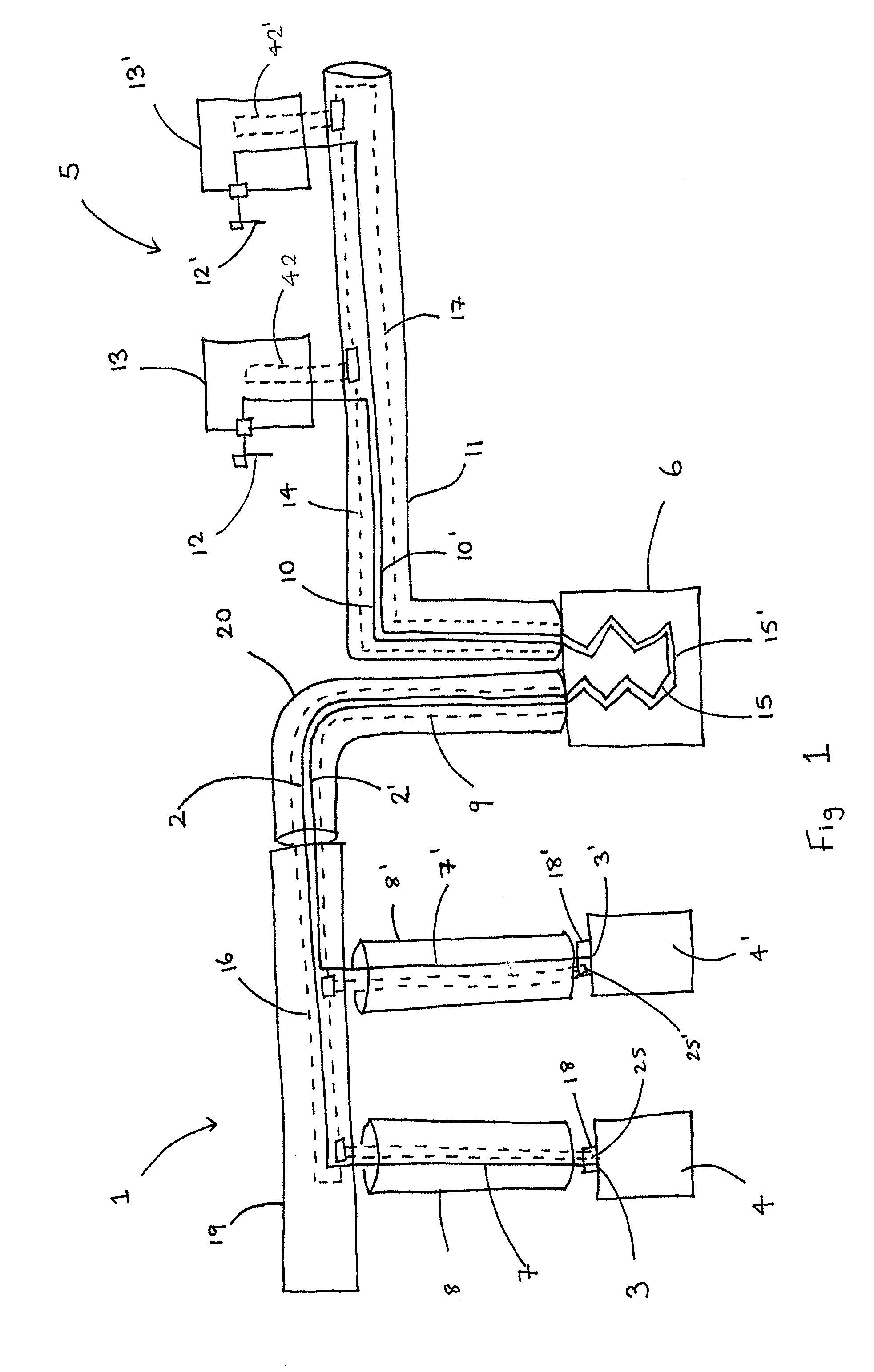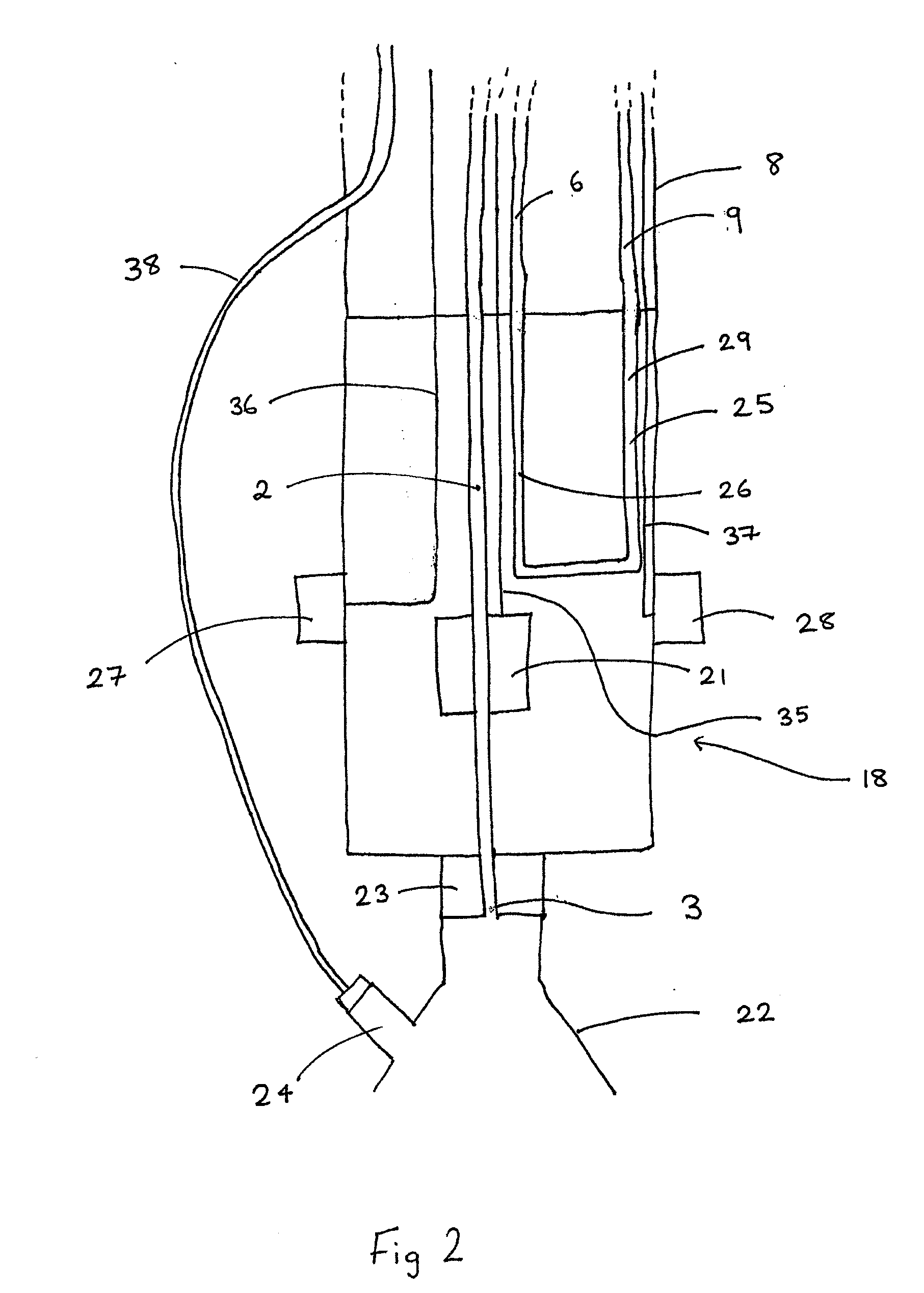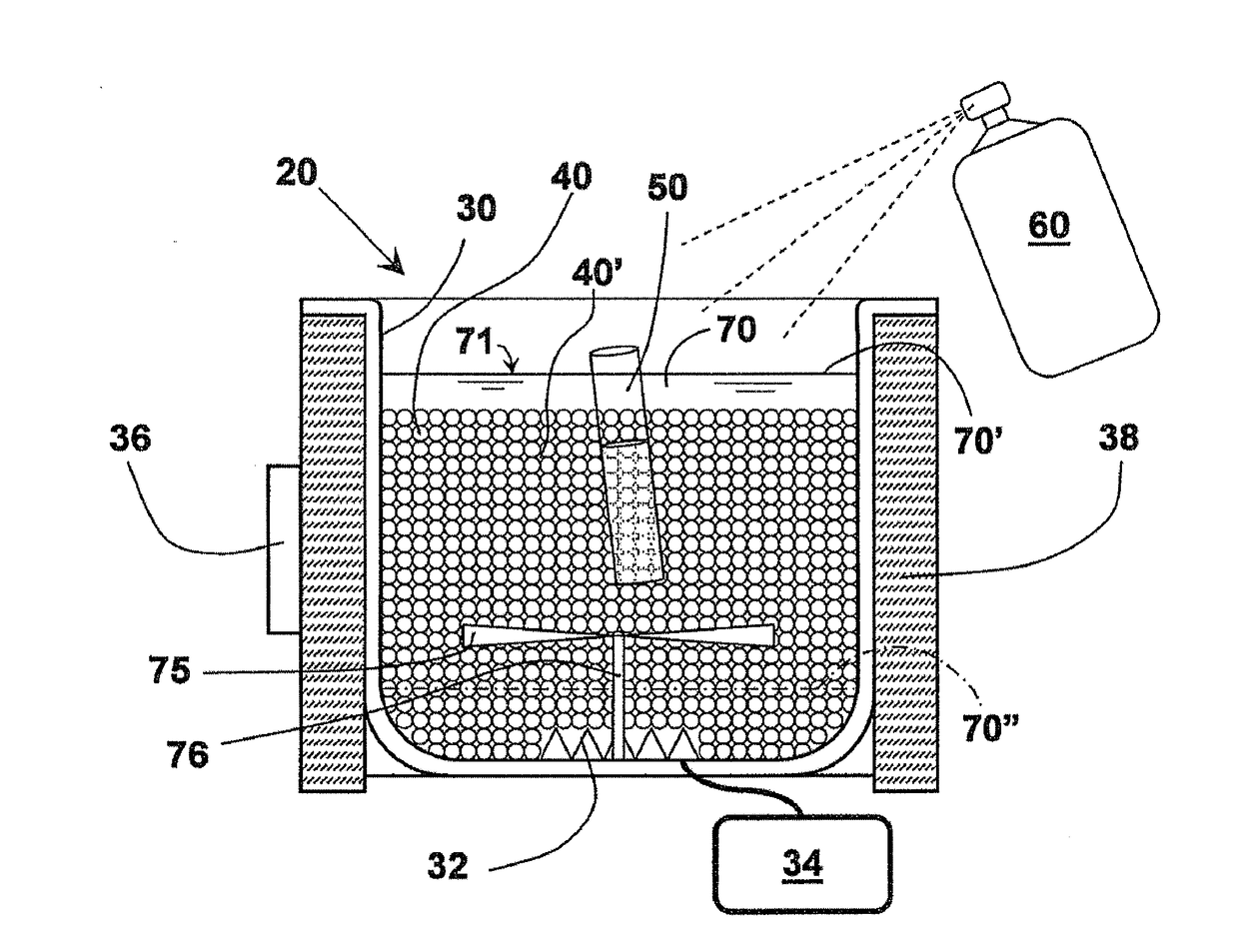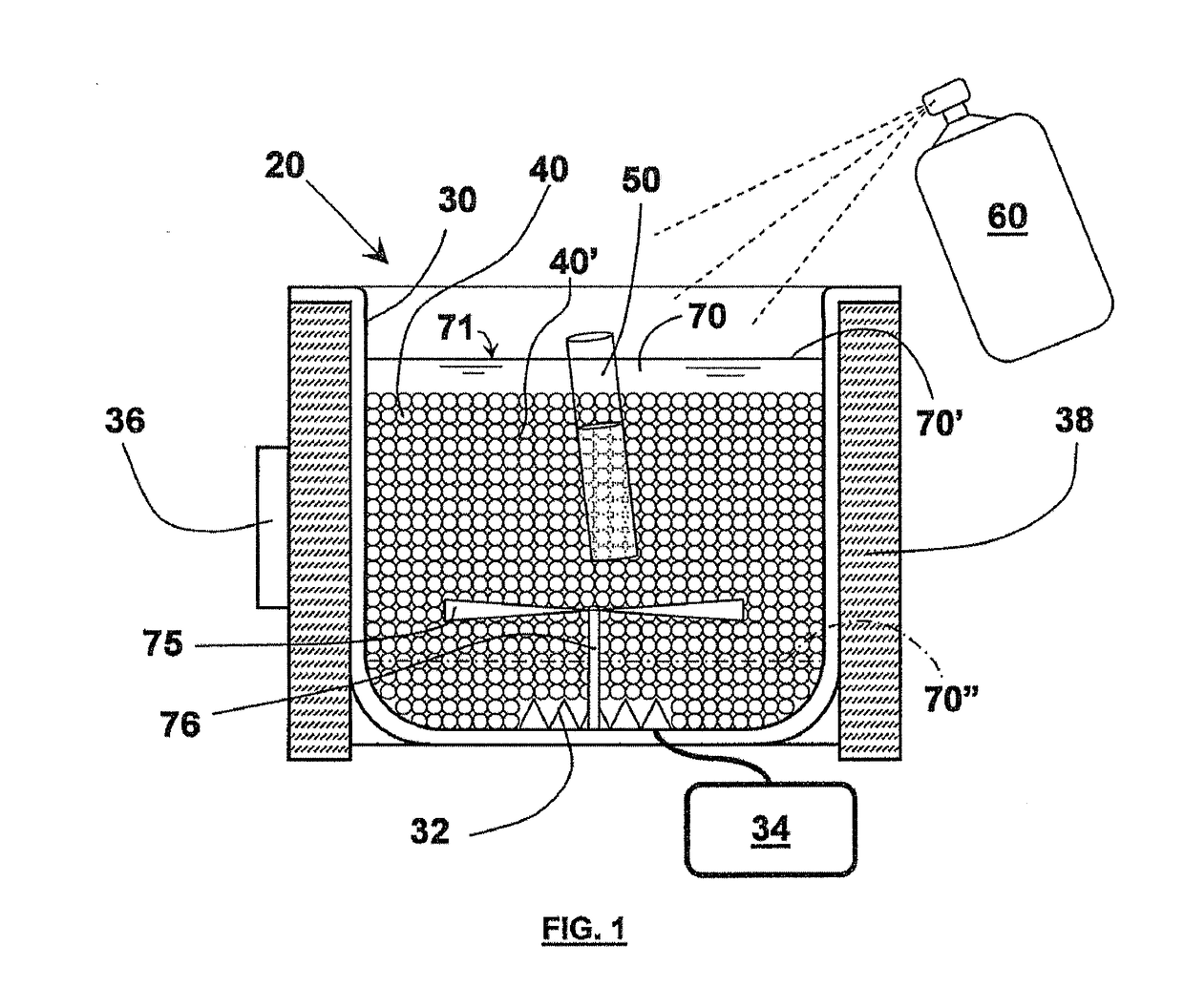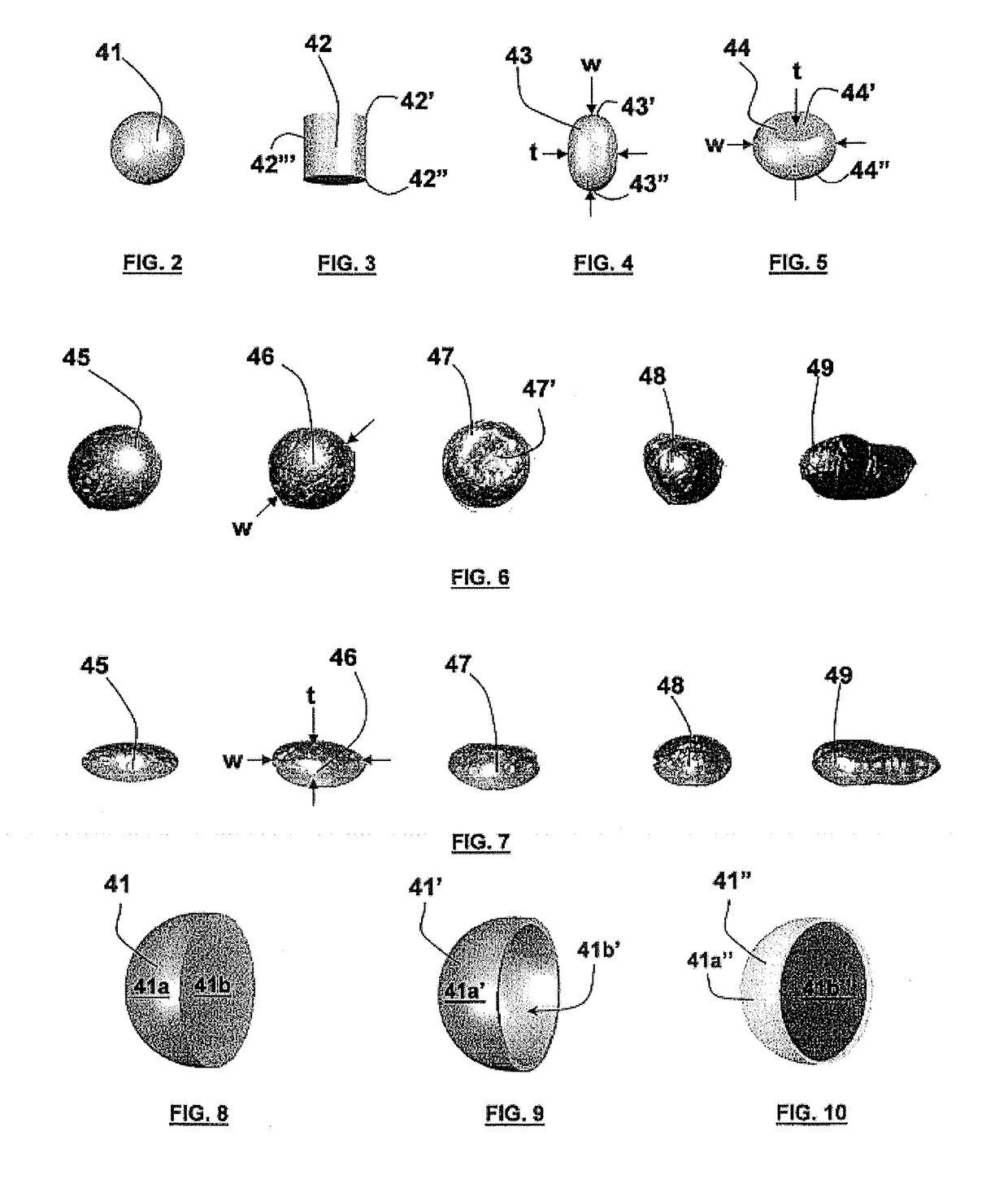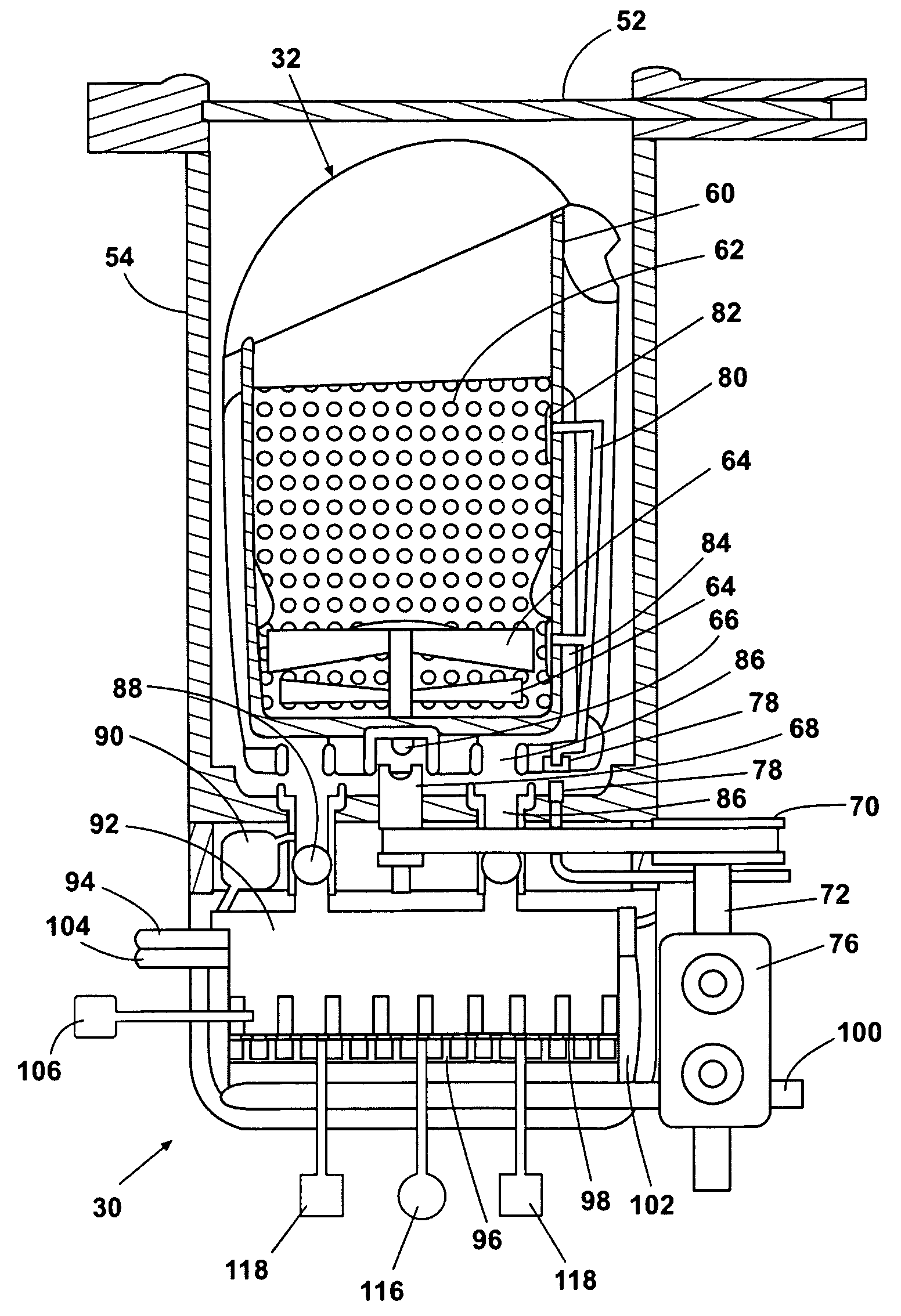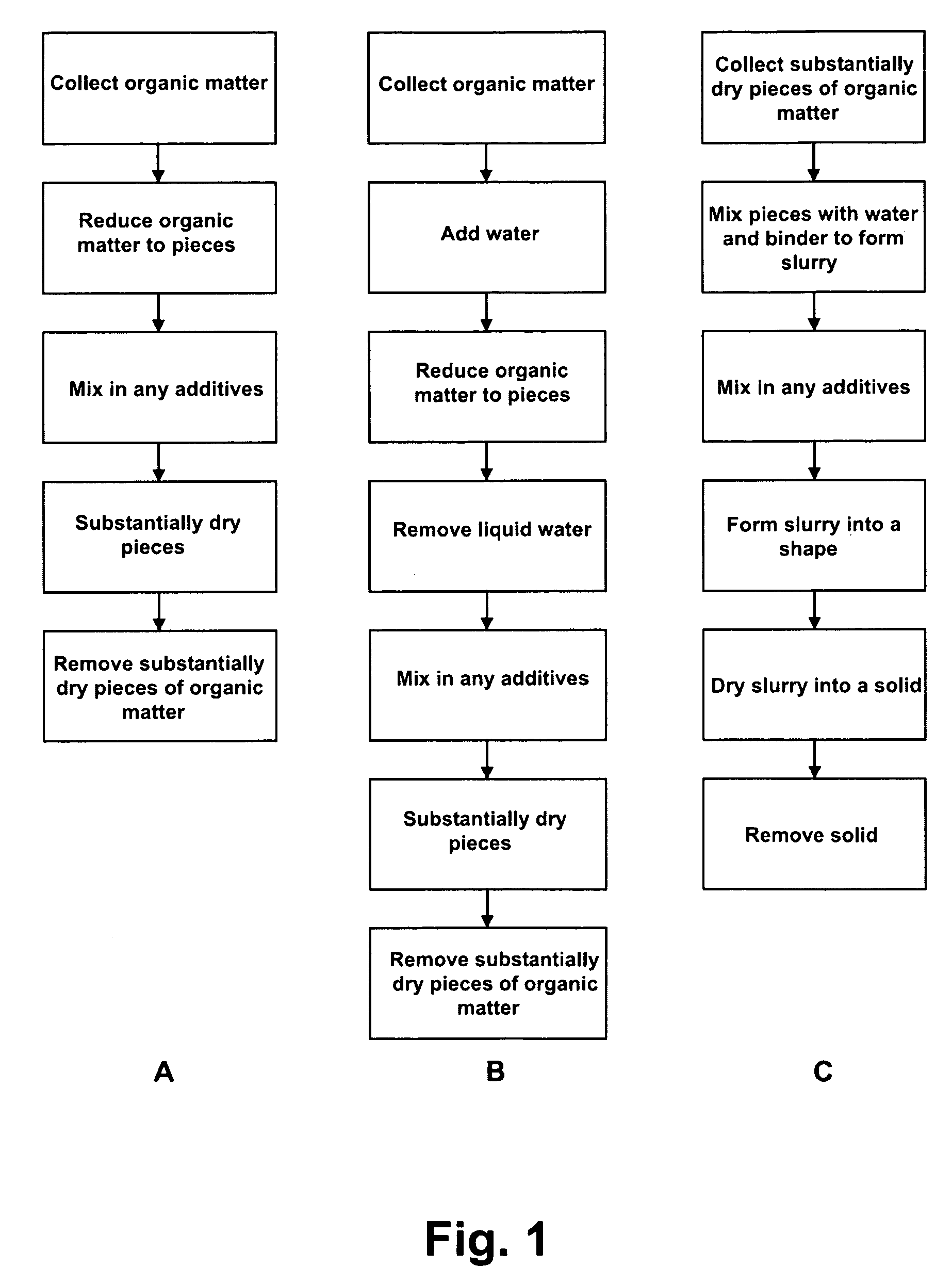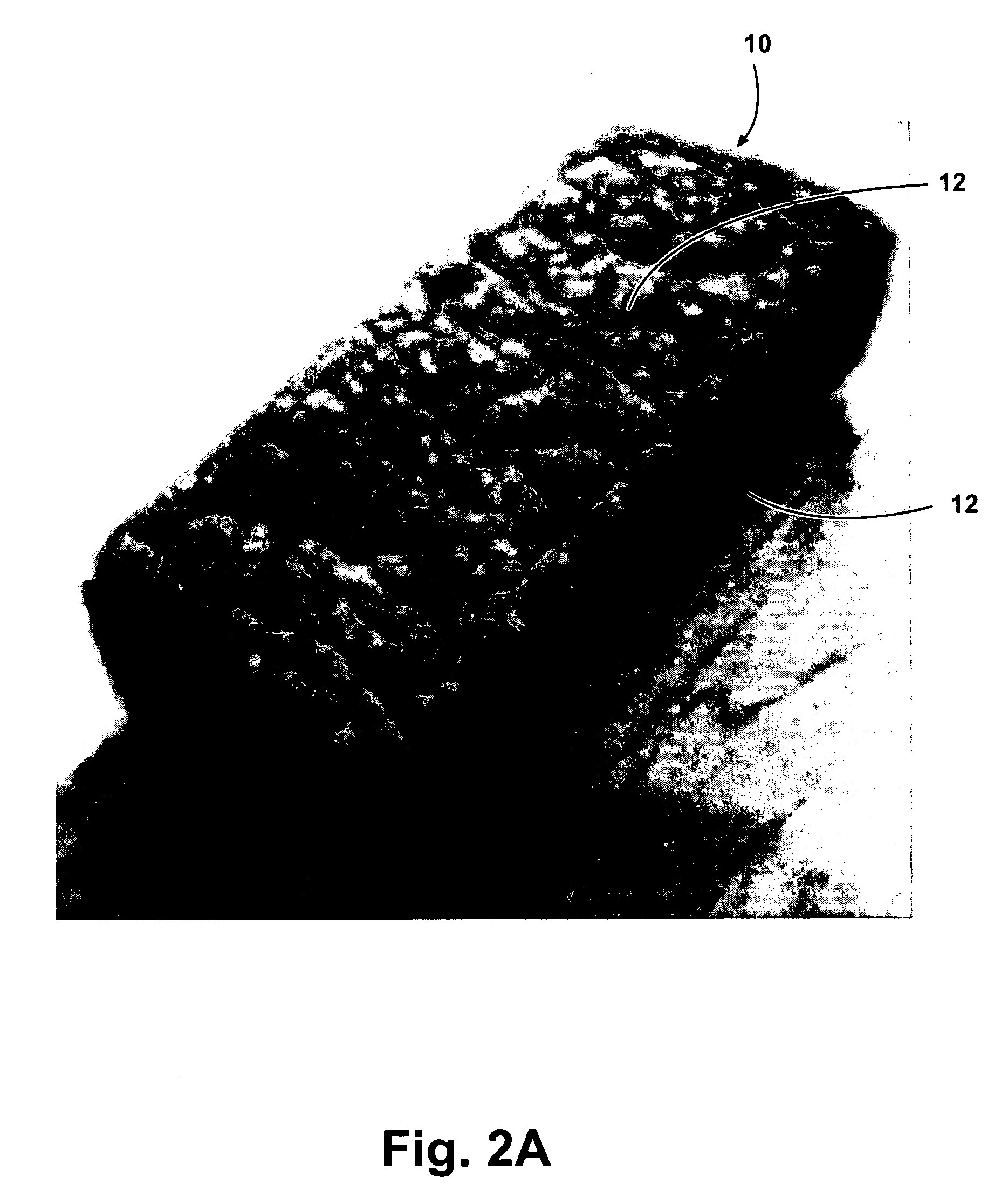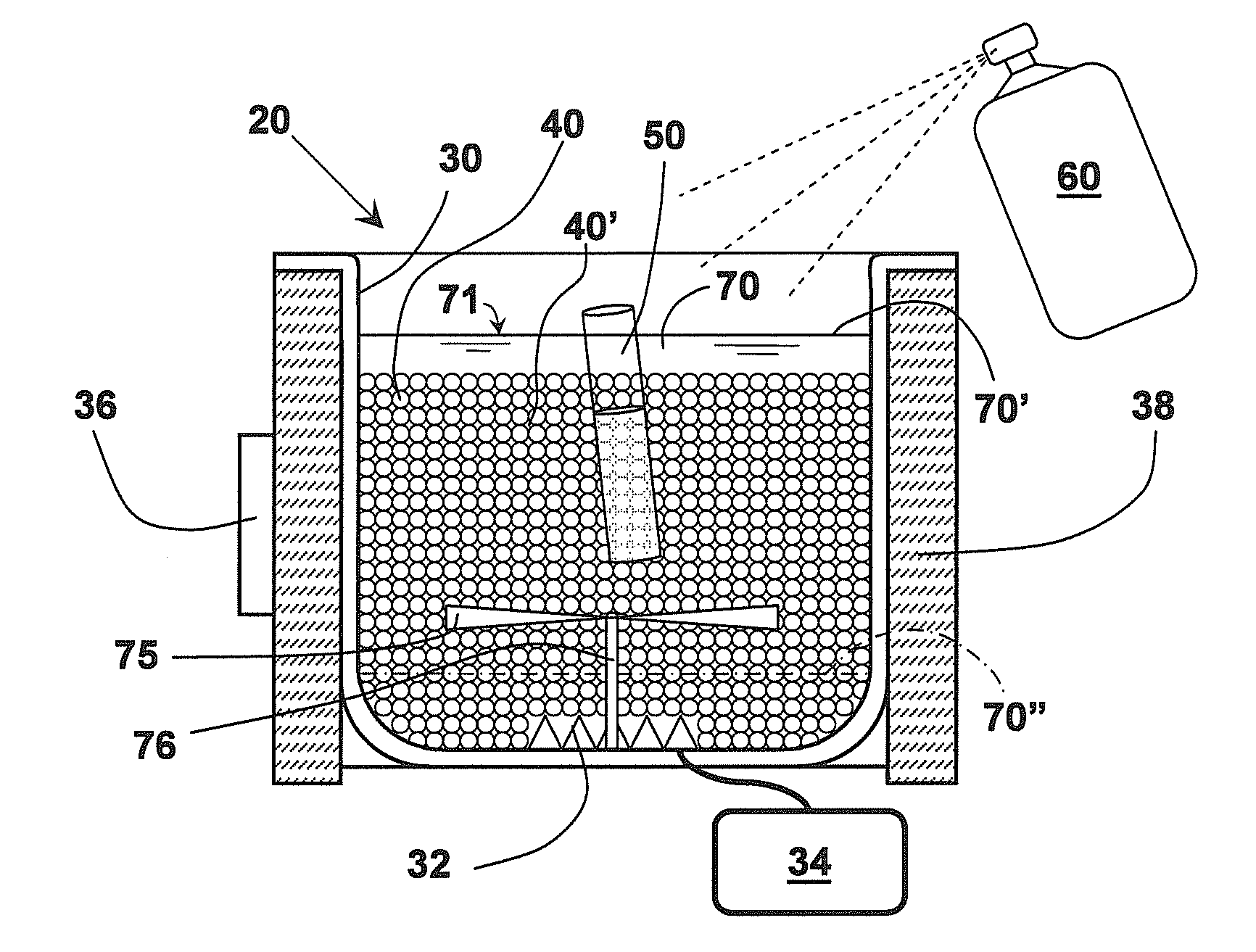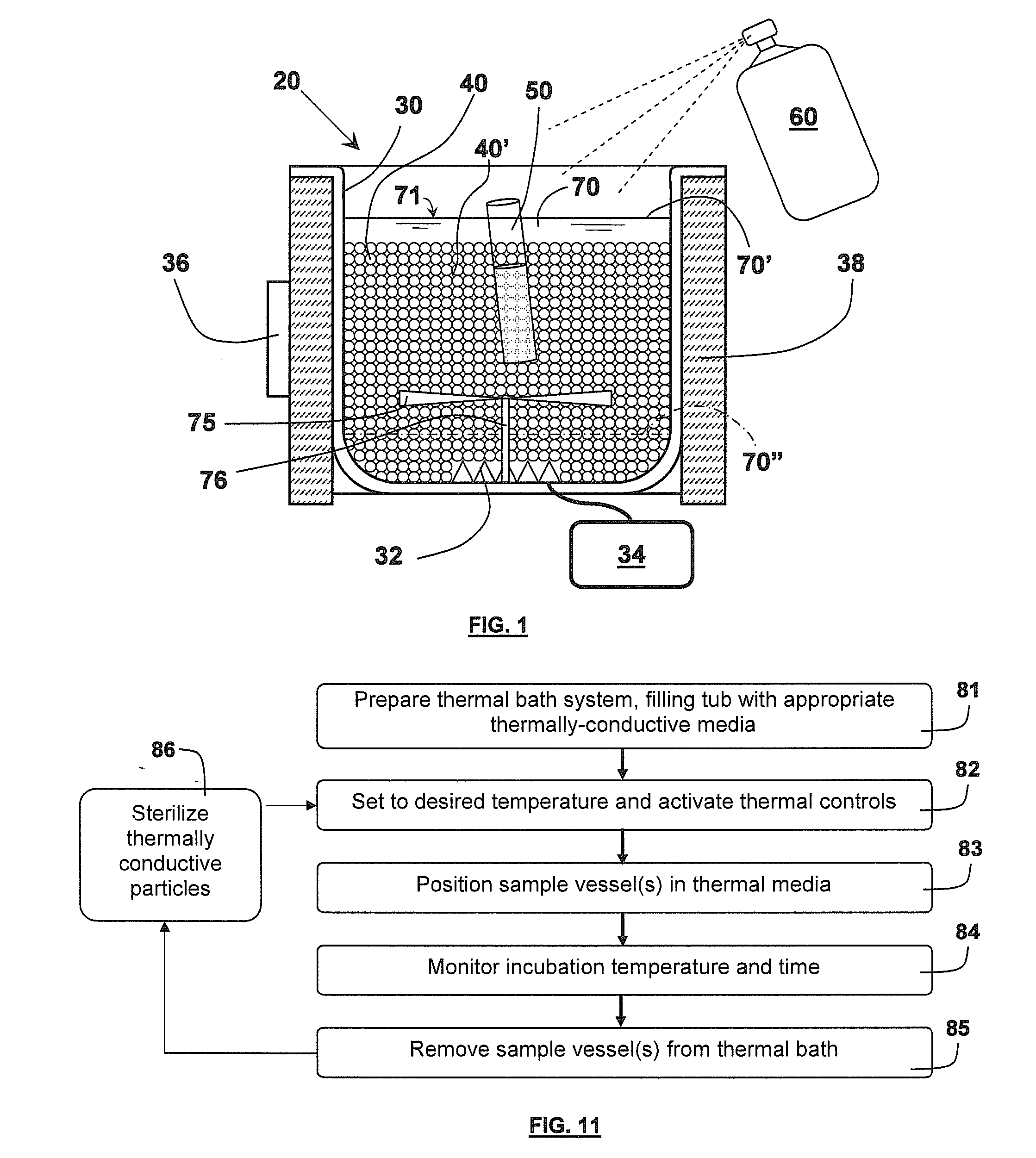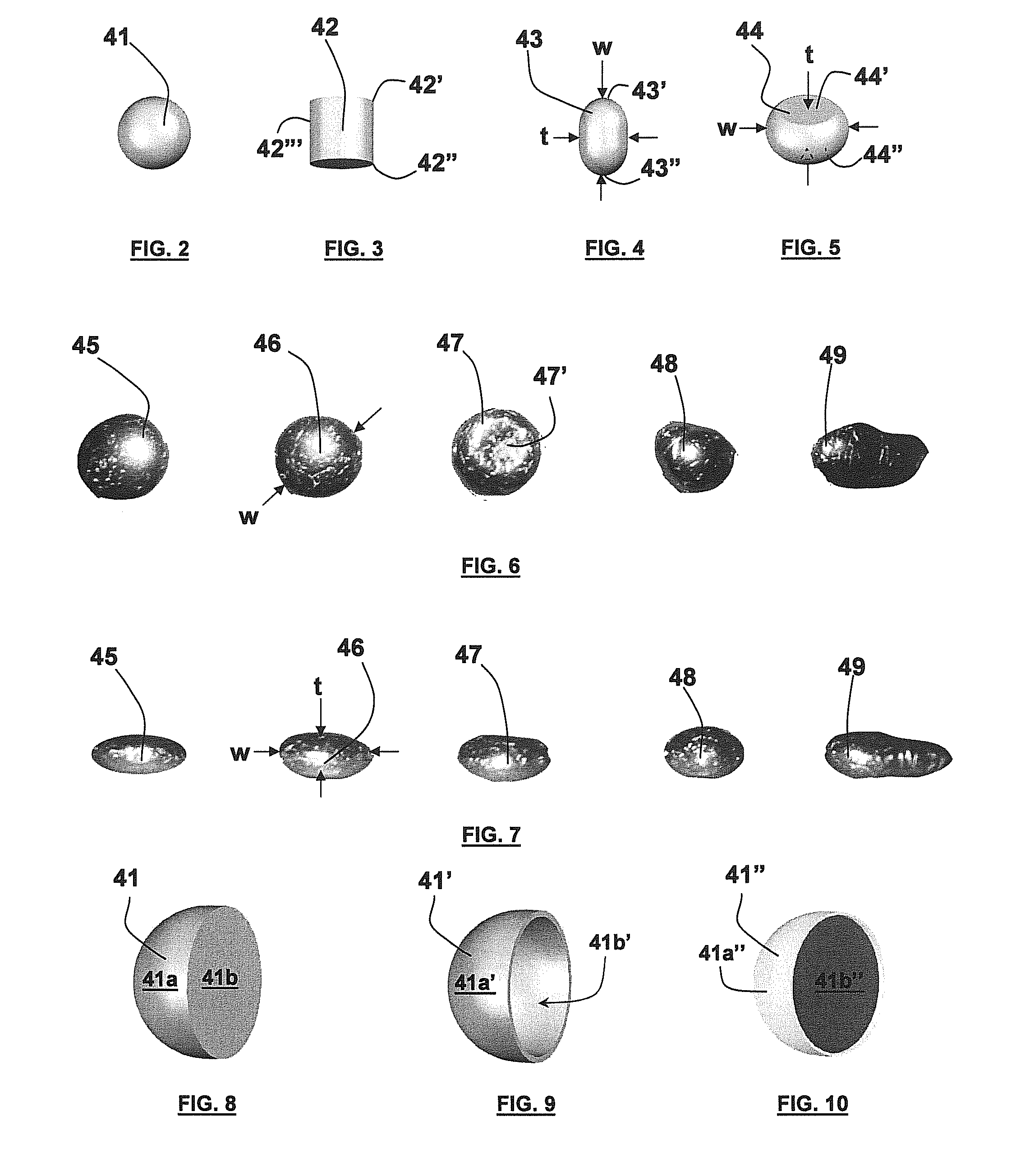Patents
Literature
56results about How to "Reduce microbial growth" patented technology
Efficacy Topic
Property
Owner
Technical Advancement
Application Domain
Technology Topic
Technology Field Word
Patent Country/Region
Patent Type
Patent Status
Application Year
Inventor
Antimicrobial flush solutions
The present invention provides antimicrobial solutions that comprise at least one alcohol, at least one antimicrobial agent and at least one chelator and / or anticoagulant. Also provided are methods for rapidly reducing a microbe or a virus from surfaces including surfaces of indwelling medical devices and organic surfaces such as skin and sutures, and inorganic surfaces such as hospital equipment, pipelines etc.
Owner:BOARD OF RGT THE UNIV OF TEXAS SYST
Biocompatible devices coated with a tribonectin and methods for their production
InactiveUS20090068247A1Reduce microbial growthAntibacterial agentsBiocideBiomedical engineeringMicrobiological growth
Owner:LUBRIS
Flexible hygienic remote control enclosure
A flexible hygienic remote control enclosure to protect against contamination of the remote control and to reduce cross contamination between users of the remote control. The remote control is placed through an open end into a flexible, at least partially clear, enclosure. After enclosing the remote control, the open end of the enclosure is closed, and the enclosure is permanently sealed by either adhesive, heat, chemical, mechanical, or other means. The permanent seal makes the enclosure tamper evident, as the enclosure must be stripped off of the remote controller in order to access the controller. The enclosure may be formed of material having antimicrobial qualities to further reduce microbial activity on the surface of the enclosure. The enclosure may be formed with at least one vacuum attachment device to allow removal of fluid, such as air, from the sealed enclosure.
Owner:MONTLER MIKE F
Antimicrobial flush solutions
Owner:BOARD OF RGT THE UNIV OF TEXAS SYST
Method of preservation of a food prodcut and composition comprising one or more phytosterols and/or phytostanols useful for this purpose
InactiveUS20050175745A1Reduce oxidationProne to rancidityEdible oils/fats ingredientsDough treatmentPlant sterolOil oxidation
Owner:ZAWISTOWSKI JERZY
Solid cleaning composition and method of use
InactiveUS20090032063A1Reduce microbial growthReduce or eliminate both the biological and the abiotic build upInorganic/elemental detergent compounding agentsOrganic detergent compounding agentsBiofilm growthAdditive ingredient
This invention relates to solid cleaning compositions and the method for using the solid compositions to clean appliances and other soiled surfaces. The solid cleaning composition is generally comprised of a majority by weight of a cleaning active system; ingredients for forming the cleaning active system into a solid form; and optionally, a fragrance. The solid cleaning composition is ideally suited for reducing and / or eliminating microbial growth, including biofilm growth, contained within and / or on appliances, particularly those appliances that have water contact surfaces such as washing machines and dishwashers. The solid cleaning composition further provides reduction and / or elimination of undesirable odor and staining typically associated with such microbial growth.
Owner:HAAS GEOFFREY R +4
Stable melt processable chlorhexidine compositions
InactiveUS20100234815A1Reduce microbial growthOrganic active ingredientsBiocideChlorhexidineMedical device
In a medical device having an antimicrobial agent, the medical device includes a base material and an amount of chlorhexidine or a pharmaceutically acceptable salt thereof disposed in the base material sufficient to reduce microbial growth. The base material is melt processed together with the chlorhexidine to generate the medical device which is substantially free of destabilized chlorhexidine.
Owner:TELEFLEX MEDICAL INC
Low level ultraviolet disinfecting system
InactiveUS20050163652A1Safe exposure levelAdequate levelMechanical apparatusLighting and heating apparatusFluid intakeHuman exposure
A disinfecting system comprises a light source having output suitable for use as a germicidal agent, and a power supply for the light source that is adapted to limit the output of the light source to levels adequate for microbial growth control. The light source is operatively housed in fluid-conveying equipment for disinfecting fluids and surfaces therein. The limited output is attenuated by fluid-conveying equipment components disposed within the output range of the light source. The attenuated output provides safe human exposure levels in the vicinity of fluid intake and exhaust portions of the fluid-conveying equipment. The limited output inhibits the degradation of fluid-conveying equipment components disposed within the output range of the light source. The light source may be covered with a thin film or sleeve of material being semi-transparent to germicidal UV wavelengths to control the output of the light source.
Owner:ULTRAVIOLET DEVICES
Process for producing frozen confectionery products
ActiveUS20100143560A1Reduced growth rateReduce microbial growthFrozen sweetsConfectionerySweet foodChemistry
A process for producing a frozen confectionery product is provided, the process comprising: extruding a frozen confection from a nozzle; and cutting the extruded frozen confection with an iris cutter; characterised in that the iris cutter is cooled to a temperature below 10° C. An apparatus for operating the process is also provided.
Owner:CONOPCO INC D B A UNILEVER
Novel biological treating agent
InactiveUS20050268646A1Reduce microbial growthMaximum biocidal efficiencySolidificationLiquefactionMicroorganismDry ice
Methods for treating, and / or cooling of a target item to reduce or eliminate biological microorganisms in or on a target item. The treating agent of the invention is particularly useful for treating food products, food storage, and food transportation devices as well as treating water, or other target objects. A treating agent containing a sanitizing agent entrapped by or absorbed in or on a cooling agent is used when processing, transporting, displaying, or storing of target items. The treating agent can be used to chill and preserve target items while providing the added benefit of sanitizing the target item. The novel processes of the current invention provide for using a treating agent to process, store, or package target items using a treating agent containing a cooling agent, such as solid carbon dioxide (“dry ice”), and a sanitizing agent, such as ozone.
Owner:AIR LIQUIDE AMERICA INC
Process for processing organic waste
InactiveUS7621472B2Efficient packagingConvenient and less offensiveBio-organic fraction processingSolid waste disposalMoistureChemistry
Owner:WHIRLPOOL CORP
Stabilized enzyme compositions
ActiveUS20100215711A1Reduce formationReduce microbial growthAntibacterial agentsPeptide/protein ingredientsMedical deviceMedical treatment
A medical device includes a base material having an immobilized fibrinolytic enzyme and dextran sulfate. The dextran sulfate has a molecular weight that is less than 40 kilo dalton (kDa). The medical device is formed from at least a base material. A fibrinolytic enzyme is immobilized on the base material. The fibrinolytic enzyme is stabilized with a dextran sulfate having a molecular weight of less than 40 (kDa).
Owner:TELEFLEX MEDICAL INC +1
Water reuse in food processing
InactiveUS7083510B2Minimize microbial growthReduce microbial growthWaste water treatment from animal processingMeat/fish preservation using liquidsWater useProduct gas
Methods and systems enable reuse of water in processing of animals into food. In one method, water used in processing of animals into food is received. The water is treated so as to convert the water into a treated from capable of being reused in the processing of the animals into food. The treating includes reducing the amount of solid particles in the water and adding gas to the water. The treated water is provided to be used in the food processing.
Owner:ENVIRONMENTAL MANAGEMENT CORP
Thermal bath systems and thermally-conductive particulate thermal bath media and methods
InactiveUS20090233375A1Easy to shapeSmall sizeBiocideHydroxy compound active ingredientsMetal coatingSized small
Thermally-conductive laboratory bath media can be used to replace conventional wet media or dry solid blocks in existing thermal baths for heating or cooling samples with advantageous maintenance and microbial control benefits. The media is typically in the form of metallic or metallic-coated pellets that have rounded edges, hardened surface, a smooth polished finish, and are sized small for efficient thermal communication between pellets and samples. Laboratory bath improvements are disclosed with various advanced controls and adaptations for thermal control as well as infection control.
Owner:LAB ARMOR
Support and barrier ring
InactiveUS6199821B1Reduce microbial growthReduce problem sizeWash-standsBrushesBristleBiomedical engineering
Owner:JOB DONALD D
Polymer for Controlling Delivery of Bioactive Agents and Method of Use
InactiveUS20120150131A1Reduce microbial growthEasy to produceBiocideOrganic active ingredientsMedicineChlorhexidine
A medical device includes a base material and chlorhexidine or a pharmaceutically acceptable salt thereof disposed in the base material sufficient to reduce microbial growth. The base material includes a polymer having a silicone monomer and a urethane monomer.
Owner:TELEFLEX MEDICAL INC
A micro-humidifier
InactiveUS20170143931A1Reduce and even prevent occurrence of condensationLow costRespiratorsMedical devicesIntensive care medicineBreathing circuits
A micro-humidifier for operably-connecting to a breathing circuit contains a liquid feed, a liquid chamber operably-connected to the liquid feed, and a vapour generator operably-connected to the liquid chamber. The liquid chamber has a volume of from about 0.01 mL to about 30 mL. The micro-humidifier is operably-connected to and / or is designed to be operably-connected to a breathing circuit upstream of the patient. When the micro-humidifier is operably-connected to a breathing circuit, the vapour from the vapour generator enters into the breathing circuit. A respiratory humidification system contains the a breathing circuit and the micro-humidifier as described herein. The micro-humidifier is operably-connected to the breathing circuit upstream of the patient, and the vapour from the vapour generator enters into the breathing circuit.
Owner:OUTSTANDING HEALTHCARE COMPANY
Processes for preparing a carbohydrate extract comprising mannoheptulose and compositions comprising same
InactiveUS20150132420A1Reduce contaminationReduce microbial growthBiocideHydroxy compound active ingredientsEmulsionUltrafiltration
Disclosed herein is a process for preparing a carbohydrate extract comprising mannoheptulose from avocados, as well as compositions, including food compositions, comprising such extracts. The process includes separating the aqueous emulsion into different fractions by centrifugation, and isolating the water-soluble fraction (water extract) comprising avocado carbohydrates, including mannoheptulose. In various aspects, the process optionally includes steps of heating, ultrafiltration, nanofiltration, concentrating, and or drying the extract. Also described herein are methods for using the carbohydrate extract comprising mannoheptulose and compositions comprising the carbohydrate extract comprising mannoheptulose.
Owner:IAMS
Antimicrobial fluoropolymer film, laminates and articles and process for making thereof
InactiveUS20090252922A1Reduce microbial growthDecorative surface effectsDuplicating/marking methodsPolymer scienceFluoropolymer
Films, laminates and articles comprising a fluoropolymer that contains amino-reactive functional groups only after activation are made antimicrobial by activating the fluoropolymer surface and then contacting the activated surface with a solution comprising chitosan. Films, laminates and articles comprising activated fluoropolymers and contacted with a solution comprising chitosan.
Owner:EI DU PONT DE NEMOURS & CO
Device and Process for Processing Organic Waste
InactiveUS20080035769A1Easy to storeEasy to collectBio-organic fraction processingTransportation and packagingEngineeringOrganic matter
Organic matter is converted into a composition or outcome after it is deemed to be waste but before it is finally disposed of or used, for example as compost. One outcome is a solid of substantially fixed shape made of the pieces of organic matter, optionally bound together with a binder. The outcome is dry enough to substantially reduce microbial growth and related odors. The outcome is more convenient to handle and less offensive than raw organic waste and so encourages users to divert organic waste from other garbage and to participate in composting or other programs. The outcome can also be kept in the home or garage for extended periods of time without creating intolerable odors and so the user may take garbage to the curb less often than once a week. Processes for making outcomes involve reducing raw organic waste to pieces, drying the raw organic waste and, optionally mixing the pieces with a binder or water, forming the mixture into a shape and drying the formed mixture into a solid. Apparatuses for performing the processes may include a portable receiving module that interacts with a processing module. The outcomes decompose when exposed to the weather and may be used privately, for example as compost, or exchanged for consideration to an organization.
Owner:WHIRLPOOL CORP
Method and system for non destructive lean recovery
InactiveUS20120141645A1Reduce resultEasy to separateGrain huskingGrain polishingWater bathsNon destructive
An apparatus and method for a non-destructive lean recovery operable for separating lean and fat animal tissue in sparse lean products, such as for example, meat trimmings. The method and apparatus exploits the fact that lean and fatty tissue have distinctly different specific gravities. The method and apparatus impacts the sparse lean material with a force, which breaks the lean material into small pieces of fat and lean material thereby separating the fat portions from the lean portions. The sparse lean material can be initially ground through a grind plate and the ground material can be suspended in a water bath and agitated with sufficient force to separate the fat from the lean material. As the forces are applied and the separation occurs, due to the different specific gravities of the lean and fat, the fat will tend to float to the surface of the water bath and the lean material will tend to sink in the water bath, thereby facilitating recovering the lean material portions.
Owner:TYSON FOODS
Thermal Bath Systems and Thermally-Conductive Particulate Thermal Bath Media and Methods
ActiveUS20120216994A1Easy to shapeSmall sizeBiocideSilver organic compoundsAntimicrobial compoundMoisture
Systems and methods for controlling the temperature of items such as a sample in a vessel or a specimen, in a thermal bath using thermally efficient pellets as the thermal media. The pellets are typically oblong metallic or oblong metallic-coated pellets with rounded edges, a hardened surface, a smooth polished finish, and characteristics that enable efficient thermal communication between the bath's thermal source, the pellets, and the items that are inserted into the mass of pellets. Further, the pellets are dry and moisture and gas impermeable, and they resist microbial growth and are readily decontaminated by several methods including applying an antimicrobial compound to the pellets. The thermal source is controlled to achieve the desired temperature of the items inserted into the pellets.
Owner:LAB ARMOR
Undergarments with multi-layer barriers to lessen emf/emr/ehs emitting features and moisture management properties
InactiveUS20180271176A1Reduce exposureReduce risk of damageGarment special featuresPersonal careBody organsHuman skin
Undergarments are worn beneath other clothing articles and have direct contact to human skin and vital body organs. The rationale behind the development of this invention is to minimize electromagnetic fields / frequency (EMF); electromagnetic radiation (EMR); and electromagnetic hypersensitivity (EHS) while managing moisture production within the same. Multiple textile barrier linings will serve as blocking measures to minimize the hazardous effects linked to various EMR / EMF emitting exposure as well as introduce moisture and absorption properties. In addition, this invention will address the problems with existing products and EMF / EMR protectors that are described as heavy, uncomfortable, and expensive to process. Furthermore, this invention will serve a three-tier purpose in aiding the consumer in the first layer of protection for their genital and upper body torso, while providing a barrier from radiated EMF / EMR energy, as well as offer a composition to eliminate the production of moisture and bacteria through additional blocking features.
Owner:HARRELL DELORES
Dictyostelid amoeba and biocontrol uses thereof
InactiveUS20140056850A1Slow growth rateReduce microbial growthBiocideProtozoa material medical ingredientsBiotechnologySpore
Owner:AMEBAGONE
Atmosphere controlled ice-temperature fresh-keeping method for food
InactiveCN105077514AReduce microbial growthSlow growth rateFood preservationFood qualityDisinfectant
The invention discloses an atmosphere controlled ice-temperature fresh-keeping method for food. The method comprises the following steps: (1) removing impurities from raw materials; (2) spraying a disinfectant; (3) decontaminating with gas; (4) bagging and performing atmosphere control; (5) cooling; and (6) performing heat insulation and preservation. The method has the advantages that with two decontaminating processes of spraying the disinfectant and decontaminating with gas, microorganisms are controlled well; with manners of vacuumizing or charging nitrogen or carbon dioxide gas, the growth of microorganisms is retarded; when the raw materials and crushed ice in a weight ratio of (1:0.2) to (1:3) are spread in a heat preservation box for ice-temperature preservation, the growth of microorganisms is slow, the nutrient loss is small, and the food quality is good.
Owner:WUHAN BOSIDE TECH
Beverage Dispense System and Method
InactiveUS20140263433A1Improve hygieneReduced cleanlinessDomestic cooling apparatusLighting and heating apparatusEngineeringCooling medium
The present invention relates to beverage dispense systems and methods. The systems comprise a beverage line having a distal end connectable to a beverage supply for transporting beverage from the beverage supply to a dispense font at a dispensing site. They also include a cooler for cooling beverage. The beverage line comprises a first beverage line portion extending from the distal end to the cooler within a first insulated carrier. The first insulated carrier comprises a first cooling line for transporting cooling medium through the first insulated carrier so as to allow heat exchange between the cooling medium in the first cooling line and the beverage in the first beverage line portion.
Owner:HEINEKEN UK
Thermal bath systems and thermally-conductive particulate thermal bath media and methods
InactiveUS20180126382A1Easy to shapeSmall sizeWater/sand/air bathsHeat-exchange elementsAntimicrobial compoundMoisture
Systems and methods for controlling the temperature of items such as a sample in a vessel or a specimen, in a thermal bath using thermally efficient pellets as the thermal media. The pellets are typically oblong metallic or oblong metallic-coated pellets with rounded edges, a hardened surface, a smooth polished finish, and characteristics that enable efficient thermal communication between the bath's thermal source, the pellets, and the items that are inserted into the mass of pellets. Further, the pellets are dry and moisture and gas impermeable, and they resist microbial growth and are readily decontaminated by several methods including applying an antimicrobial compound to the pellets. The thermal source is controlled to achieve the desired temperature of the items inserted into the pellets.
Owner:LAB ARMOR
Composition for producing hydrogen rich water and other products
PendingUS20190290682A1Improve the level ofRapid responseCosmetic preparationsOrganic active ingredientsAqueous solubilityPharmaceutical Substances
The invention provides compositions for producing hydrogen rich water, nutraceuticals, cosmetics, pharmaceuticals, and other products. In one embodiment, the invention provides a composition, e.g., a tablet, including magnesium metal, at least one water-soluble acid, and a binding agent. The magnesium metal and at least one water-soluble acid may be present in amounts sufficient to maintain a pH of less than 7, e.g., at a specific time period after reaction, and a concentration of at least 0.5 mM H2 after reaction in 50 mL water in a container e.g., a sealed or an open container, e.g., at least 0.5 mM H2 after reaction in 100 mL water or at least 0.5 mM H2 after reaction in 500 mL water. The composition may also include a lubricant.
Owner:H2 WATER TECH LTD
Device and process for processing organic waste
InactiveUS7625195B2Efficient packagingConvenient and less offensiveBio-organic fraction processingSolid waste disposalWaste management
An apparatus for producing a solid of organic waste by reducing raw organic waste to pieces and processing those pieces to form a solid.
Owner:WHIRLPOOL CORP
Methods for Supporting a Vessel Within a Laboratory Bath
Owner:LAB ARMOR
Features
- R&D
- Intellectual Property
- Life Sciences
- Materials
- Tech Scout
Why Patsnap Eureka
- Unparalleled Data Quality
- Higher Quality Content
- 60% Fewer Hallucinations
Social media
Patsnap Eureka Blog
Learn More Browse by: Latest US Patents, China's latest patents, Technical Efficacy Thesaurus, Application Domain, Technology Topic, Popular Technical Reports.
© 2025 PatSnap. All rights reserved.Legal|Privacy policy|Modern Slavery Act Transparency Statement|Sitemap|About US| Contact US: help@patsnap.com
